Capital:
Port Moresby
Currency
Kina
Best time to visit:
from June to September
In a word:
Em nau! (Fantastic!)
Vaccines
Recommended antimalarial prophylaxis (chloroquine-resistant).
Essential experiences:
Watch the thousand characteristic dances of each tribe; Let yourself be carried away by the slow rhythm of life in the primitive forest; Travel in PMV
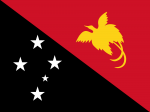
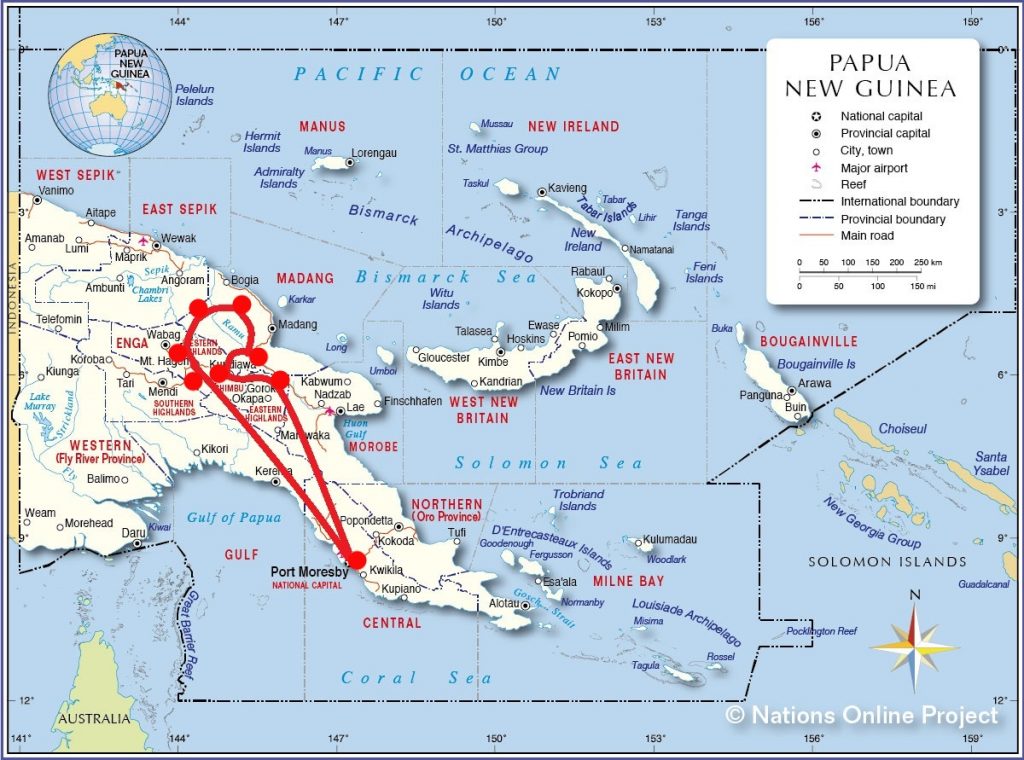
Papua New Guinea is an Oceanian peninsula located on the island of Papua, a large island shared with Indonesia. It is the second island in the world: only Greenland is bigger. The shape and type of structure of the island, together with the simple technology of the inhabitants, explain why it contains such a large number of different cultures and languages and why it has remained detached from the world and progress for centuries. Even if the island's population reaches only three million inhabitants, at least a thousand different languages and dialects coexist.
The traditional religions of New Guinea are very different. It is common belief that a vast number of spirits and ancestors influence the fate of man on this earth.
Our suggested itinerary (11 days) | |
two days: | Port Moresby |
three days: | Mt Hagen (meeting with the tribes) |
one day: | Whagi Bridge (meeting with the tribes) |
two days: | Kundiawa (meeting with the tribes) |
| three days: | Goroka (meeting with the tribes) |
Many ethnic groups lived until recently isolated and were partly enemies among themselves. Their coexistence in a modern state involves political and social difficulties. The crime rate is very high.
Demonstrations, local unrest and violent clashes take place regularly.
Demonstrations and strikes can be accompanied by acts of vandalism, looting and other violent crimes. We were stopped at a roadblock while traveling with a local van between the locals and it was not a good time when you were surrounded by angry people brandishing a machete ...
But I don't want to be tragic! A trip here is really worth it because, so far, it is the most wild and primitive place ever visited and the encounter with all the tribes, each with its own rites and traditions, has left us literally speechless! We shot it far and wide using their PMV (Public Motor Vehicle), local vans that connect the various villages without certain timetables or stops! But the fun is also this in a journey to adventure!
Are you ready to be catapulted into prehistory with us?
Three hours flight from Cairns, Australia and we land on this wild island. Little fear of immigration when the kind policewoman wants to see our visa. Seen? We don't have it ... I had studied the question online so much and I realized that there was no need for us ... panic ... everything is solved when we explain that we are tourists and we are not there for business ... here is a two month visa on our passport ... even free!
In a few minutes we reach the Wellness Lodge of Boroko, a suburb of Port Moresby, the capital of Papua New Guinea.
Sinclaire, one of the guards, offers to escort us for a ride in the area.
The background is very "African": red streets, tall palm trees, old abandoned colonial buildings, colorful little shops selling everything. The natives are stocky, black, with large noses on heavier bodies, very crisp hair like black cotton candy but of a disarming kindness.
Everyone warned us, but it will be the safe presence of our bodyguard, the sincere greetings of all the people met on the street, I have never felt neither uncomfortable nor in danger ... on the other hand it is also true that many they approached us but were discreetly rejected by Sinclaire as well as the fact that all the small shops were protected by high fences and metal bars.
Wake up at 04.45 in the morning to go to the airport ... from there we had the flight to Goroka ... or better ... we thought we had it ... at check in we discover that there is only one flight to Mt Hagen! Ok, let's take that!
In a row we see that we are the only whites; on the plane the hostess asks us if she can do her briefing in "pigini" (local language) ...
We take off ... below us the lush green of this spectacular country is the carpet, banana trees, coffee plantations, palm trees ...
An hour and a half later we are in Highland Papuana ... in the most impenetrable heart of the island; go down the ladder and a little man tells us to take the luggage directly from the small airplane ... how strange ... after all nobody has ever checked our documents ...
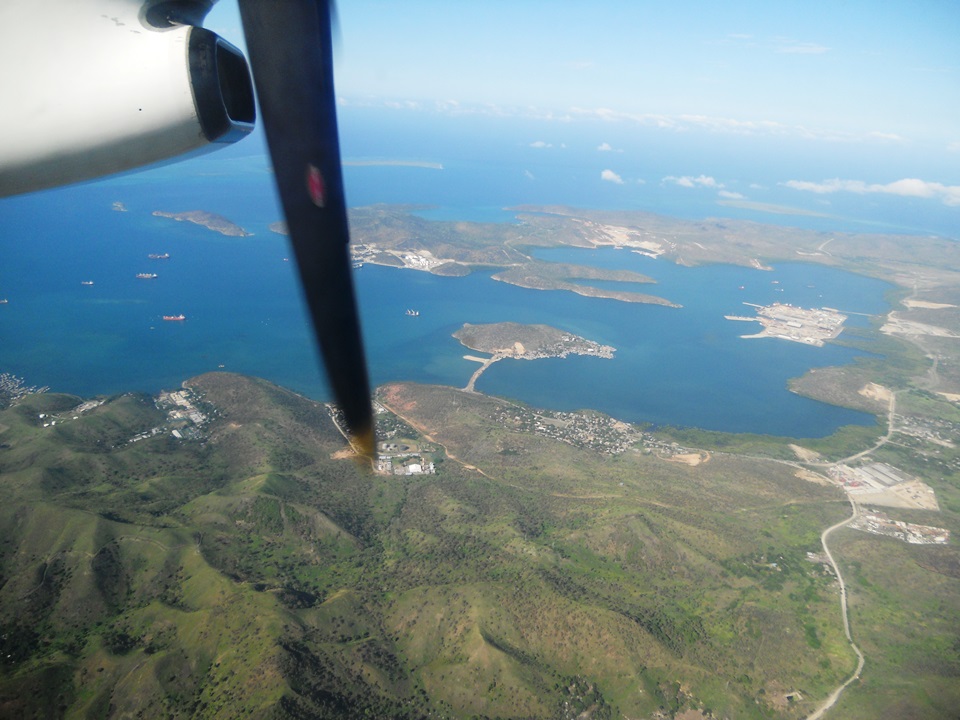
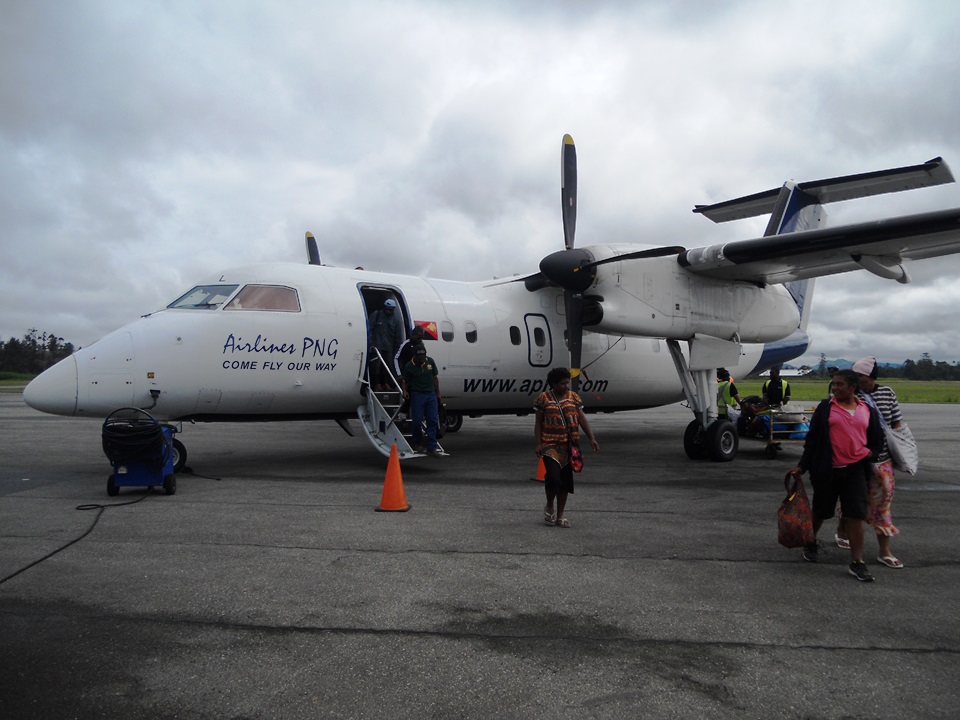
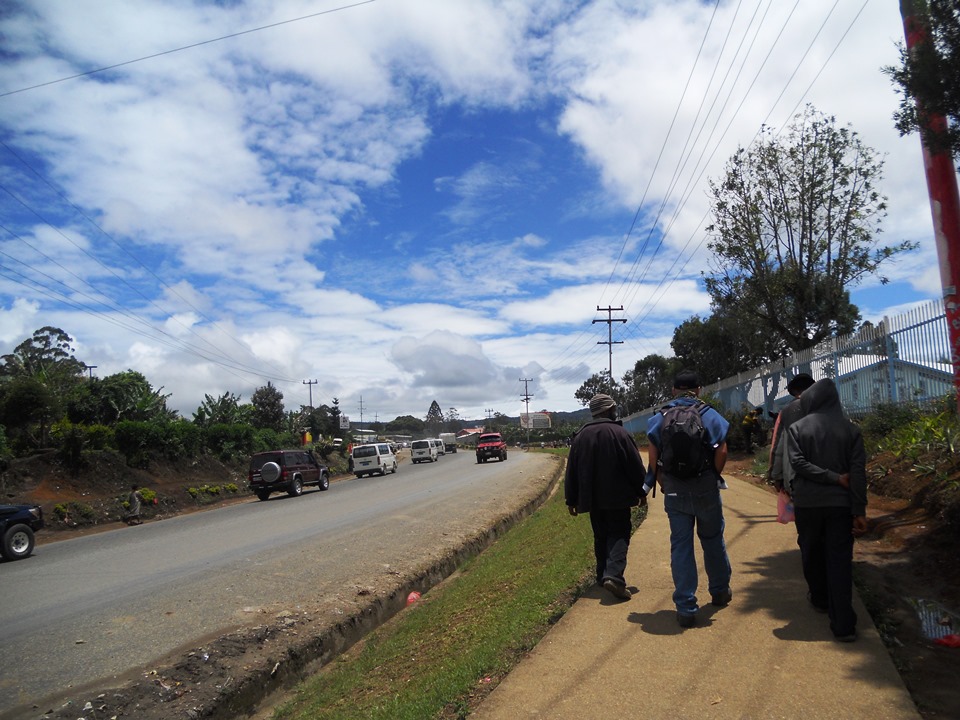
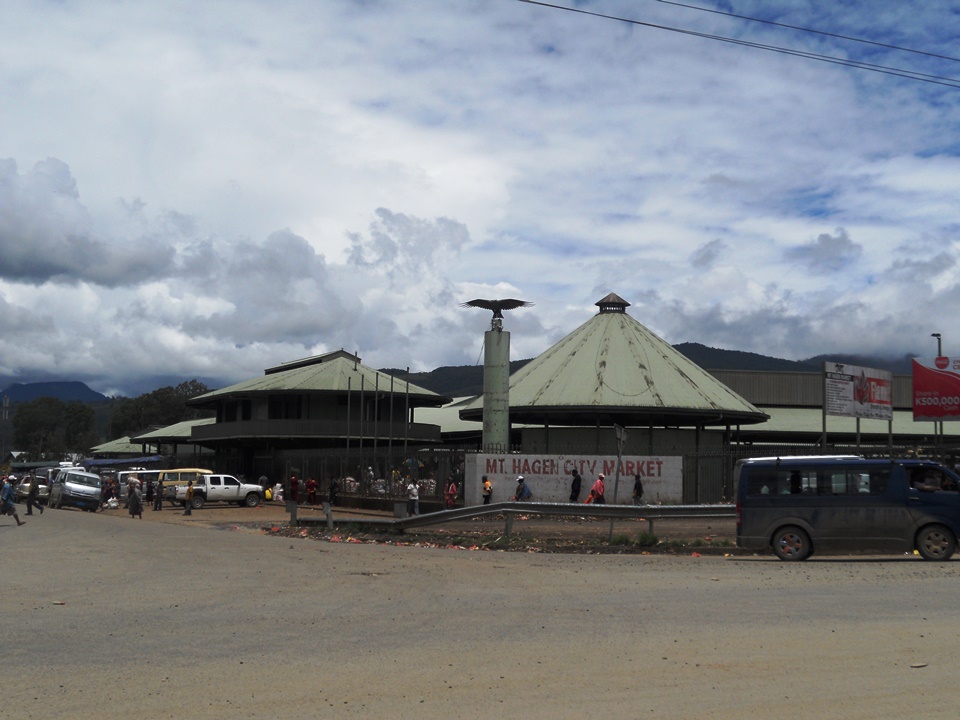
Luckily, there is Caspar waiting for us, our PNG guide!
In a few minutes we are immediately on board of a PMV, one of the thousand that we will take from today onwards ...
We couldn't believe it, a van so dirty I don't think I've ever seen it before!
The guesthouse is dyed lilac, the rooms are quite large, only the sheets are a bit dirty ... we immediately ask for another room ... so they are all free ... soon we discover we are always the only guests in all the places where we will stay ...
Here we are! Finally we go out to discover this new land! Caspar introduces his mother-in-law who, after a good handshake, as if nothing had happened, takes a chicken bone out of a pocket and starts sucking it again ... We walk a long distance on foot. The children stop to look at us surprised, sometimes almost frightened, but after our smile all the barriers fall ...
We take a PMV to the main station ... what a delirium of people ... Caspar and the other two men who escort us struggle to keep up; dozens of moving vans, people who go up and down, each carrying something, some big torn bags, some frightened chickens, some screaming the name of the destination, women with the typical bilum on the forehead (handmade bags) ...
In 20 minutes we reach a dirt road among tall banana trees and immersed in a very thick vegetation, we are in the village Awi.
Groups of children welcome us, women with curious eyes and men with easy smiles.
James, the village chief, invites us to enter the garden of a hut where some girls, with their black-made faces, wide skirts of straw and showy necklaces on their naked breasts prepare for the traditional dance: Cili Moli.
All the neighbors rush to the lawn to enjoy the show ... it's really exciting to admire those ancestral rites ...
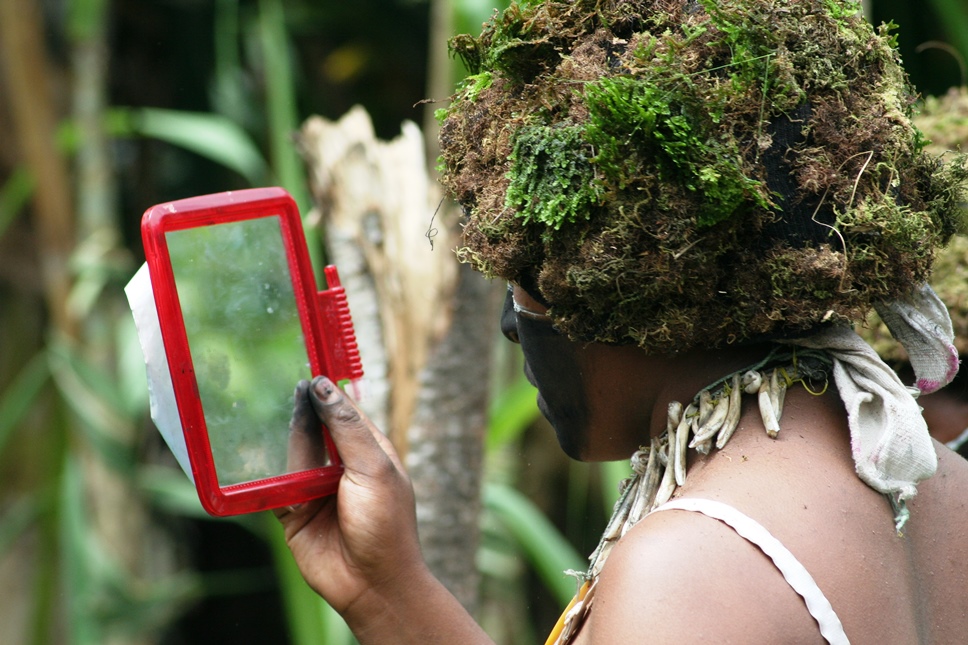
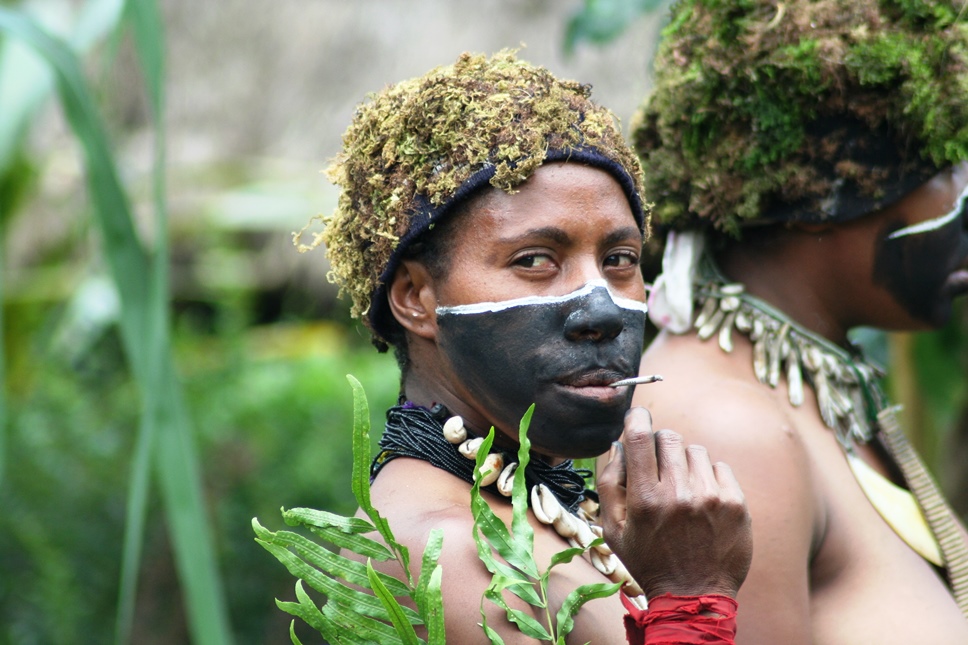
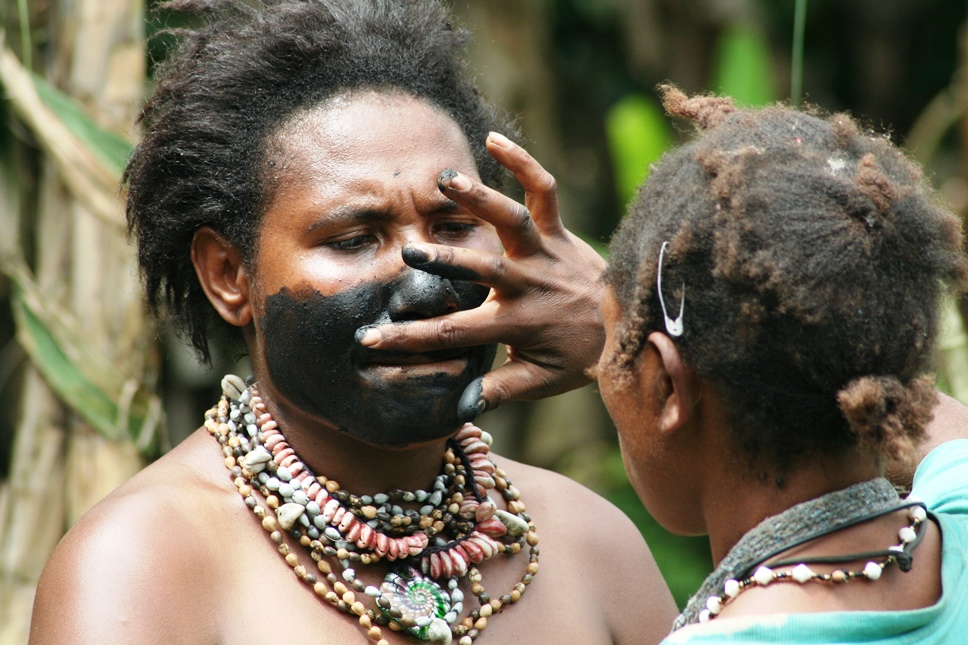
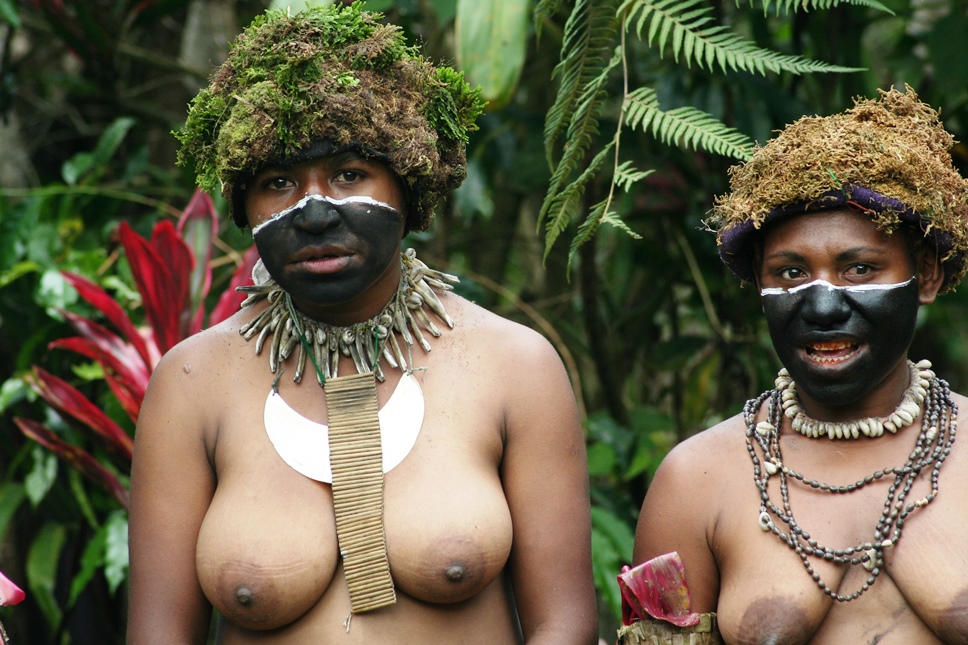
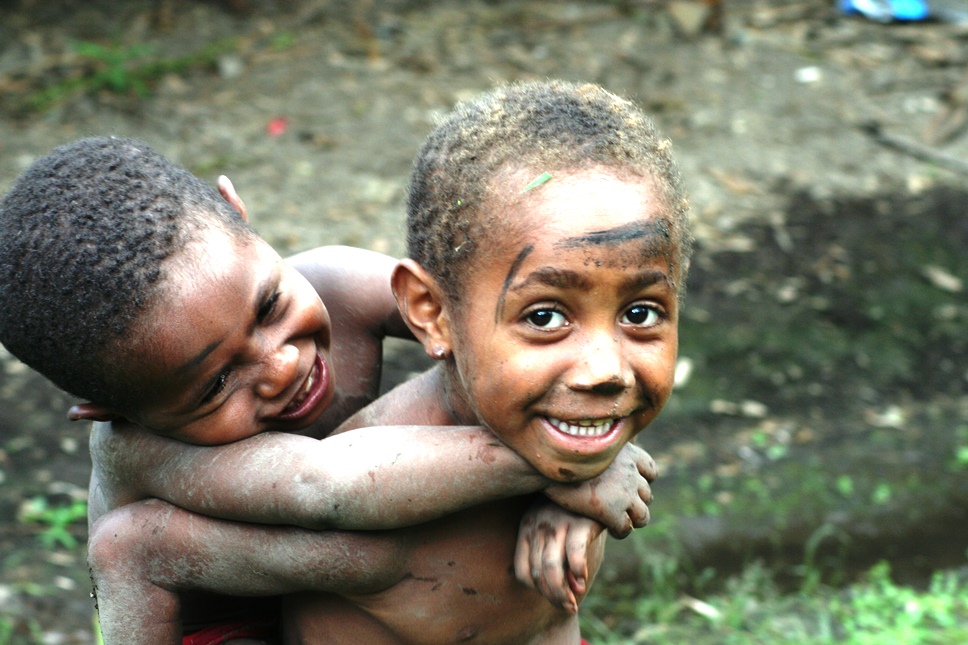
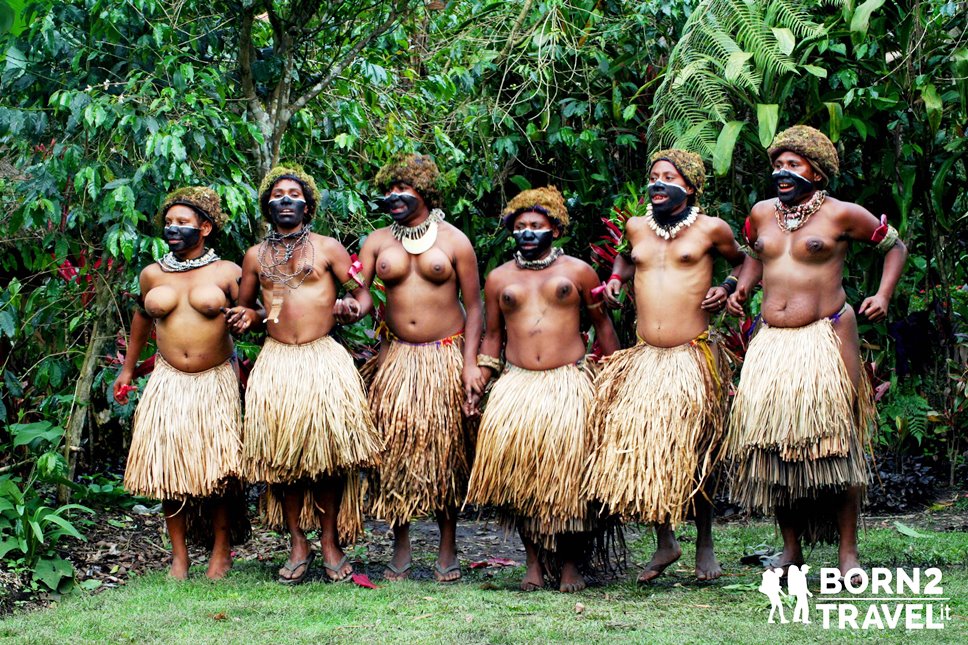
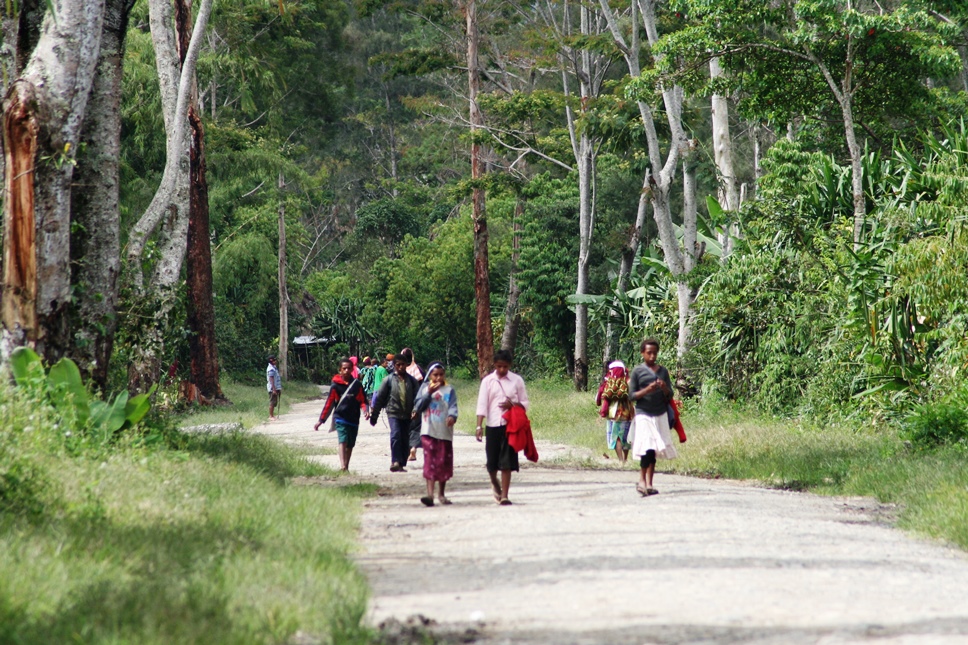
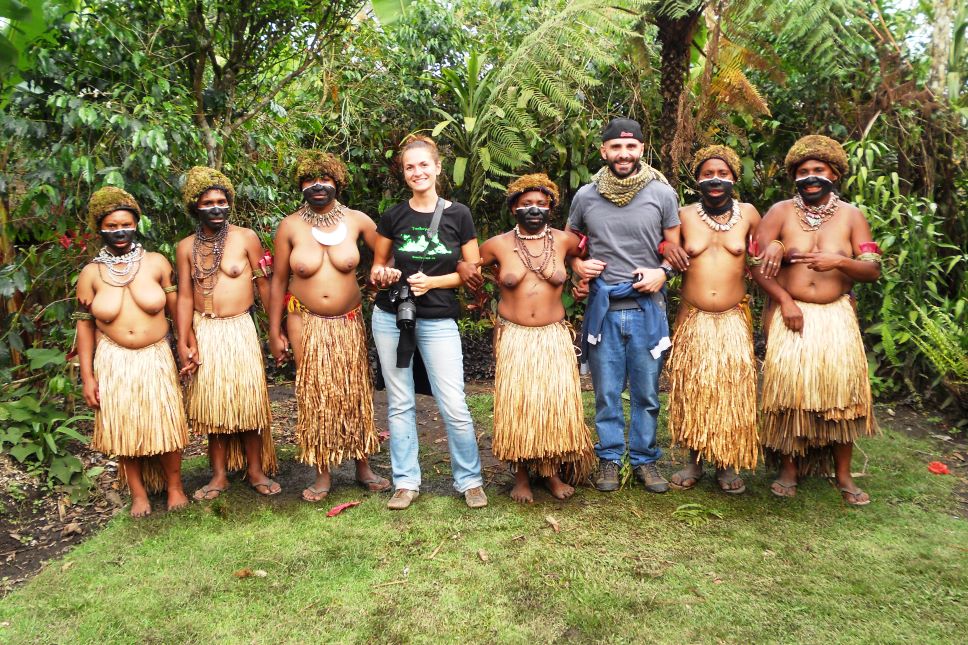
We talk a bit with the villagers: girls and ladies smoke sitting on the ground and immediately offer me their cigarette. I can't refuse. I enjoy this cigarette even if a little too strong for me, in the company of these wonderful women who repeat my name, they smile at me, they embrace me ... what a nice feeling of community. We take lots of photos and look at each other smiling without speaking ... but only we women know how many things we said under that tarpaulin under the light rain that resounded lightly.
The alarm rings early in this small, nameless wooden shack that trembles as each vehicle passes ...
The kind owner of the guesthouse gives us a ride to the village of Kumunga; the road is in a very bad state but with the 4 × 4 pick up we are doing great!
We arrive in a clearing where there are some huts, a very old lady looks out of curiosity and immediately comes to meet us hugging us!
In one corner five big woman from the tribe "Molke" get ready for the dance “Weldo”.
The preparation is long and requires a lot of patience and precision in makeup. The whole face is colored following patterns that have been handed down for who knows how long, the feathers of the various birds are carefully chosen and preserved according to the type of bird in the pages of a local magazine.
We follow these rituals with extreme care, enchanting us thinking about the history of this ancient tribe, a community that exposes a long series of jaws of pigs on a tree branch: they are the pigs that the family has killed over time and the greater the number , the higher the consideration they receive.
A smaller skull hits me. It is the only and different from the others. They calmly explain to me that it is that of a dog. A dog? Yes, they eat dogs, cats, cassowaries, snakes ... the more I know them the more I realize how different they are from us and, in a sense, still wild ...
Not only in habit but also in body composition: their faces are more similar to those of cavemen than ours. They don't wash, most of them walk barefoot and with feet that are now hard as rubber ... I'm sorry to say these things but it's the pure and objective truth. On the other hand they have a golden heart and when they meet us on the street they are always happy with our presence!
Are they really that wild? They solve their problems with other tribes by killing themselves with slings or bows and arrows ...
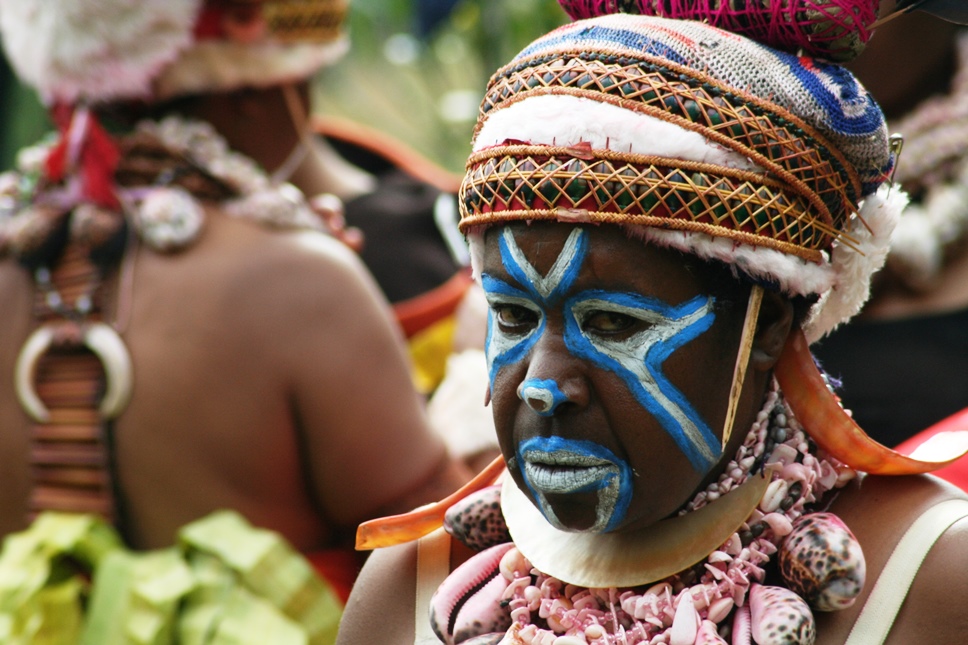
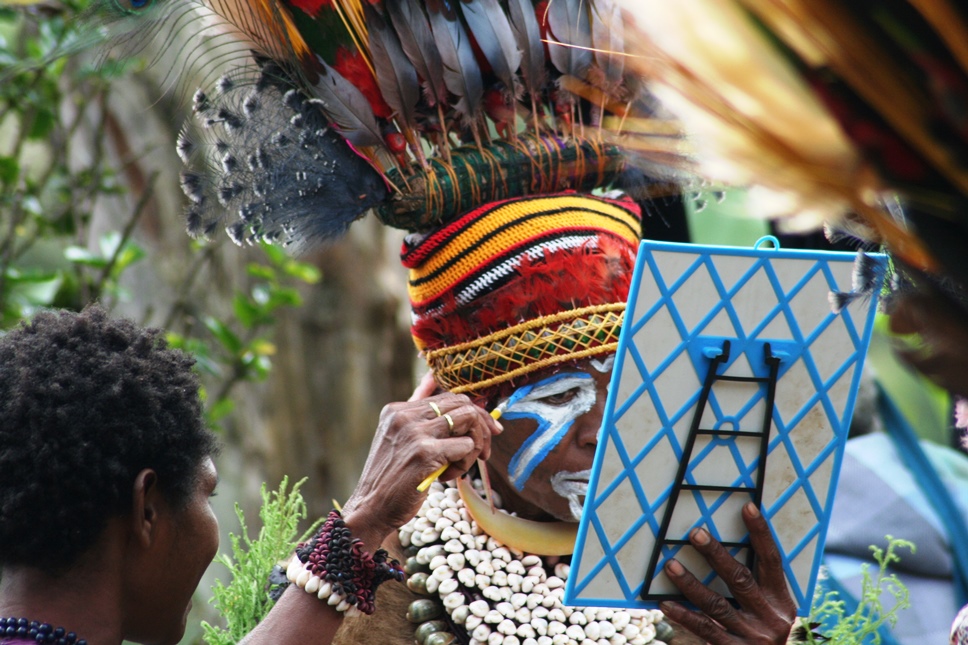
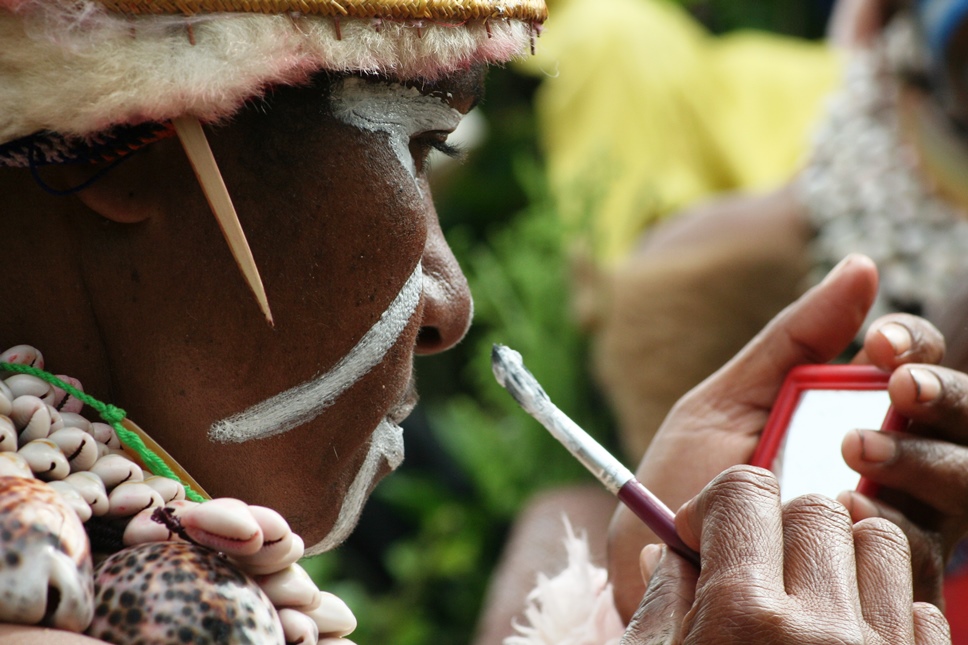
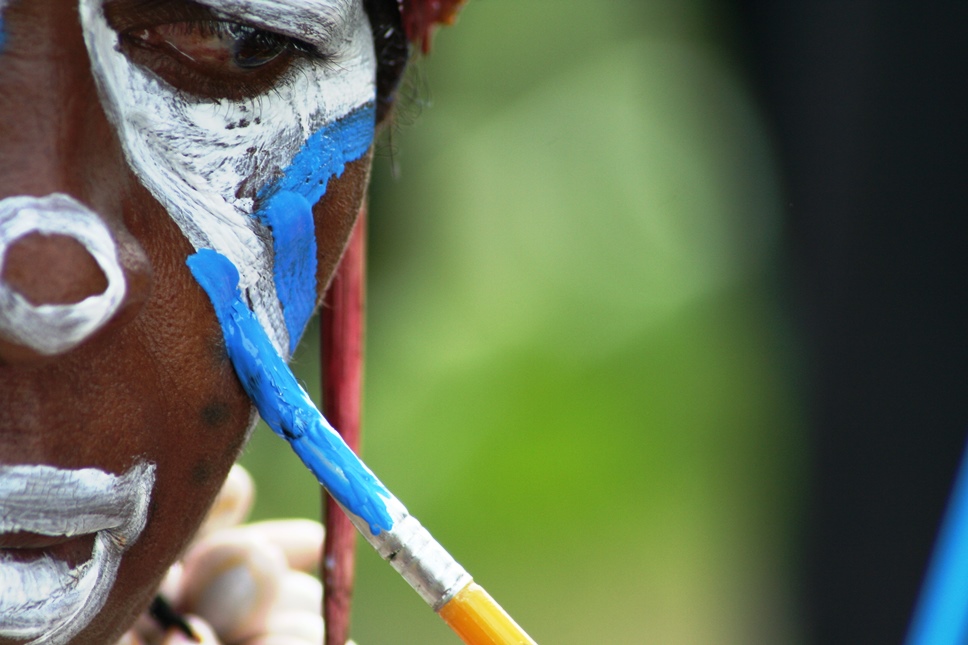
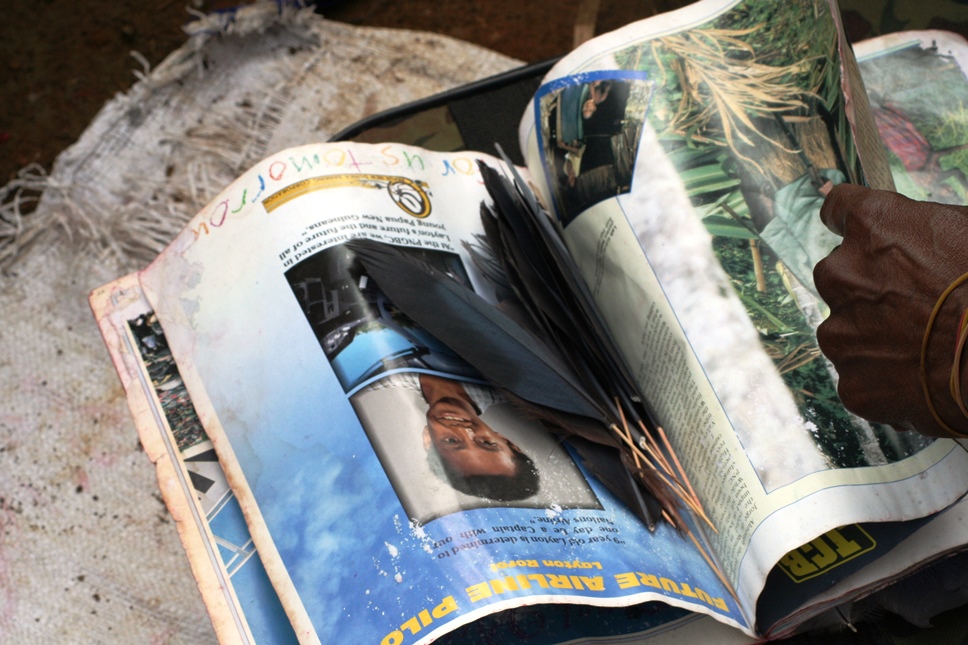
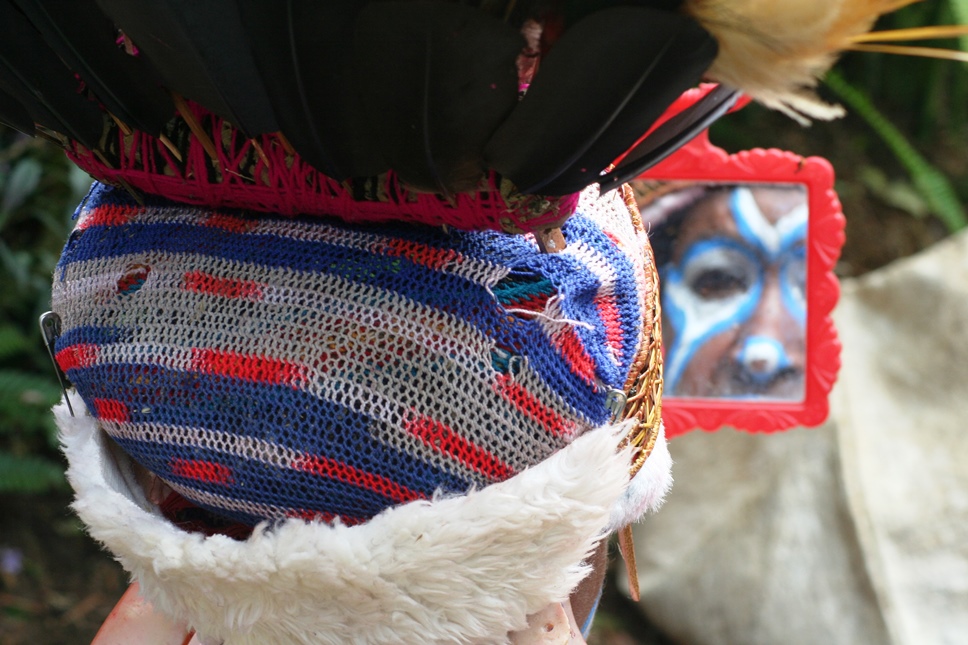
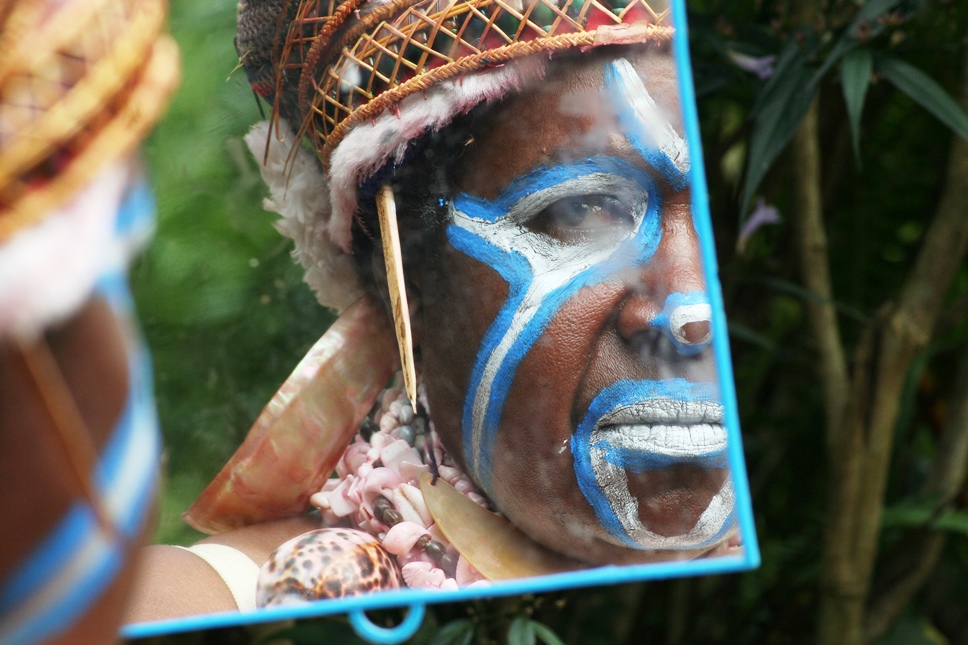
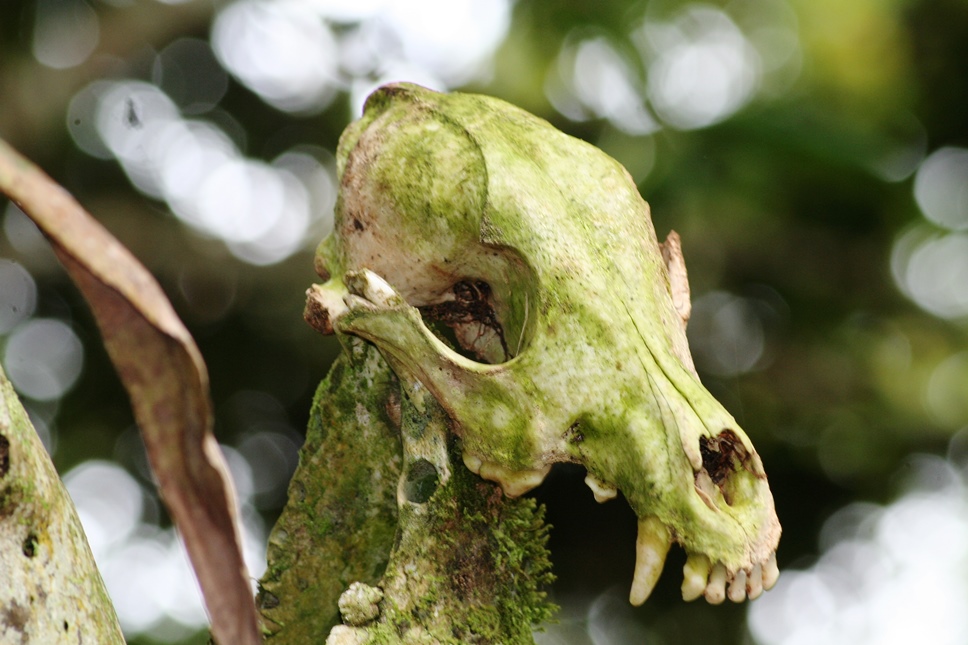
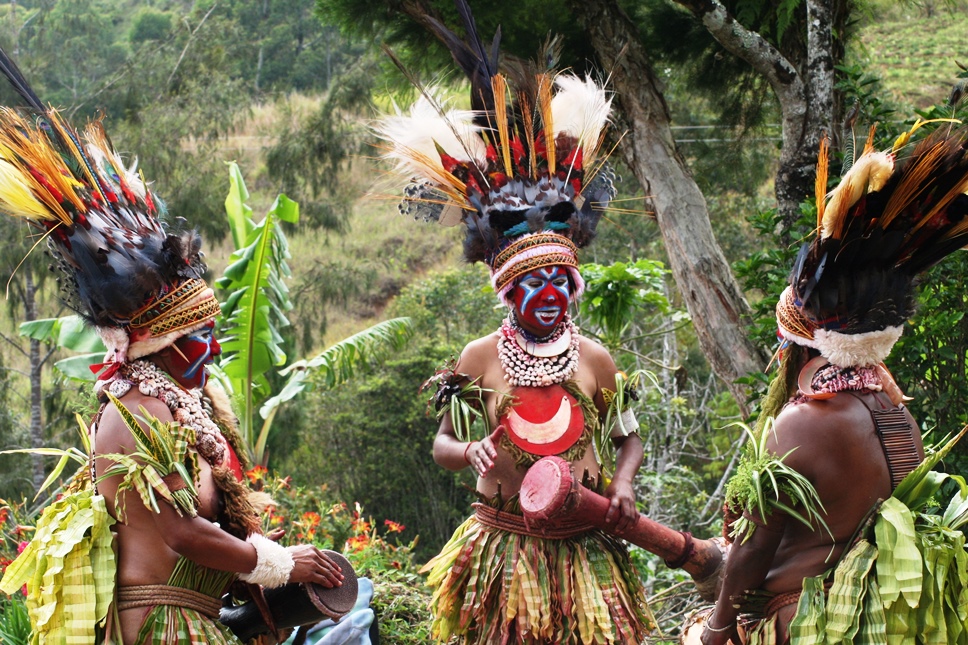
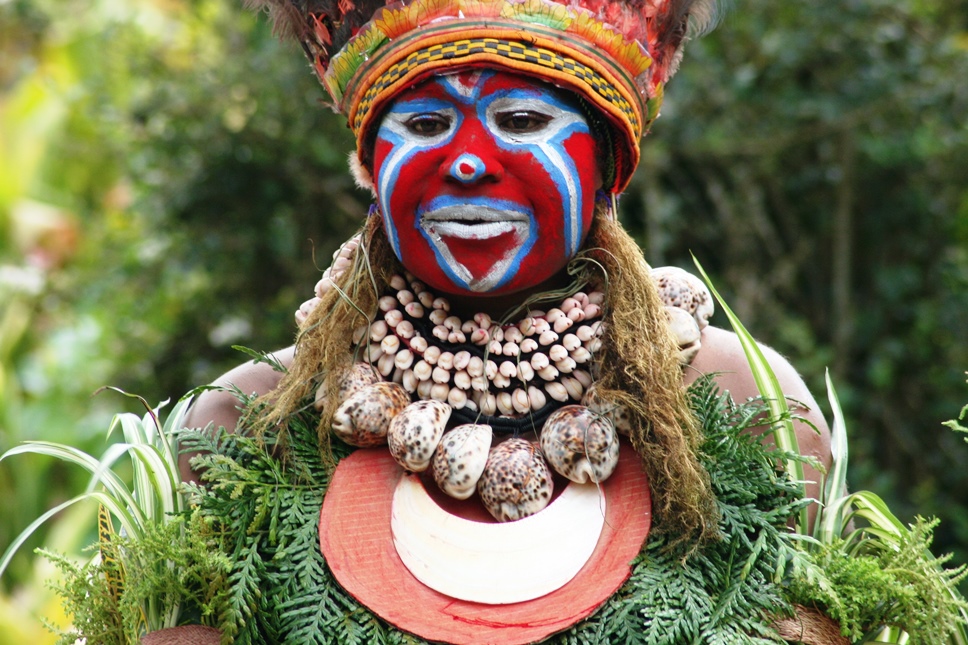
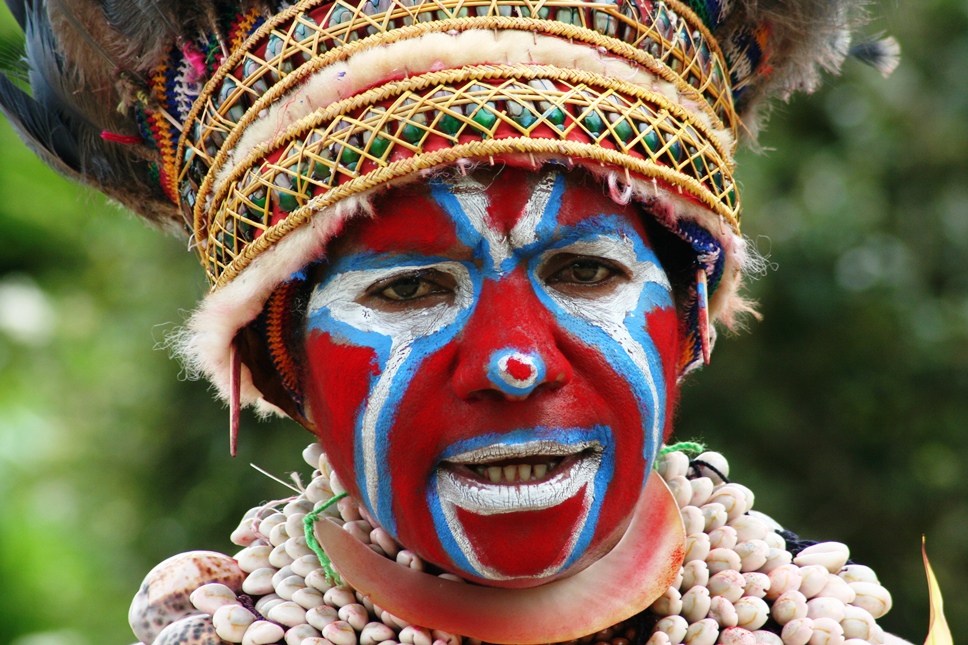
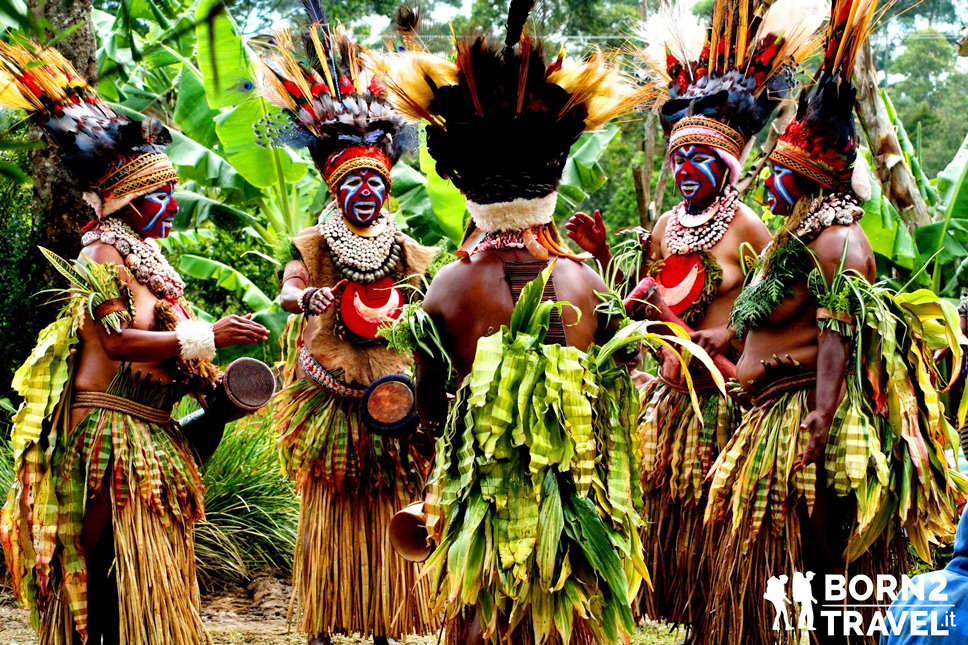
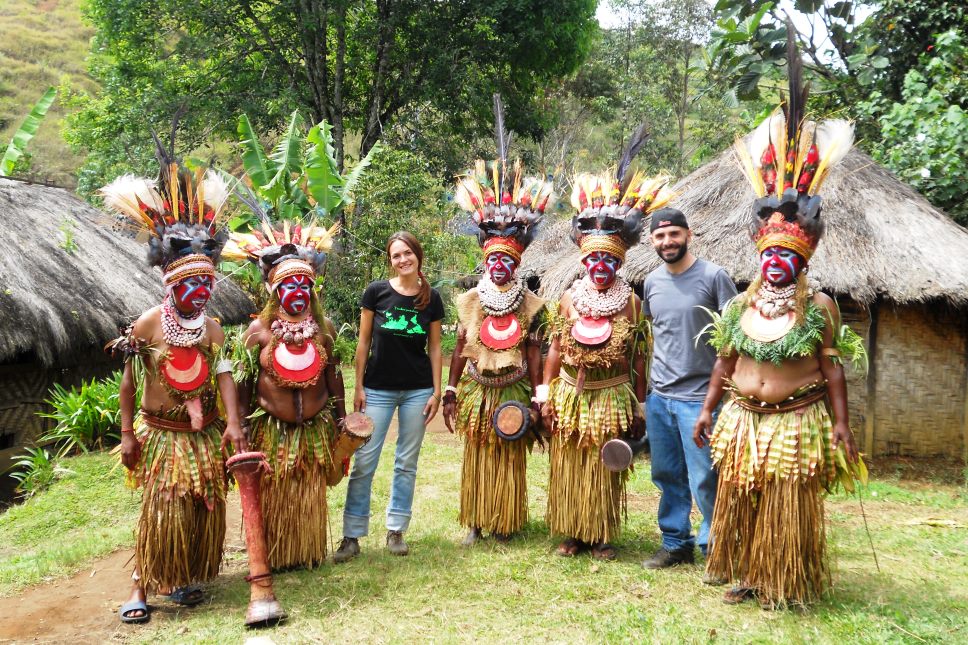
The natives of the village were particularly proud because for some time they also had electricity and therefore they felt 100% autonomous because now they could charge cell phones as well!
In the general chaos a girl hits me: Sharon, who shyly shoots us, in secret, some photos with an old digital camera! I get curious and ask if she had a PC ... after all we are in the jungle ... and she: - "No" ... - "and where do you look at the photos then?" - and she, wonderfully: "... on the machine display!"
The ceremony begins. What a thrill to watch those ladies with large bellies, saggy breasts, multicolored faces, fetishes that adorn various parts of the body and a thousand colored feathers on their heads singing their old litany ...
We know a 60 year old native of the place that as a child had been adopted by a Dutch family and, around a warm fire in a hut, tells us some anecdotes about his life and his memories as a child.
He tells us that when she was in a menstrual period her mother was removed from the village for a few days because this phenomenon was considered as a malicious event!
He told us a little about the courtship, the so-called "courtship" that, shortly after, we could see in a reconstruction by the villagers through the "sing sing dance".
Every now and then a kind of great meeting of all the young men to be married was held inside the villages ... people sat side by side and sang their shoulders and their heads full of feathers in order to attract the attention of the boys not only for their beauty but also for the colors of their make-up as well as the persuasive movements ...
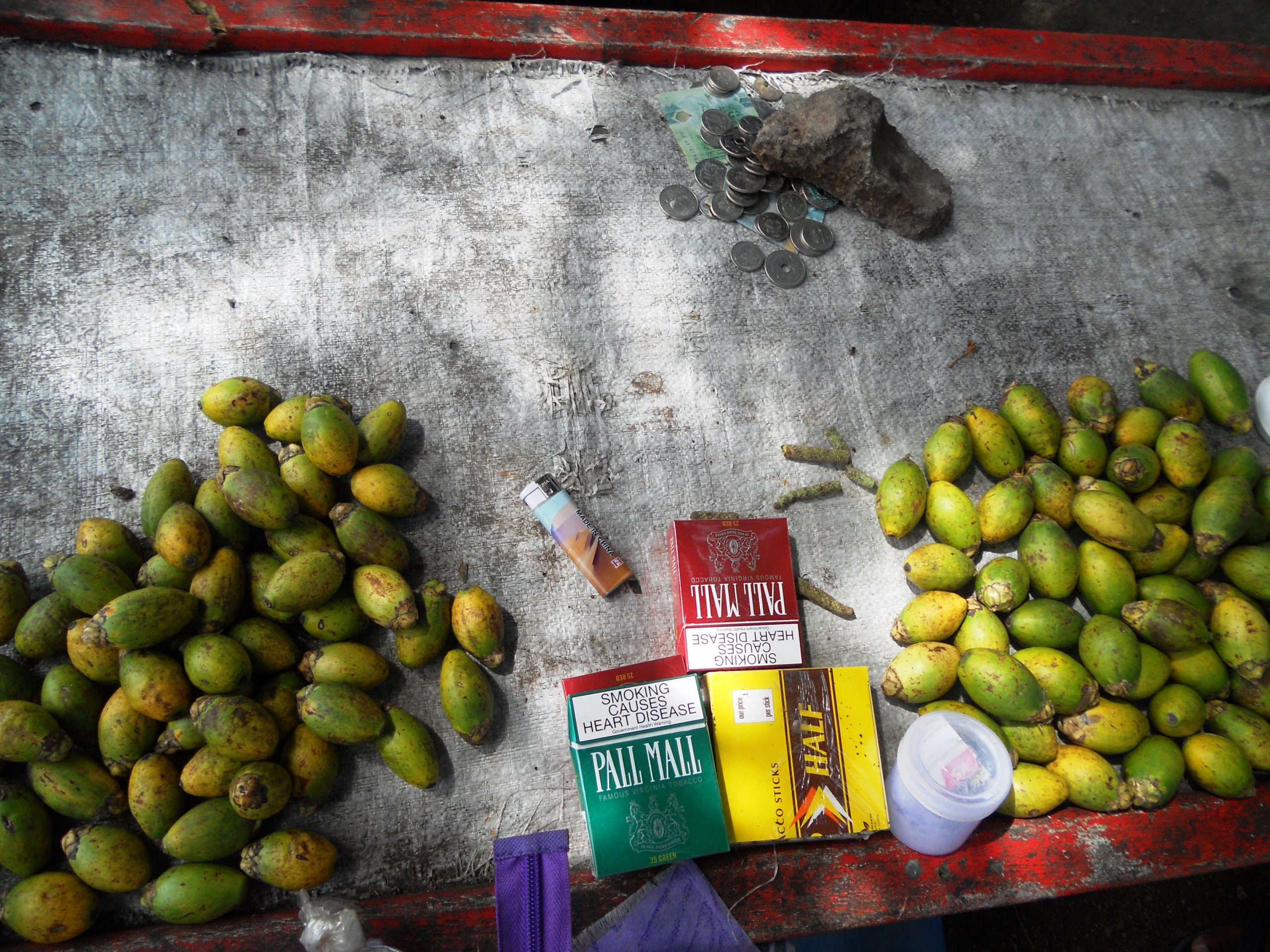
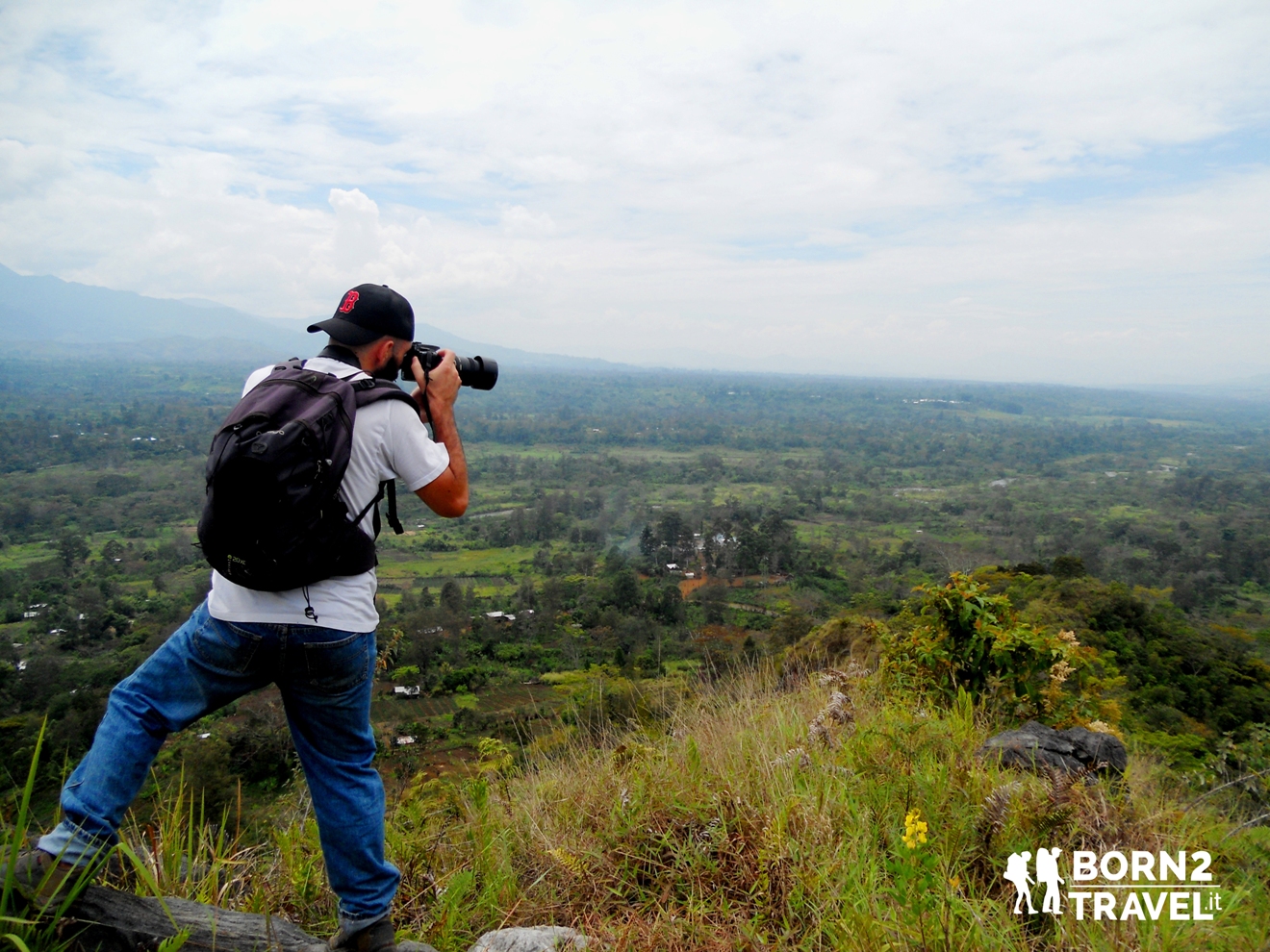
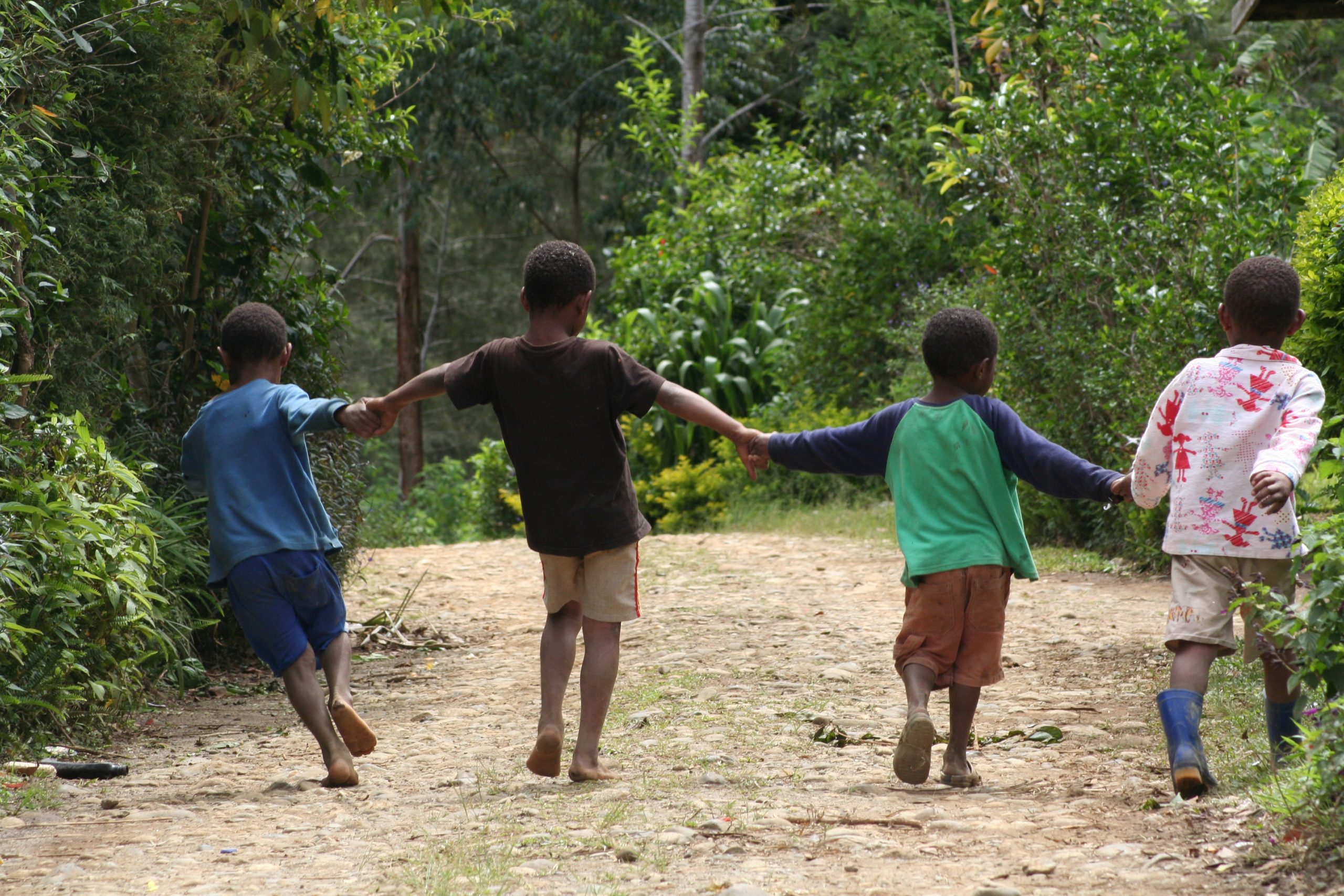
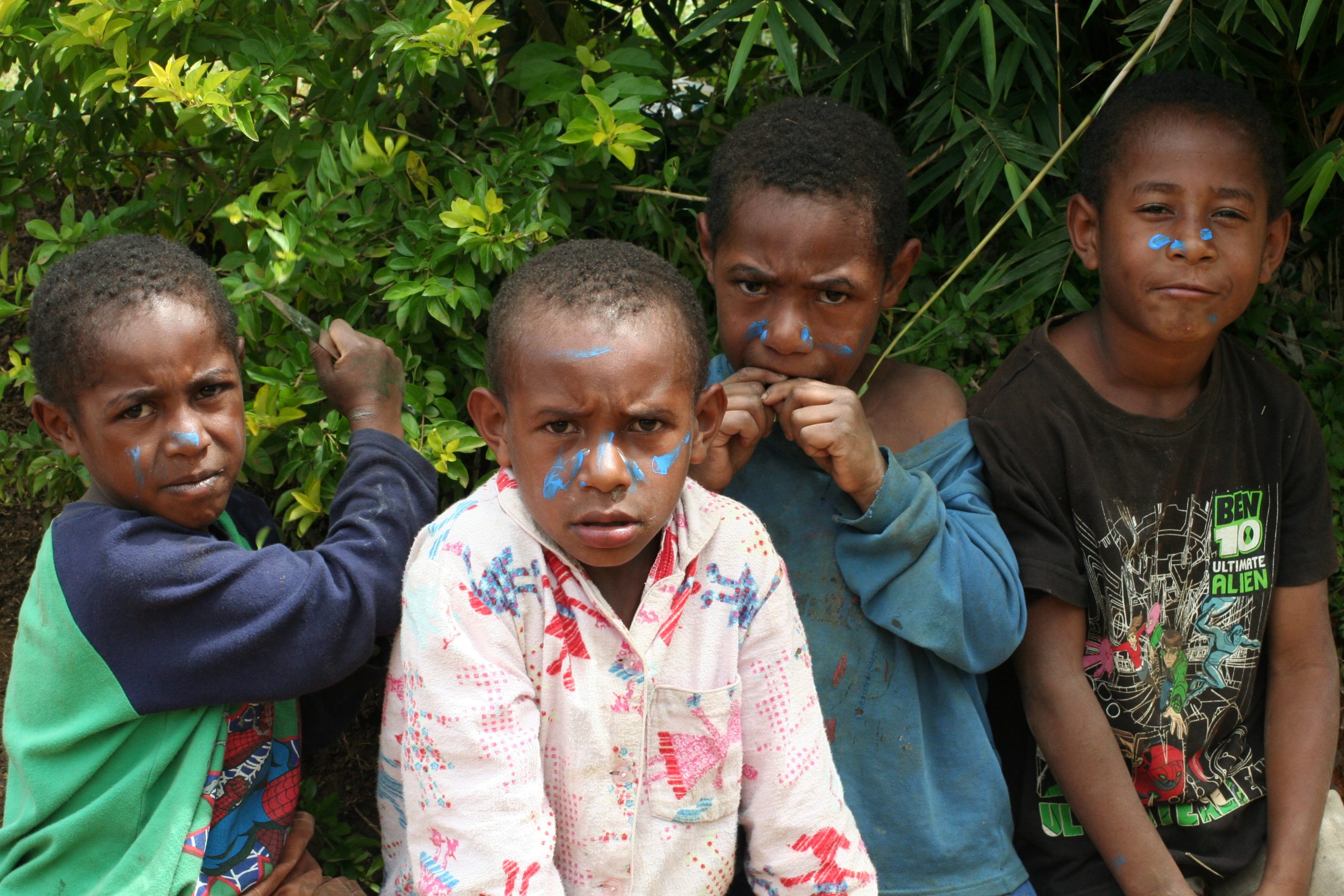
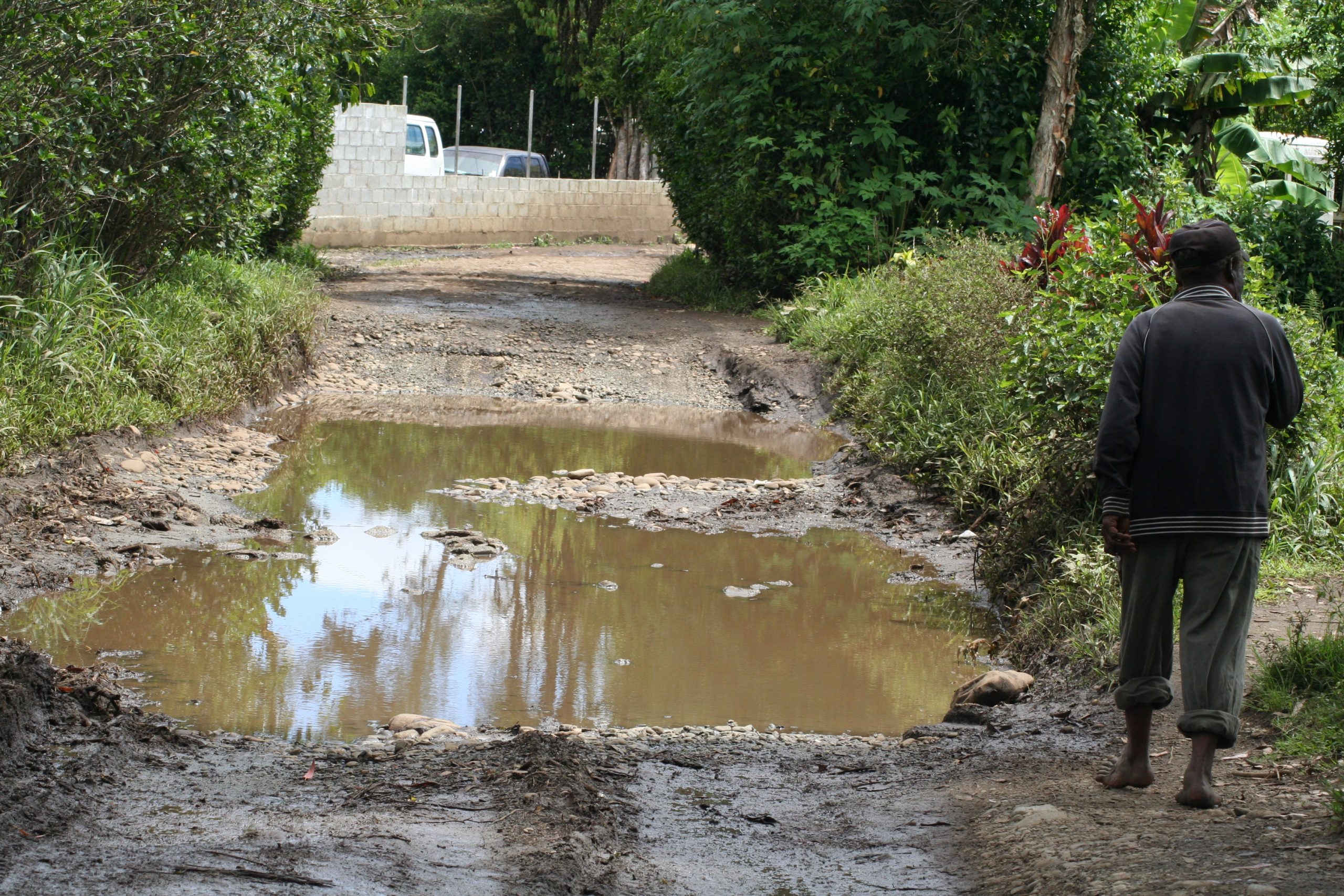
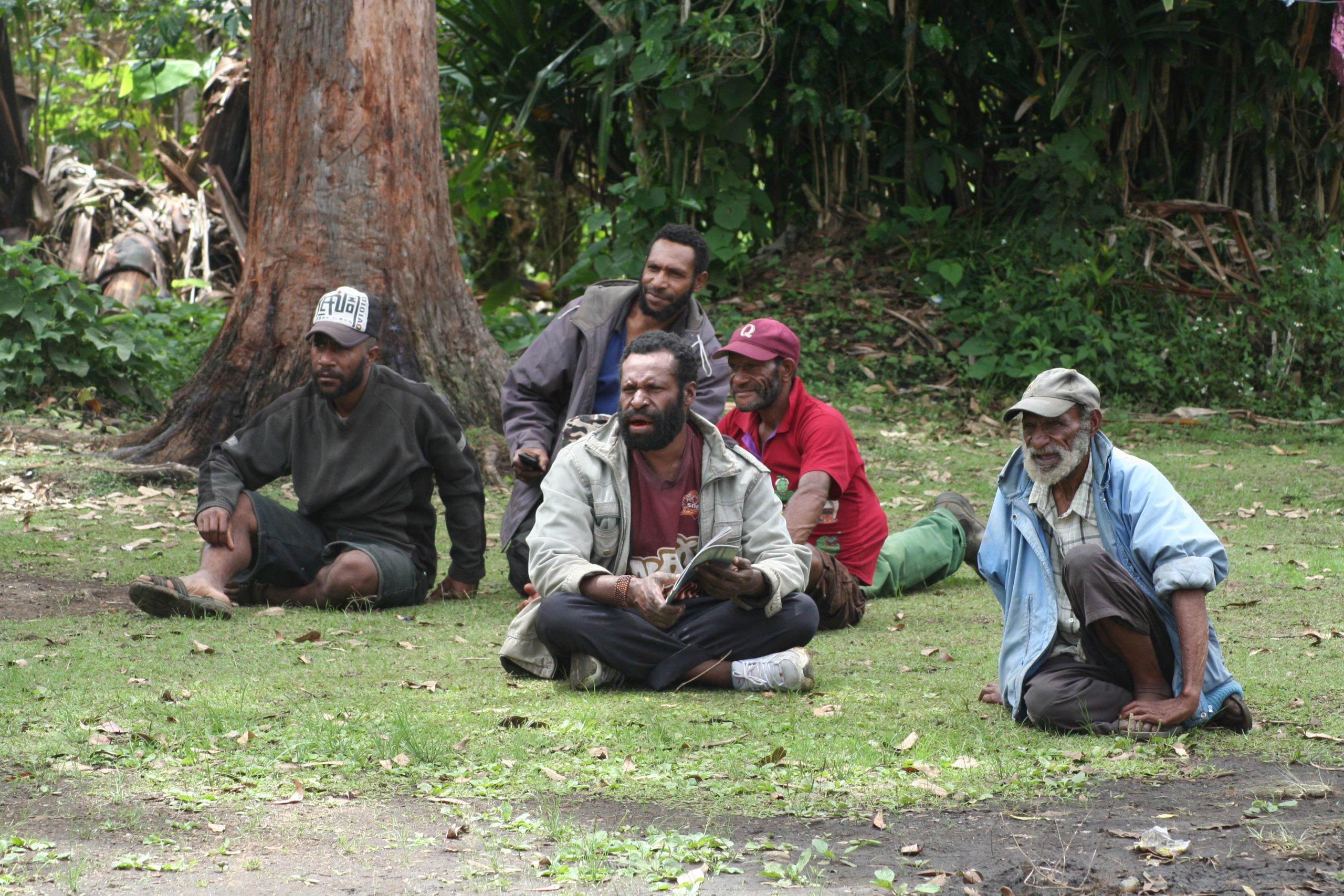
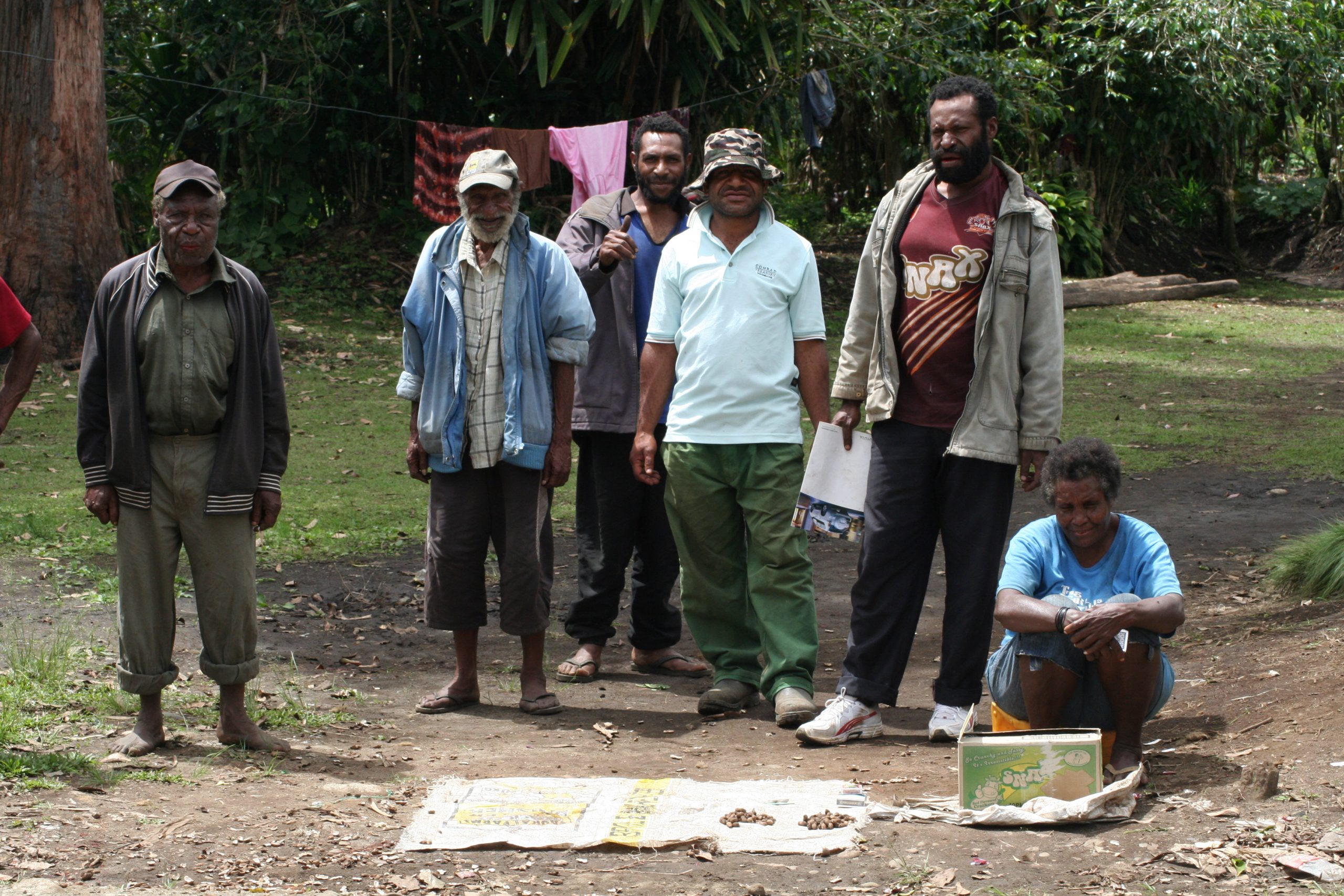
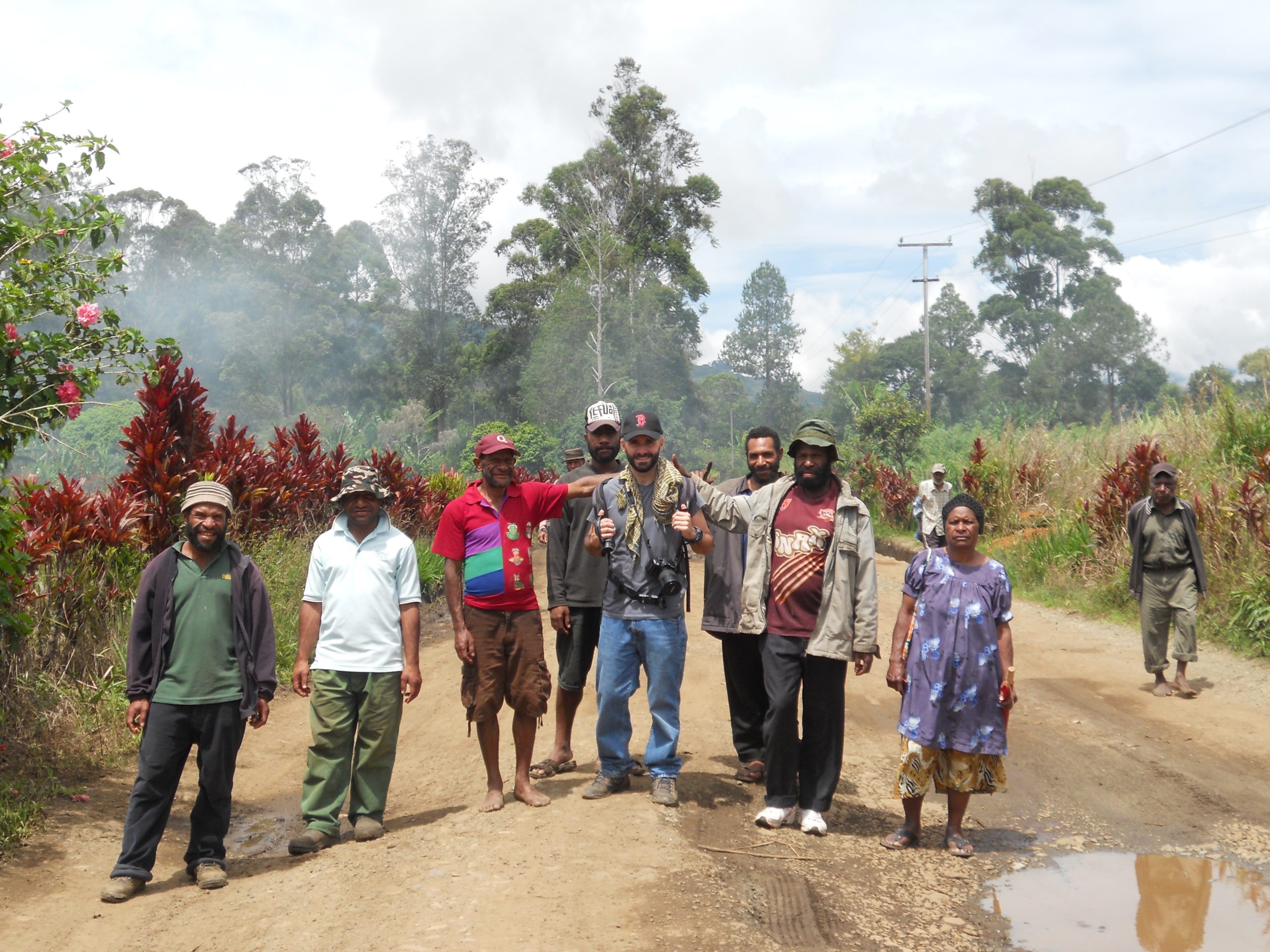
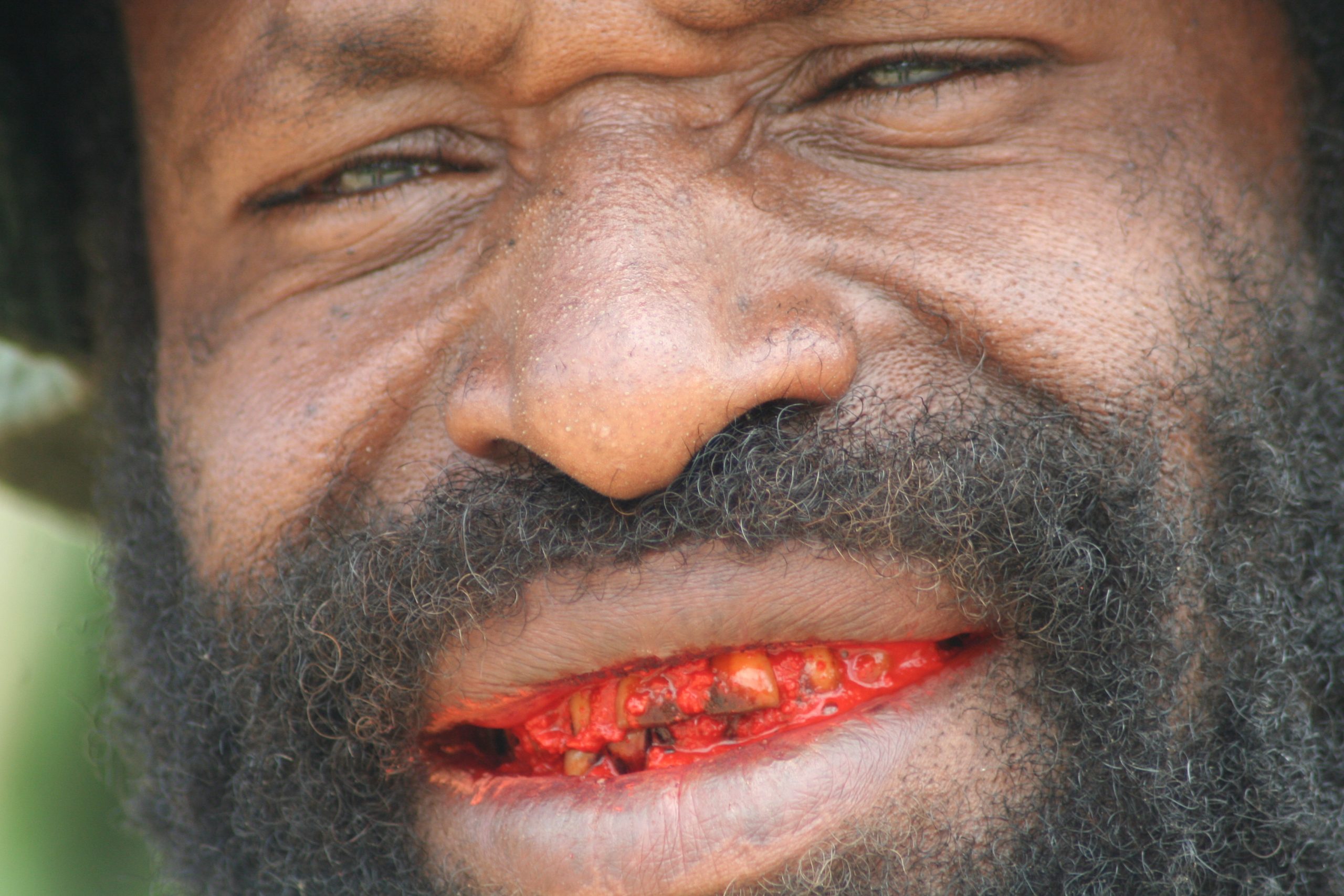
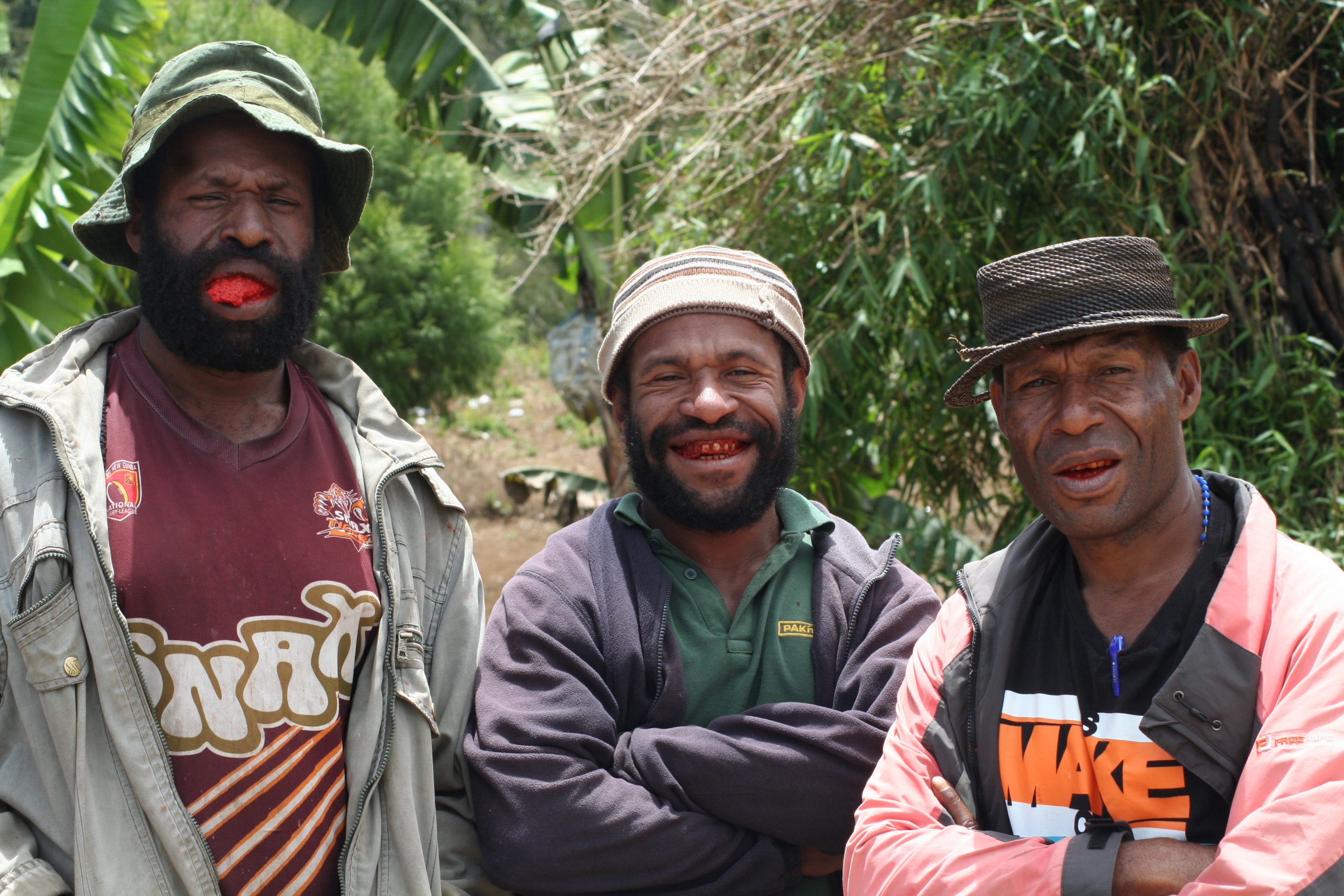
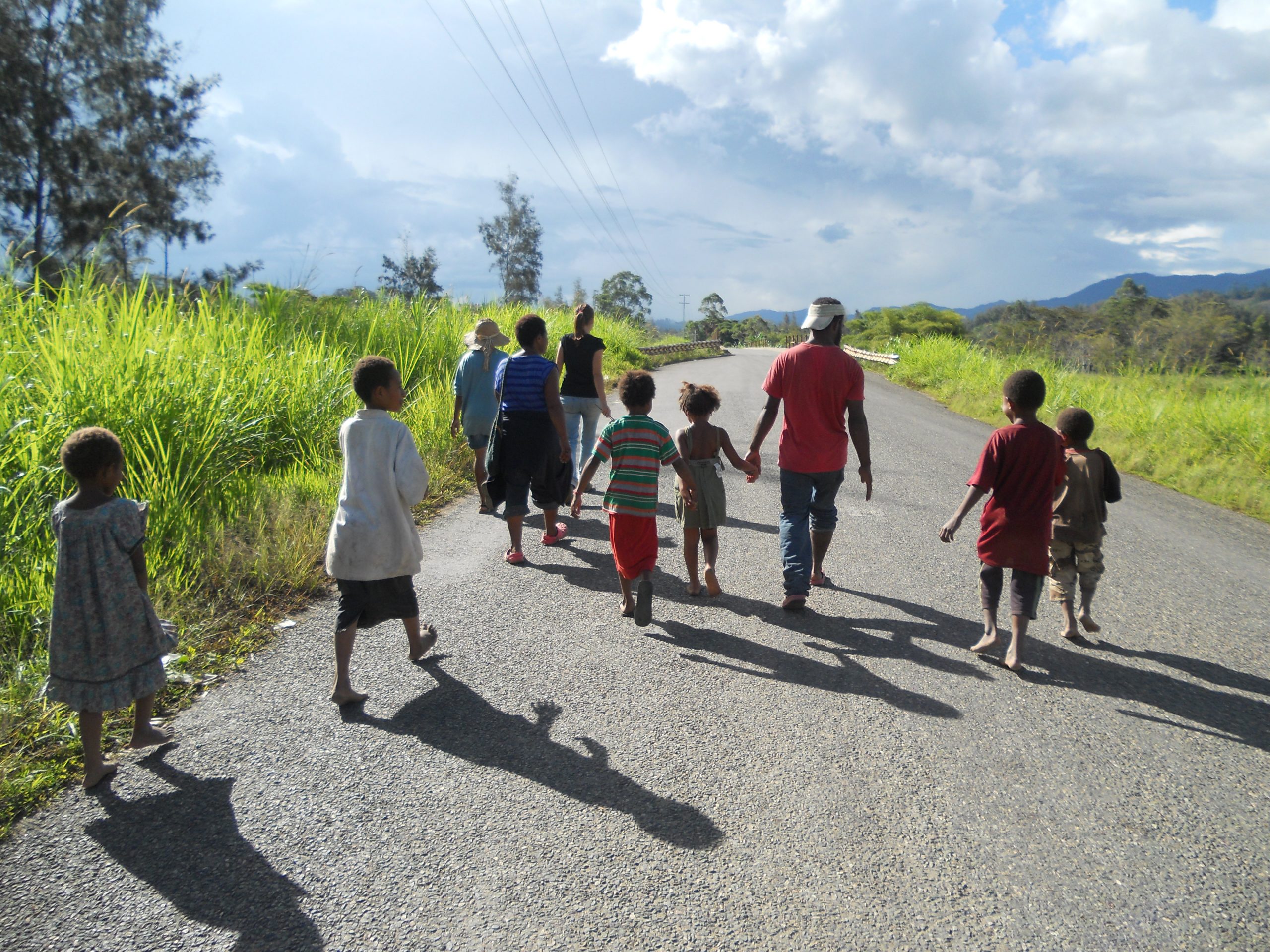
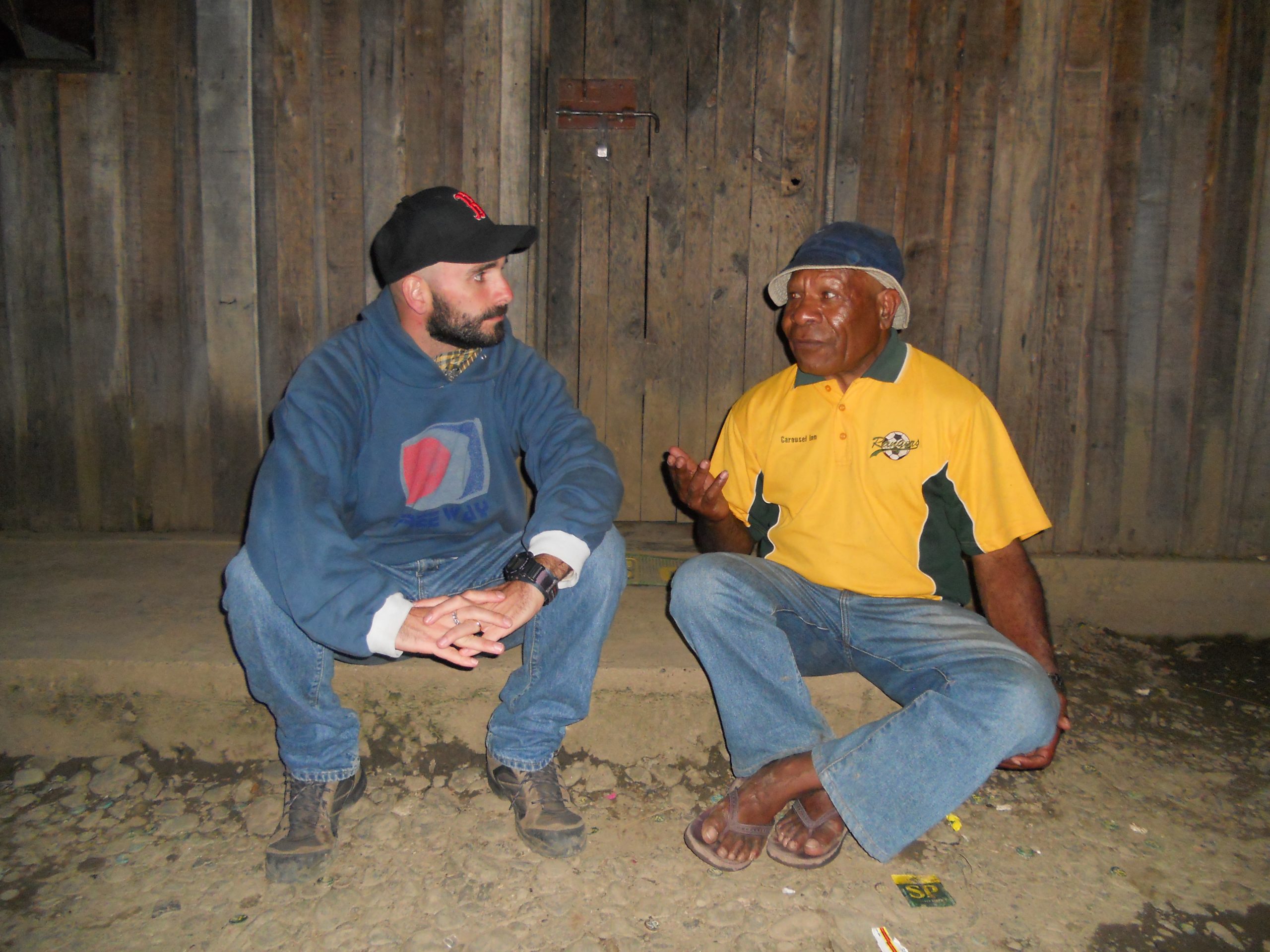
In an hour of PMV we reach Mingende and Caspar shows us the place where we should spend the night: another slum.
Just enough time to put down our backpacks and wash our hands around again. However the hands will remain clean for a few minutes since all the people we meet on the street stop to squeeze them ... all ... even those who walk in the opposite lane ... cross only to touch us!
We go back into the jungle and this time we are guests of the "Ghost" tribe. Men and children painted by skeletons that represent the story of the ghost (a mythological figure half wolf and half mouse) that terrorizes the village.
The exhibition is suggestive, the background is very picturesque and, hidden among the large bushes, there is the whole village that observes the scene intrigued.
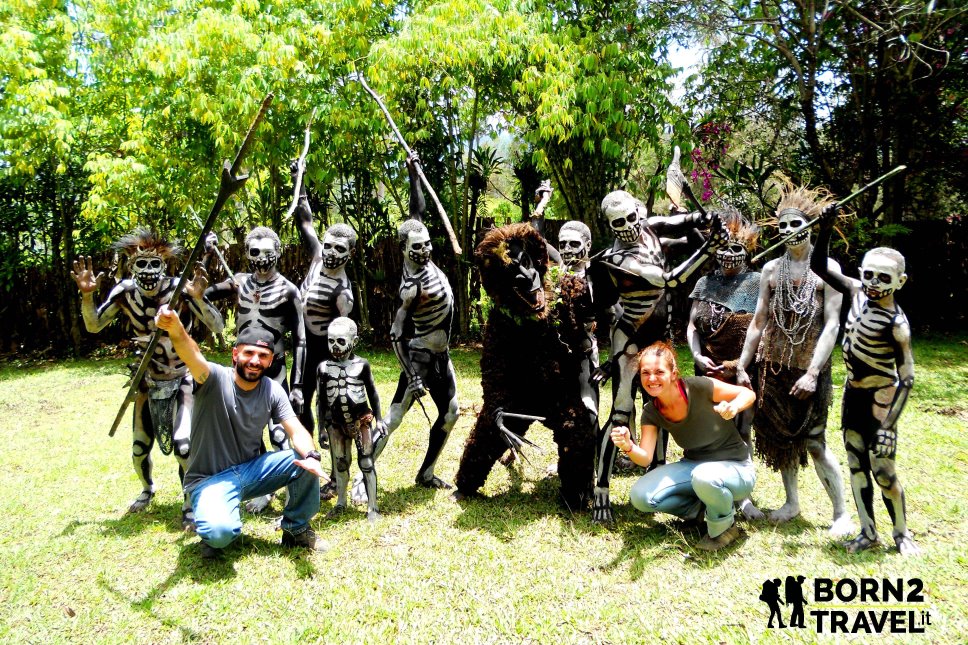
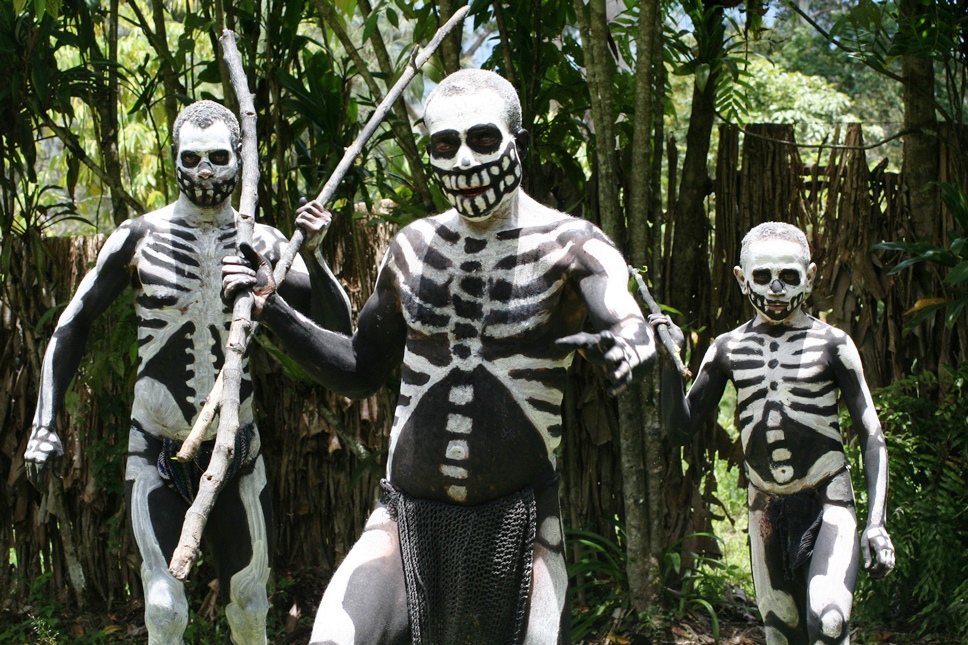
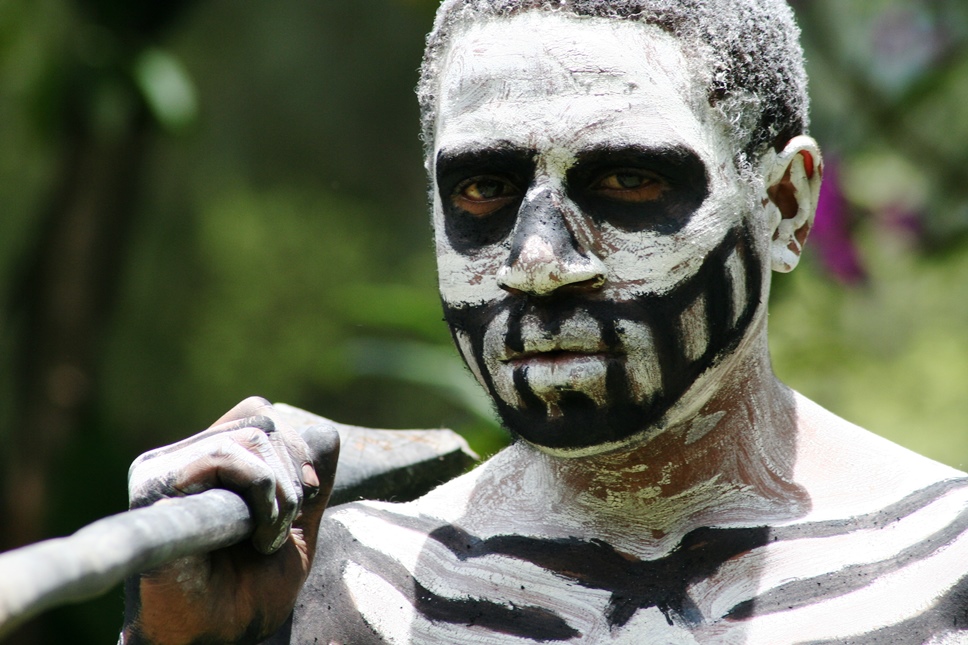
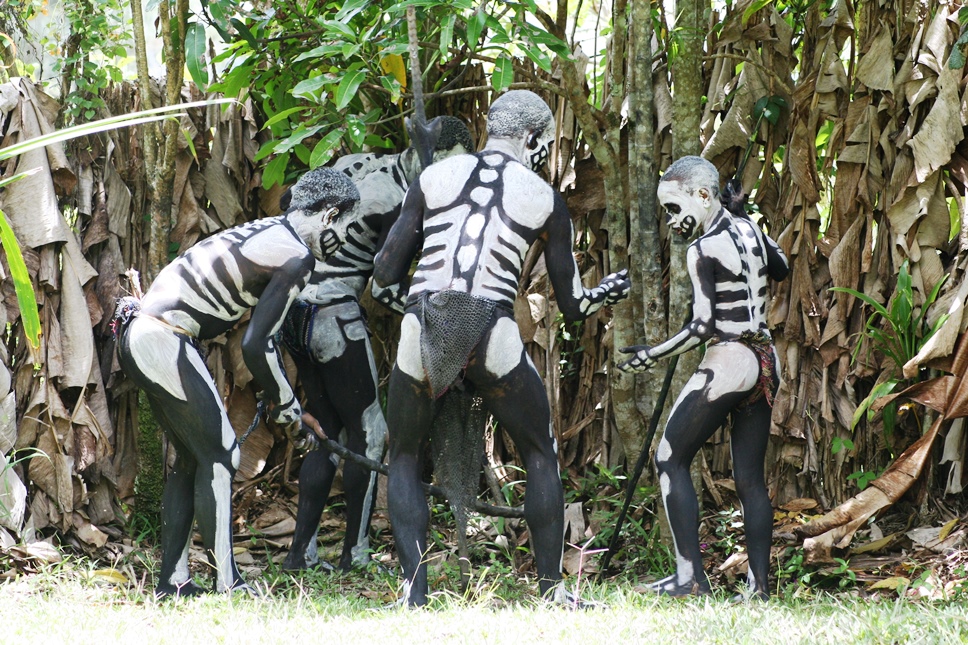
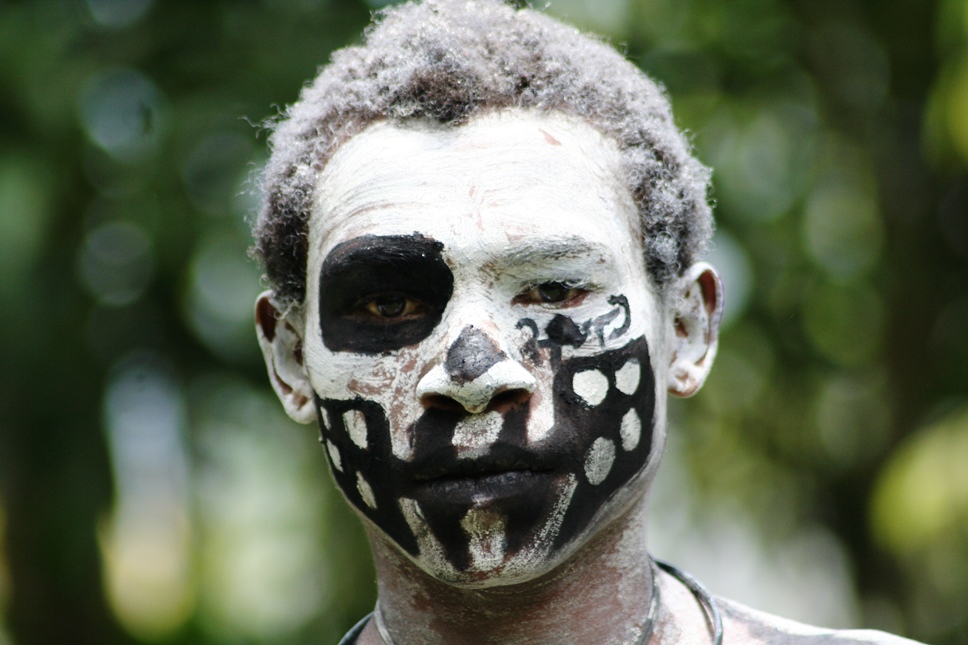
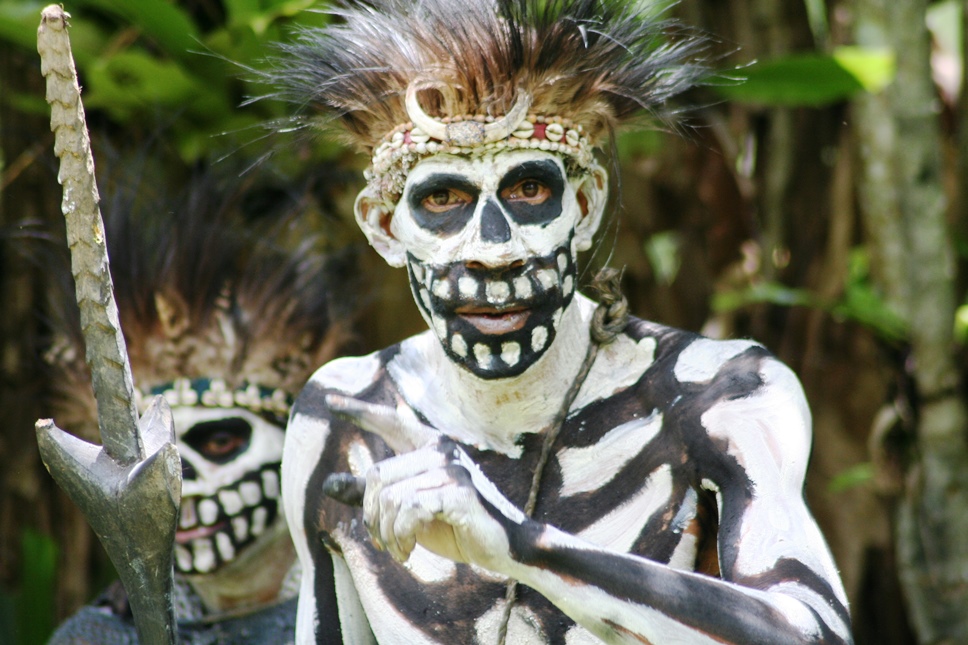
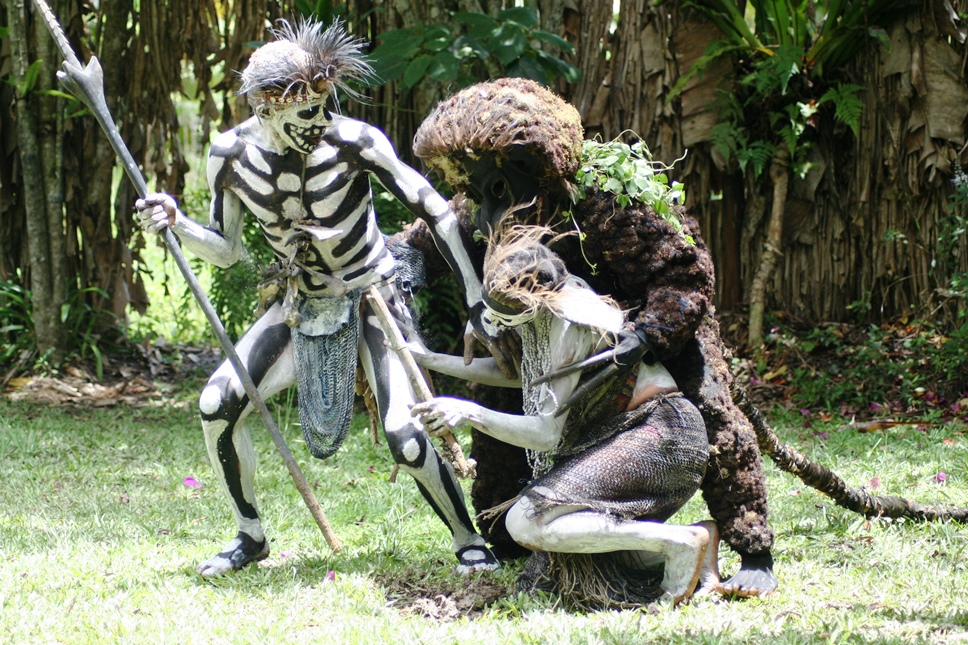
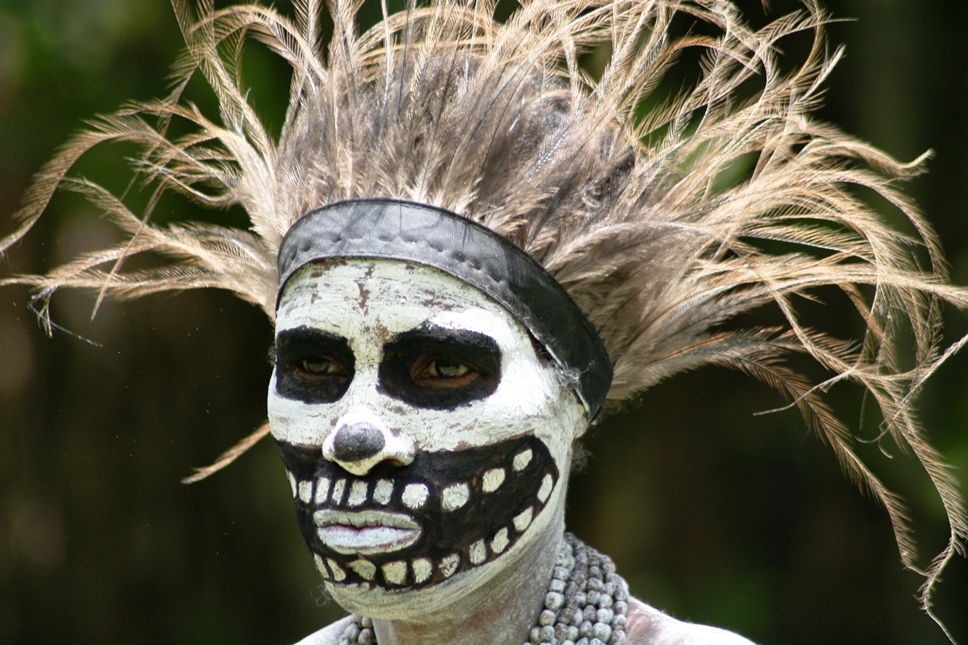
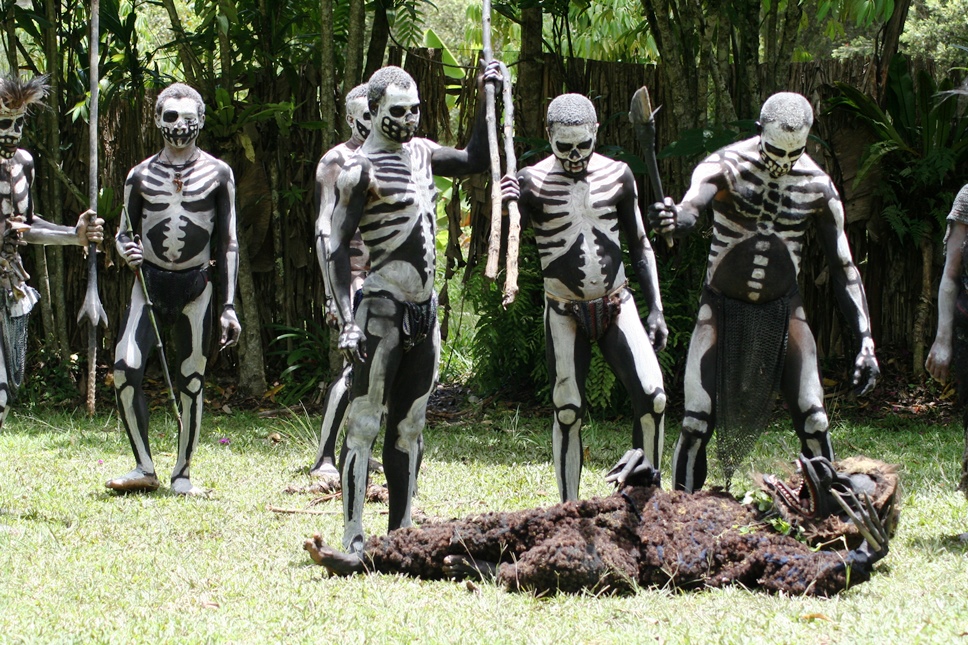
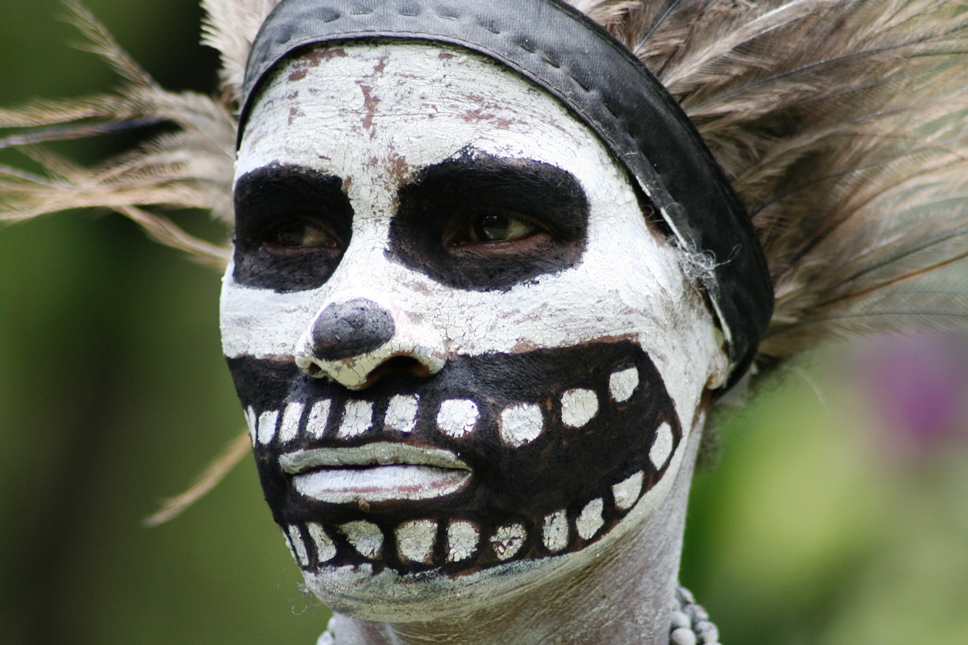
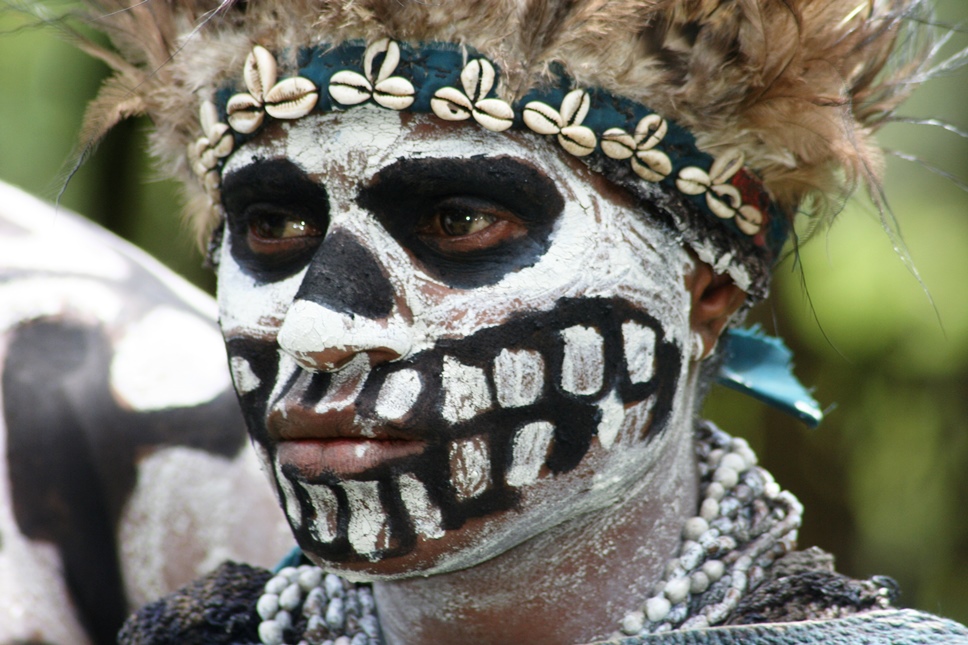
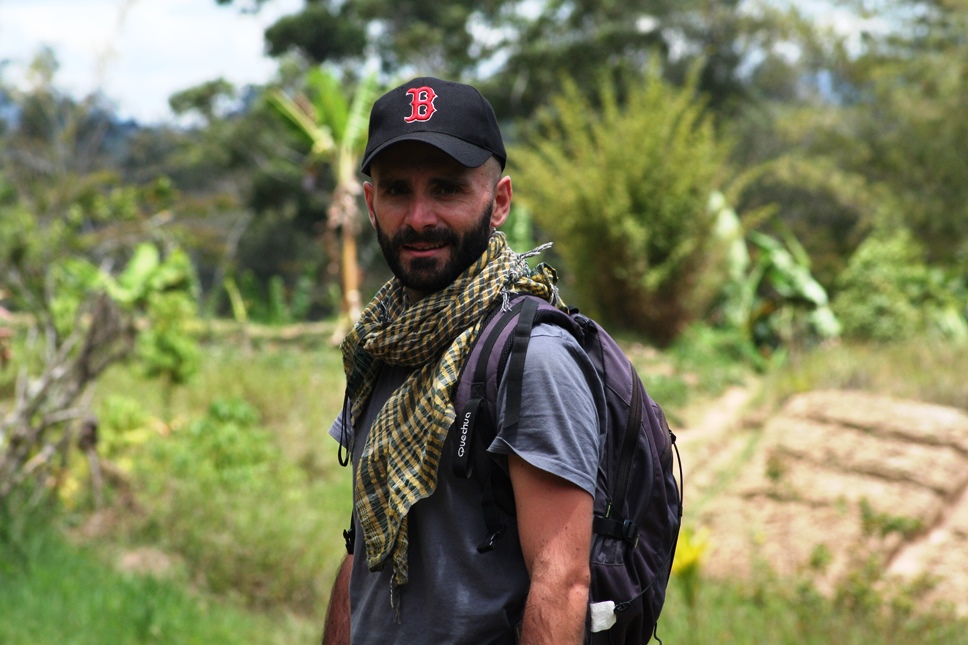
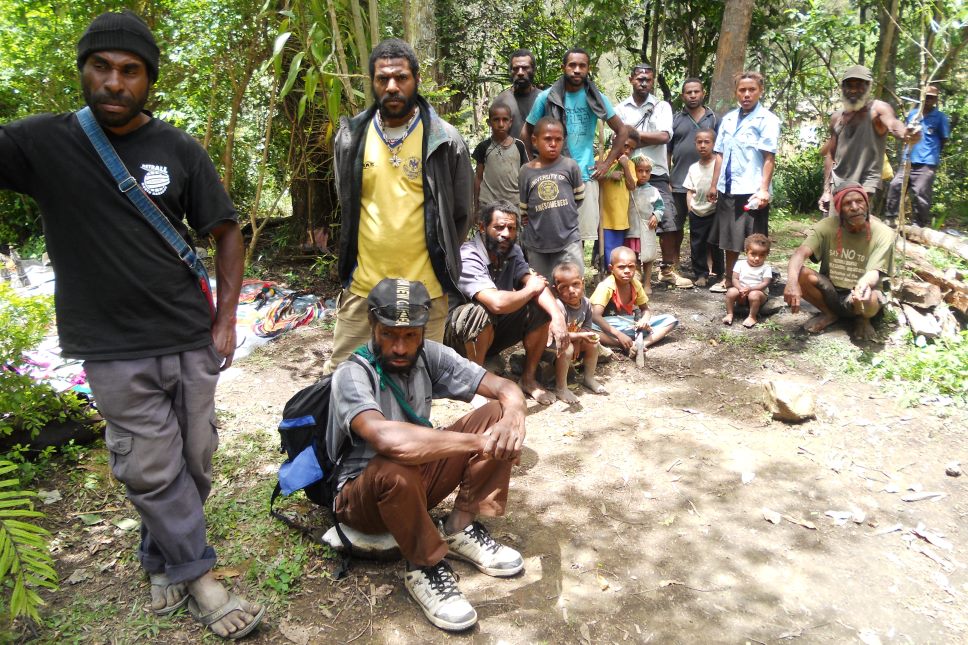
Shortly after we move to another village.
The Narku tribe shows us clips of their everyday life, from the search for honey to the cultivation of sugar canes until the wedding ceremony. The offer of the father of the groom, negotiation, the meeting of the two families until the separation of the bride from her family in a definitive way.
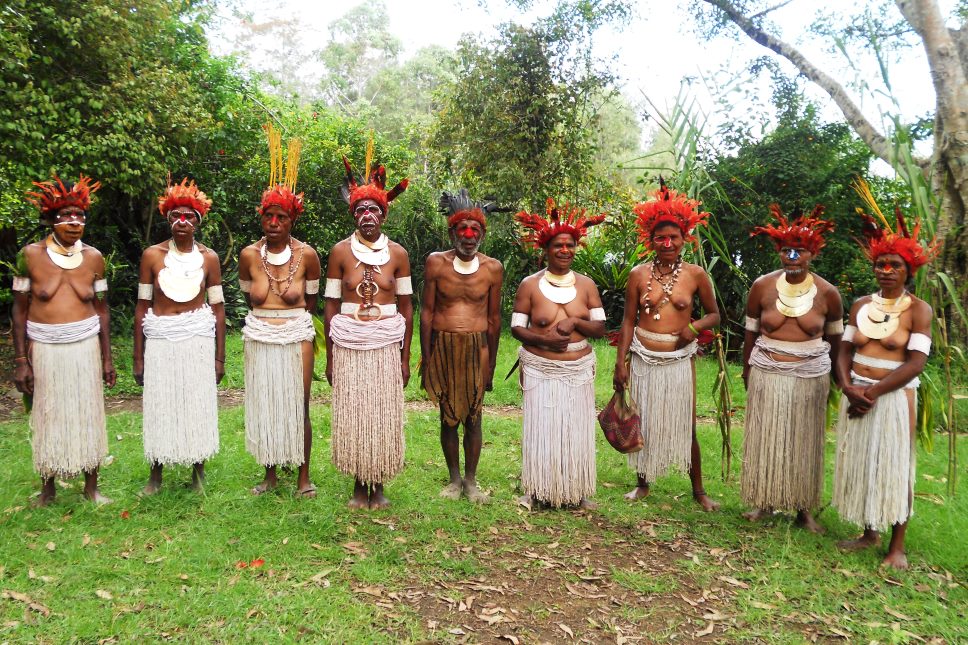
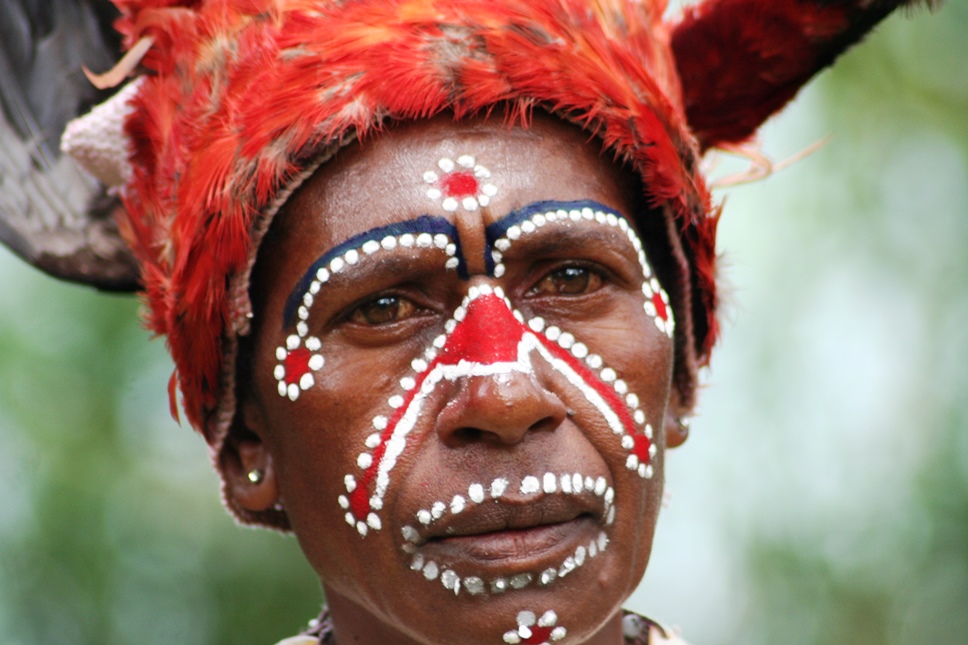
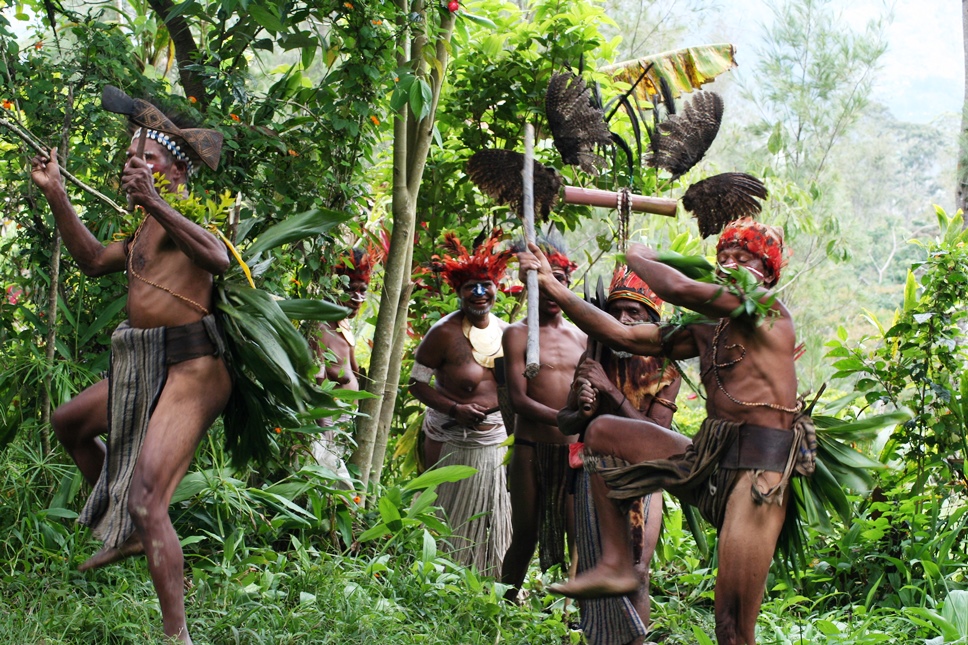
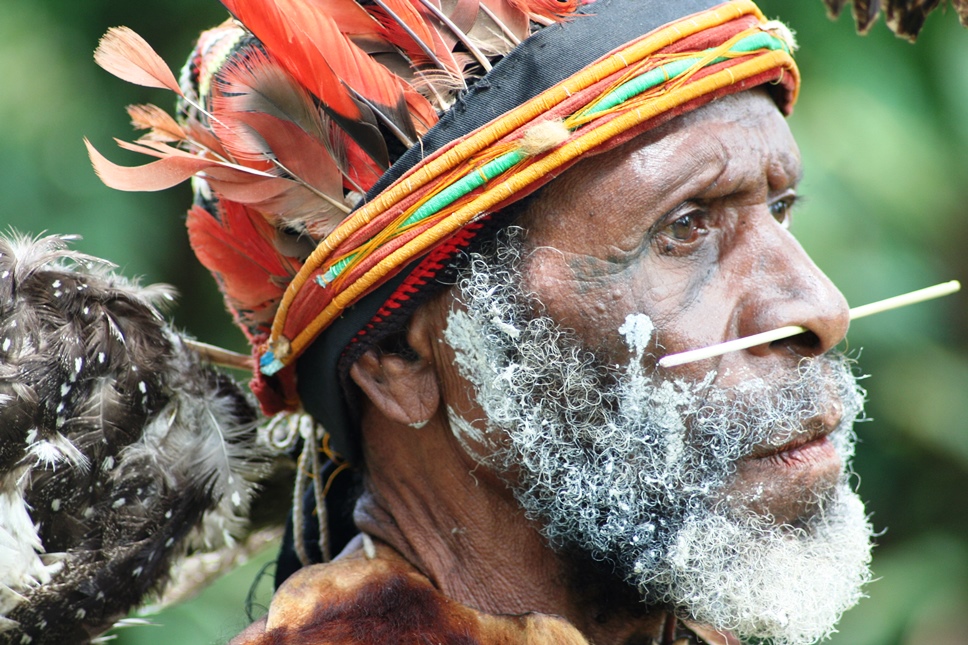
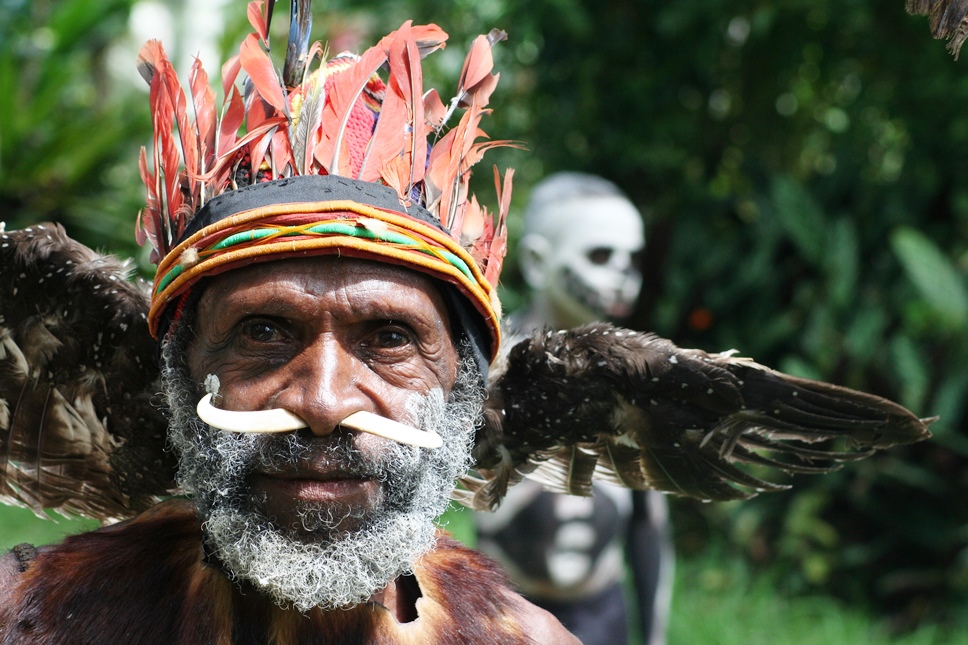
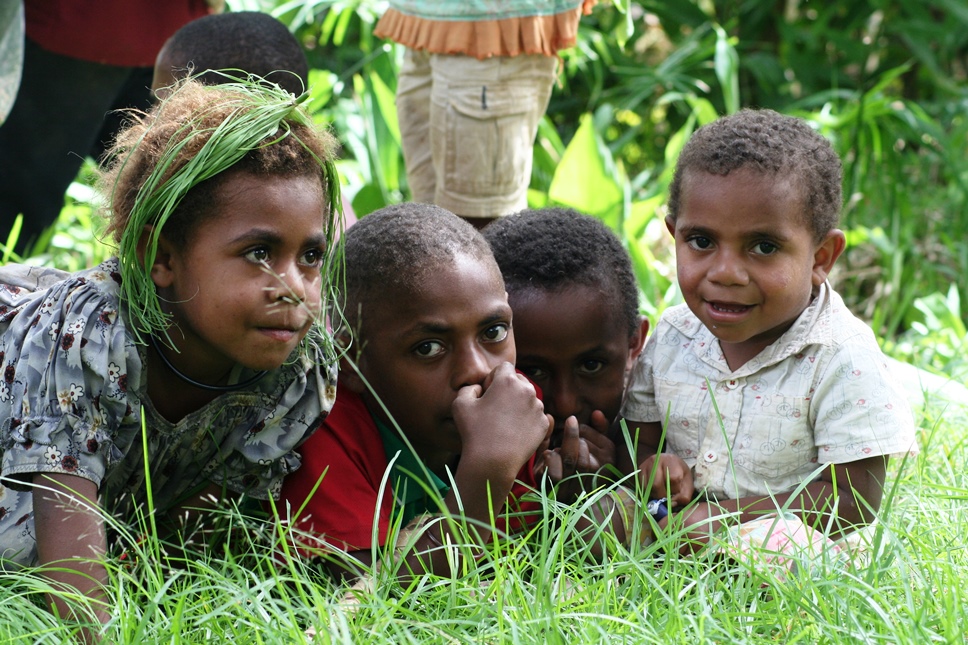
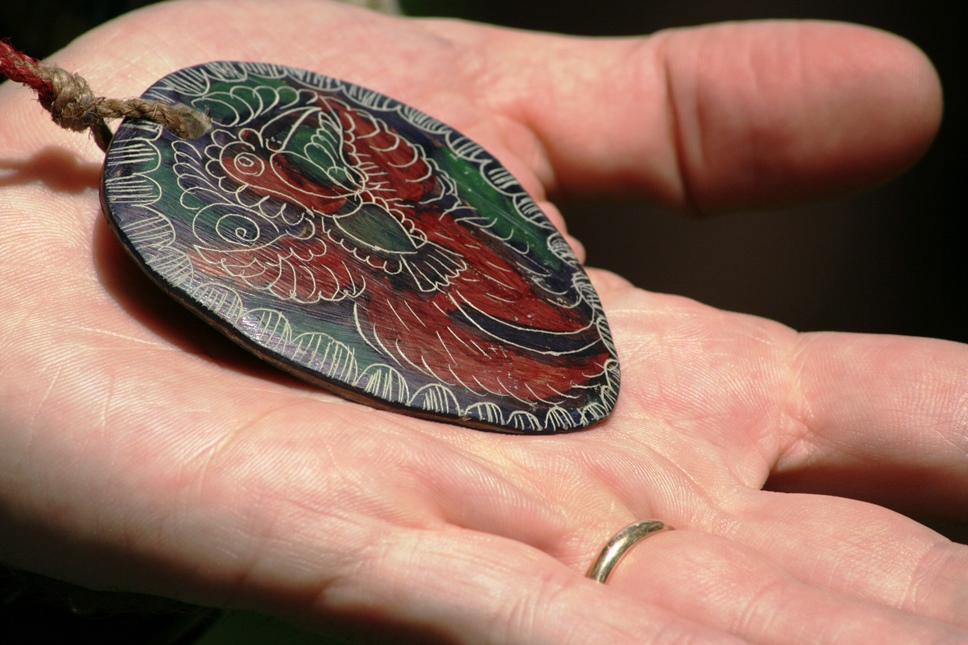
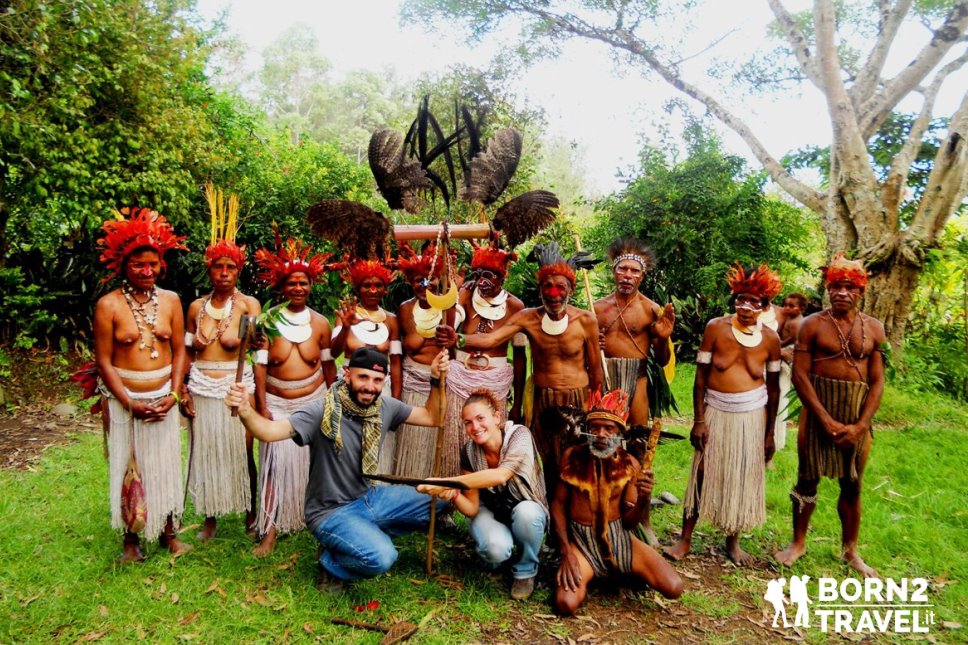
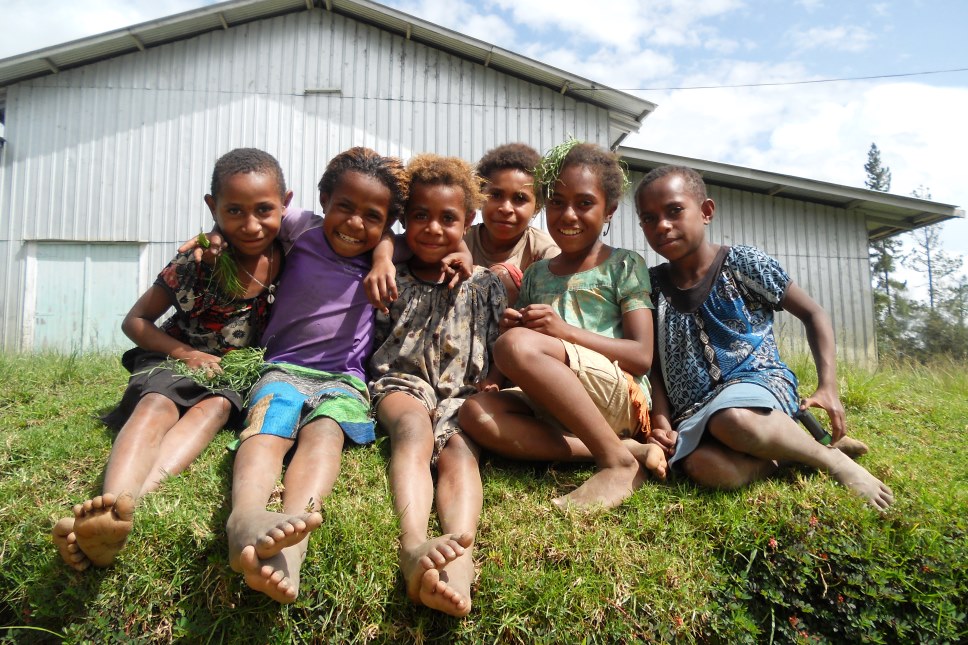
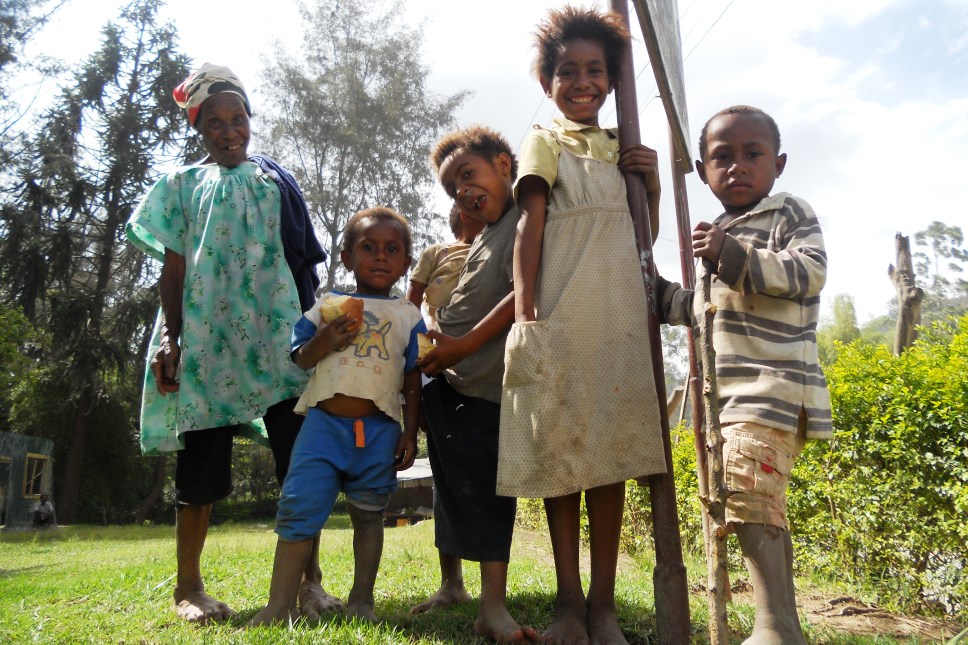
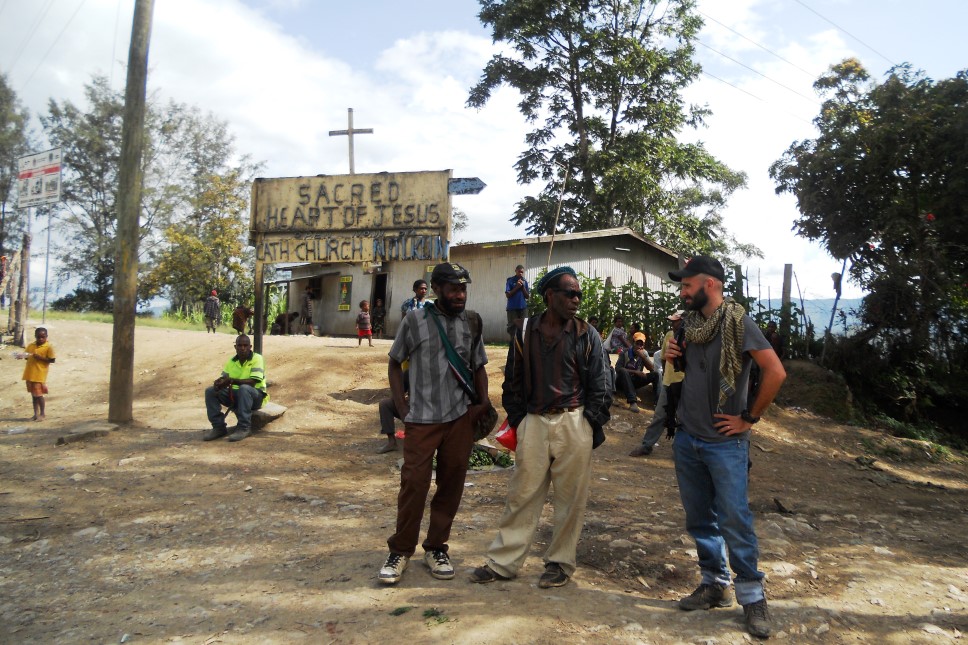
The journey from Kundiawa to Goroka takes about two and a half hours and, despite the PMV, it is really nice to climb up those slopes and then descend towards the valley.
While we admire this dense and dark vegetation, the unexpected happens!
At the edge of the road we see a stationary truck full of people like so many ants on the carcass of a large dead insect.
A man throws a large bamboo cane hard on the ground right in front of us.
All the frightened passengers close the windows and I admit to worry when I see the terrified look of the driver's helper sitting next to me.
Immediately our van is surrounded by about twenty men armed with machetes and sticks shouting and beating on the windows of the PMV making the vehicle jump.
The driver's aide observes everything petrified with a stupid expression.
Stefy sinks into the hood of her black sweatshirt so as not to give so much in the eye, our backpacks are instinctively hidden beneath the filthy seats; these dirty and angry men continue to scream who knows what and from a hole in the window some passengers hand them money.
I suddenly understand one screaming: "pass through" and the driver, still blocked, accelerated to the maximum while a truck traveling in the opposite direction was stopped and attacked.
No one comments, nobody talks, someone timidly opens the window and we continue on our way.
The "Gehetoka Lodge" which hosts us in Goroka is very modest but at least it's clean!
In twenty minutes of bumpy road we reach a clearing where Alì awaits us who, despite his long beard and Islamic name, is actually not Muslim but proudly claims to be "Christian evangelist".
Here religion depends only on which church, mosque or temple is closest to your hut!
Losco figuro that leads us along a muddy slope between huts made of intertwined branches and wonderful plants. We arrive at the gates of Giremiaka village, guests of the Asaro tribe and the legendary "mud men".
The women cook "mumu", steamed vegetables underground and wrapped in large banana leaves.
The mudmen suddenly appear behind some huts, they move very slowly, scrutinizing everything around them. They wear large and heavy terracotta masks that are used to scare off enemies. Some have bow and arrows, other huge sticks. They show us how they light the fire with bamboo twigs and wooden twigs.
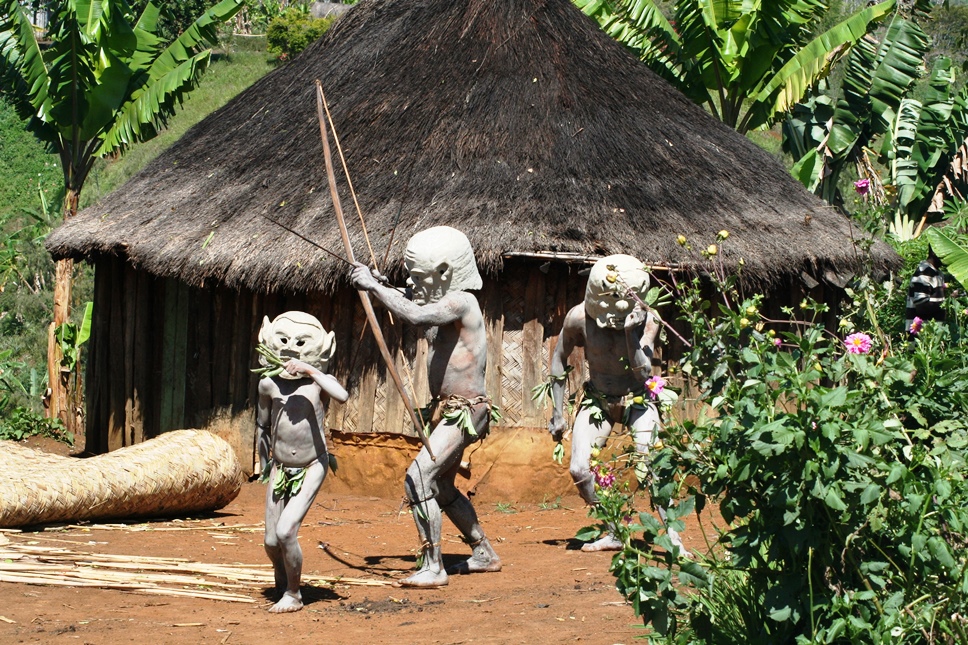
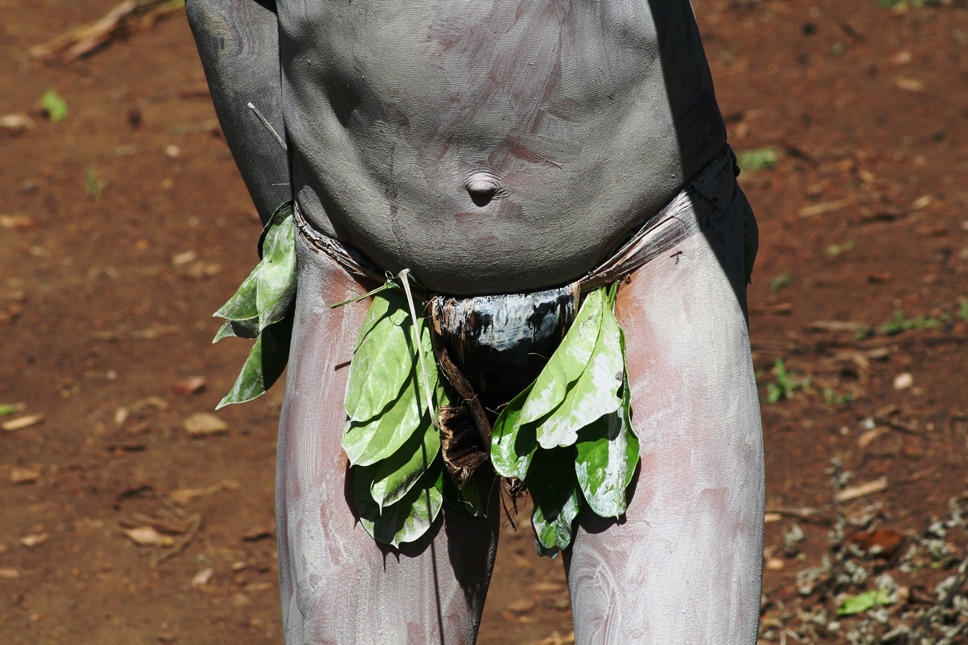
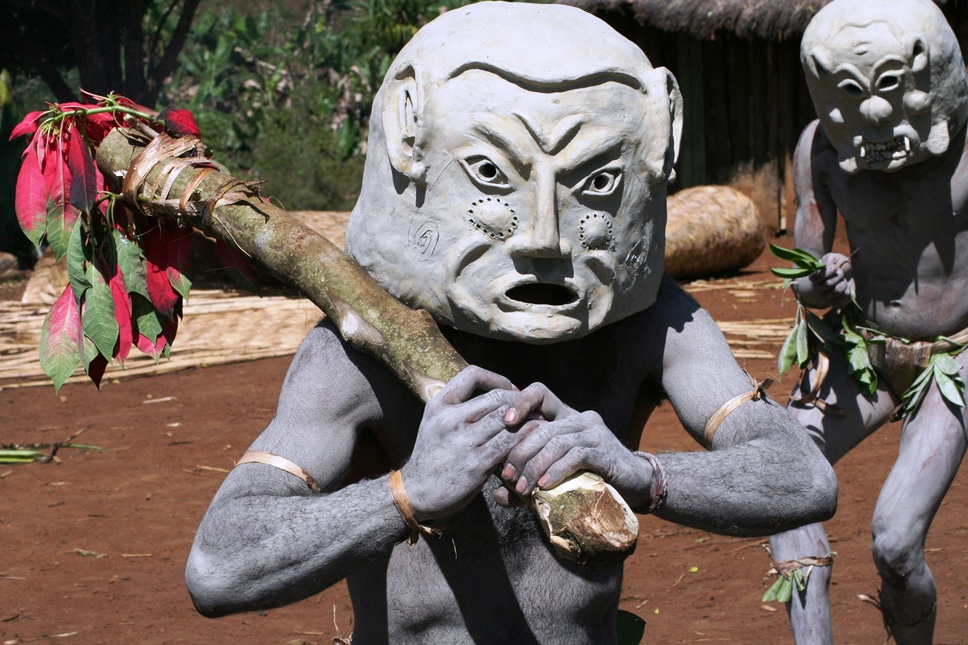
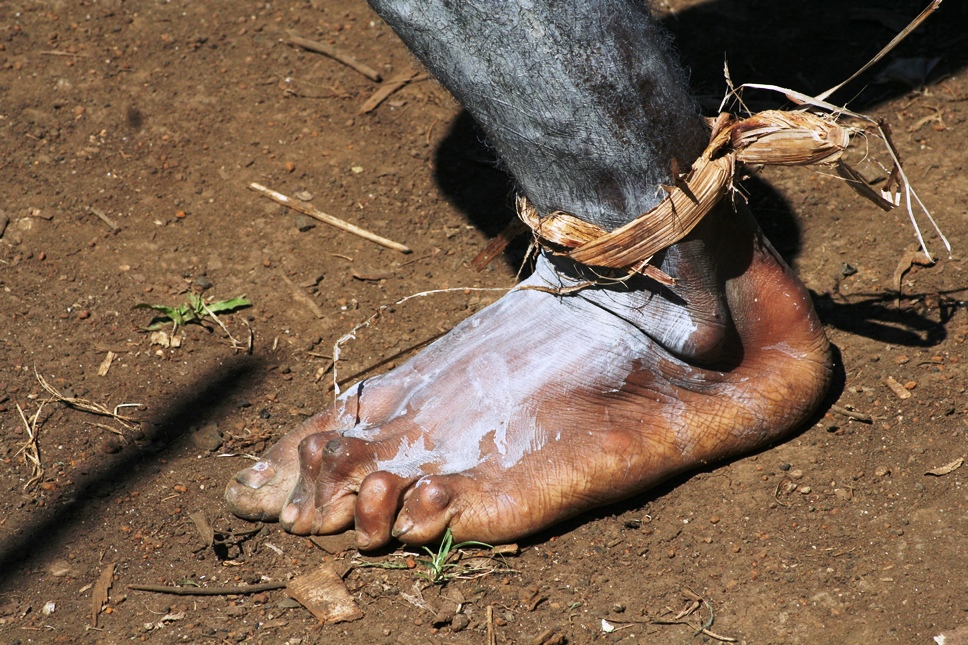
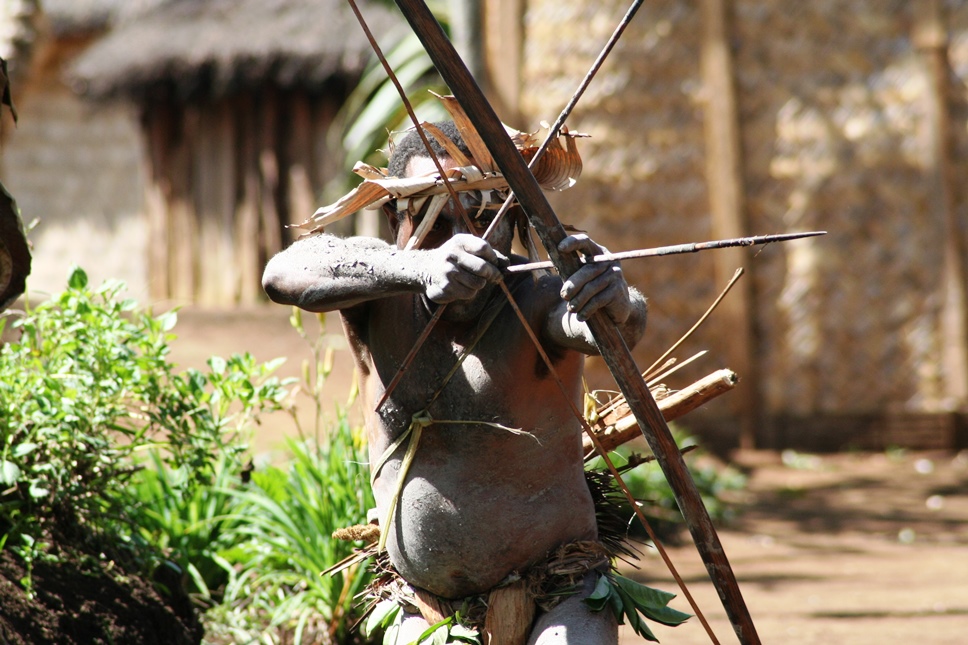
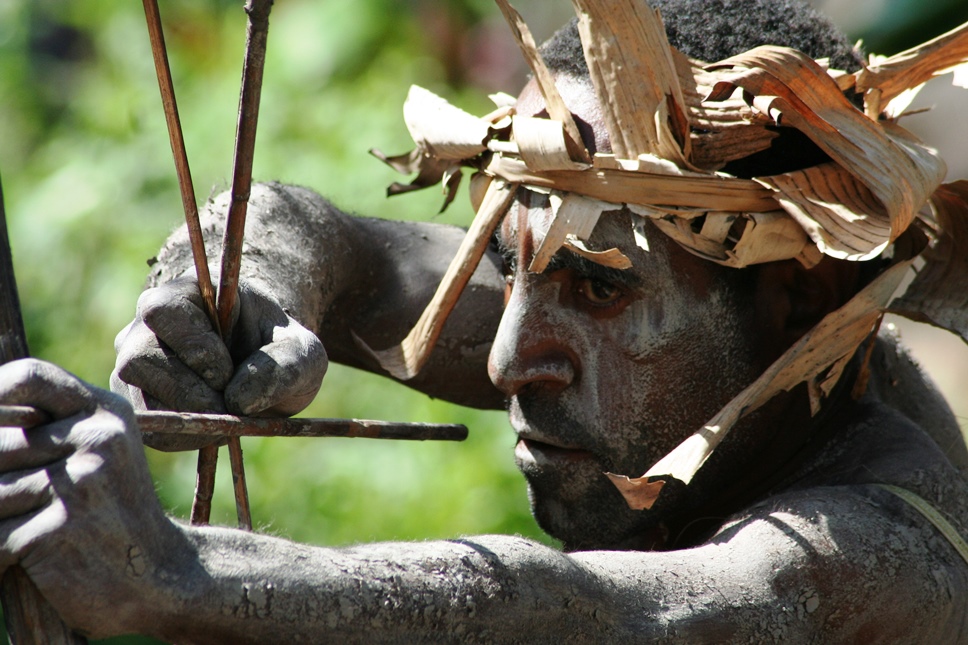
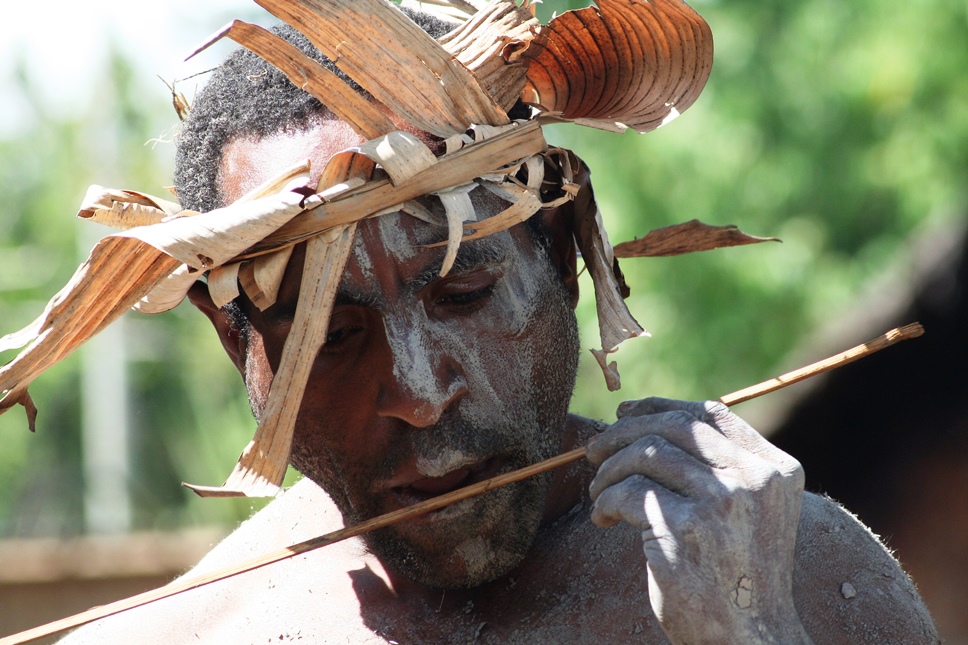
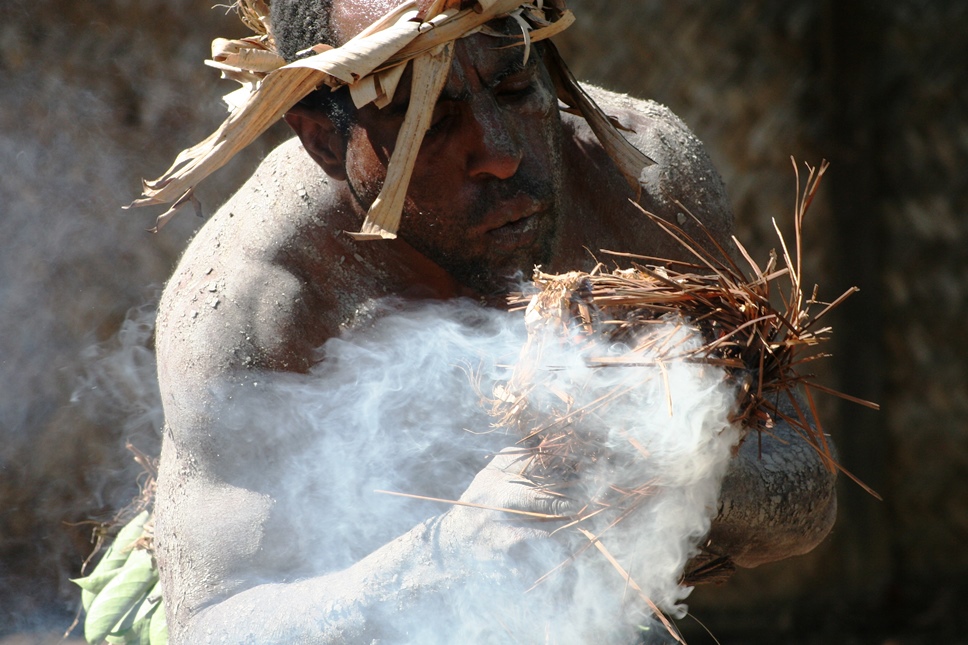
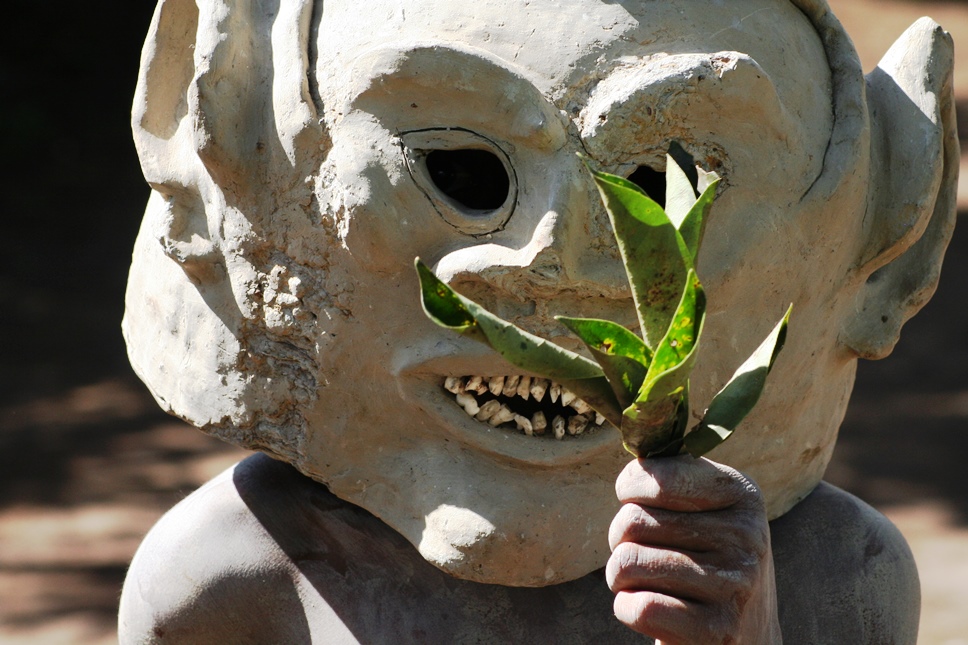
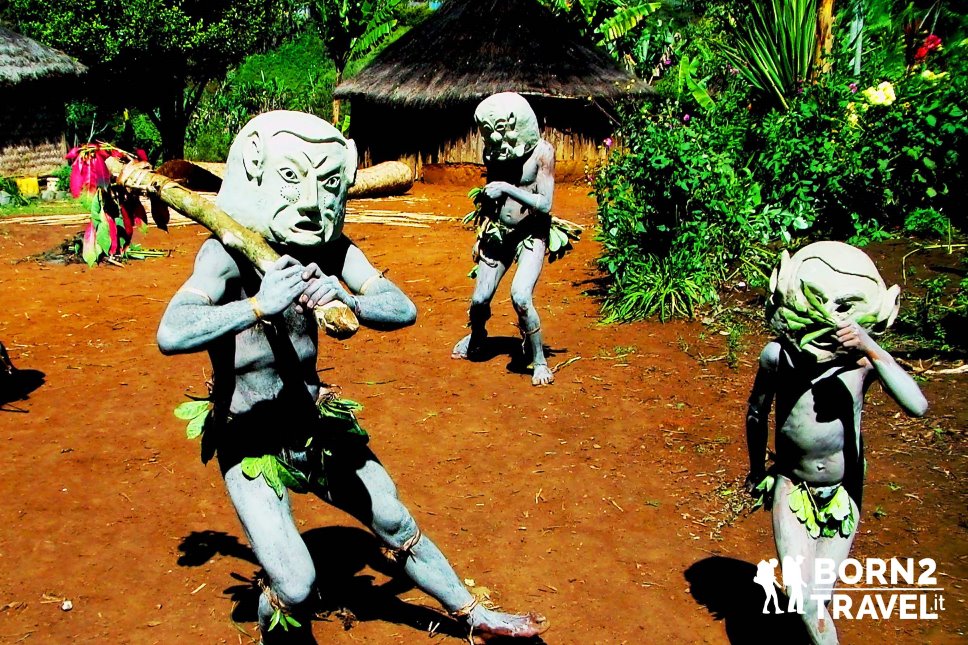
How many hands we shake ... sometimes, when I walk the streets I see distant, almost hard looks ... then in two seconds an irrepressible smile explodes that makes you win every little distance! The language of love and kindness is of the heart and that's it.
Peter leads us up the mountain and from the top we enjoy a wonderful view! Everything is lush and shiny! There is such a great variety of flowers to make the most beautiful botanical garden envy!
We arrive at a cave and before entering it, Peter collects some leaves that we will use as a "key" after obtaining permission from the mountain spirits!
We enter, one at a time, into a micro slot while Mark gets stuck because of the backpack just when a bat slams on his head!
We are in Gurupoka, guests of the Himakupo tribe. These men have the body painted with white stripes, they are masked and emit guttural sounds by moving the penis case while they dance the evocative "moko moko dance"
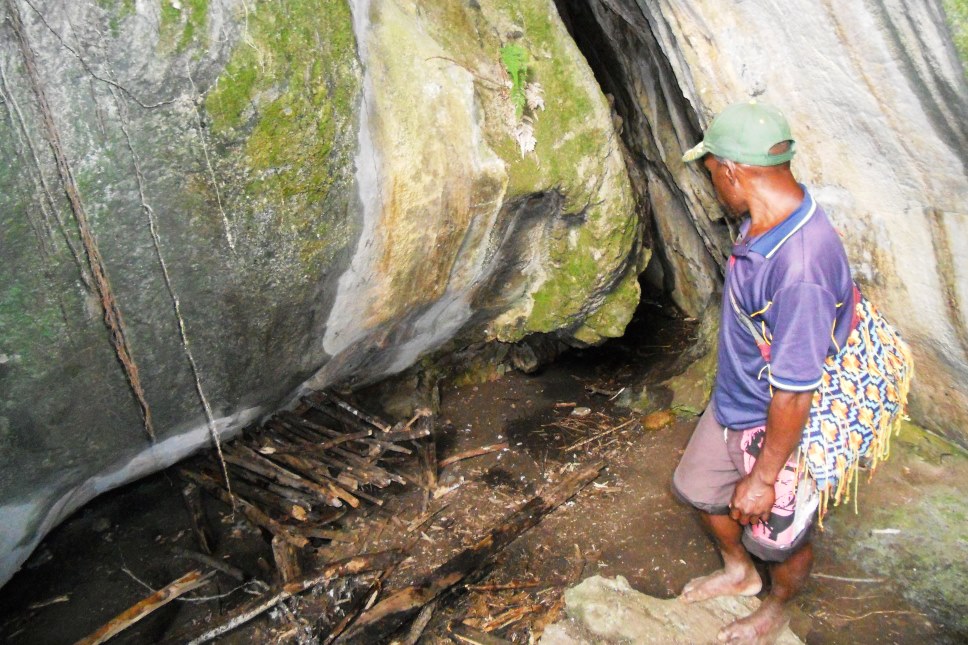
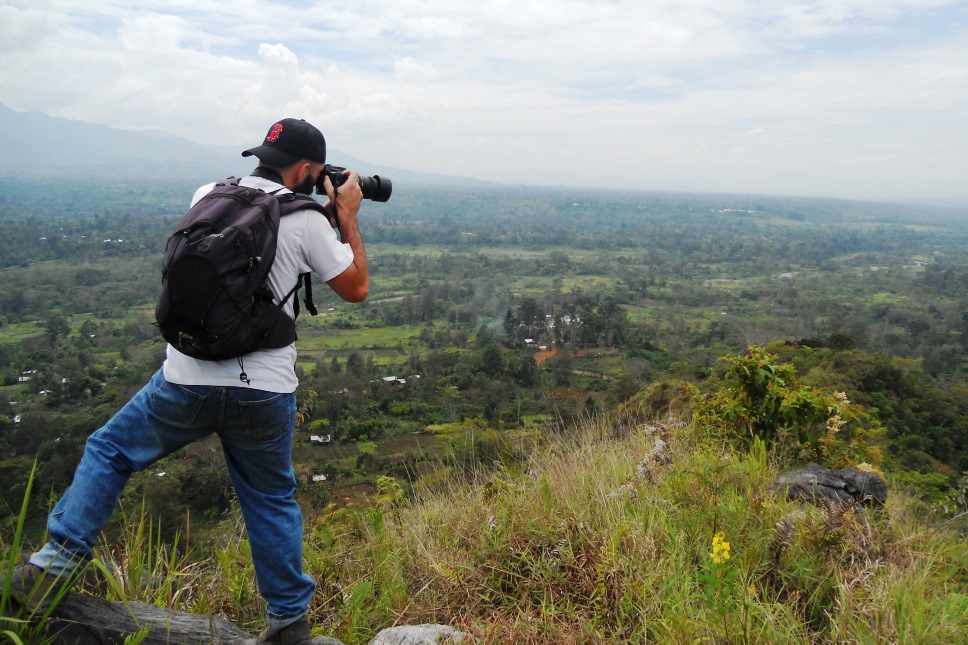
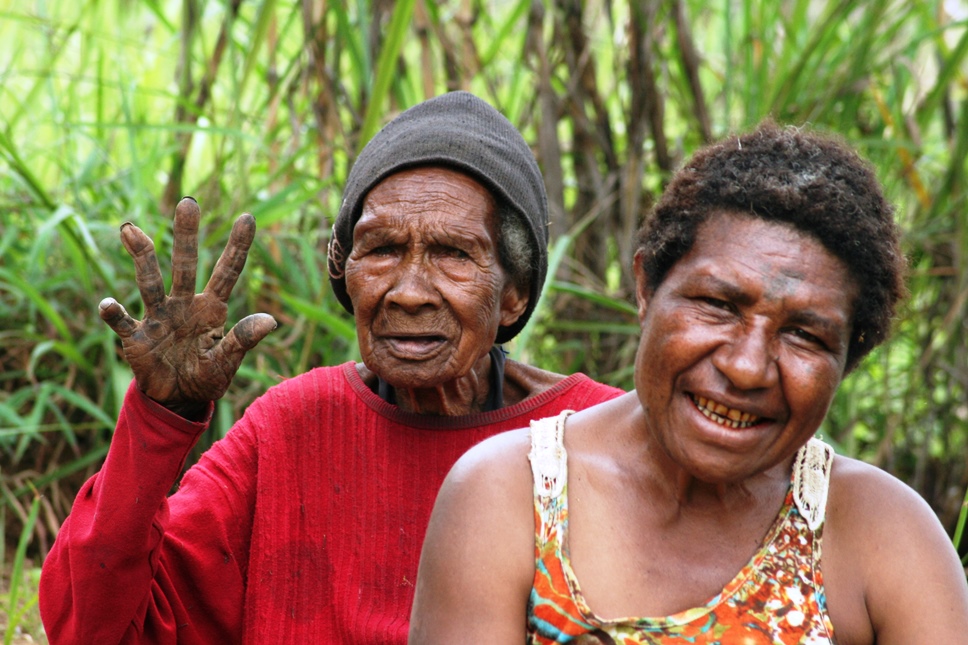
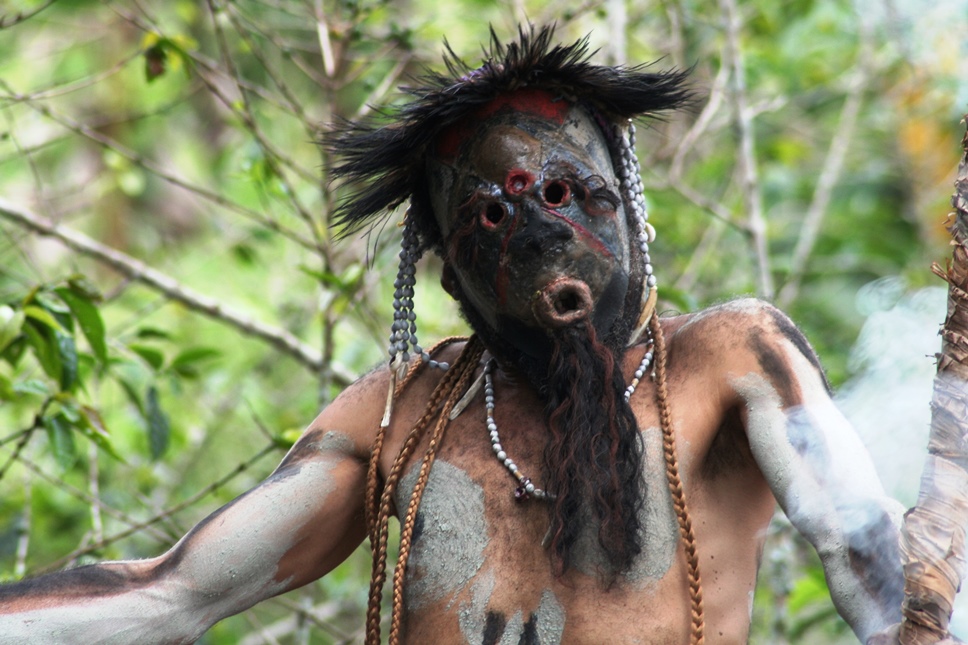
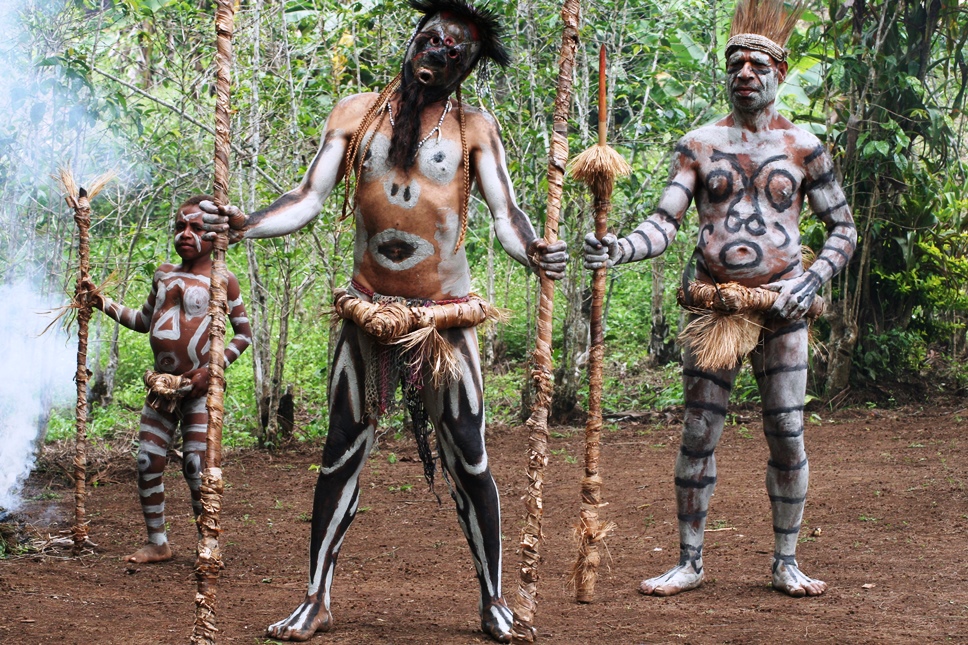
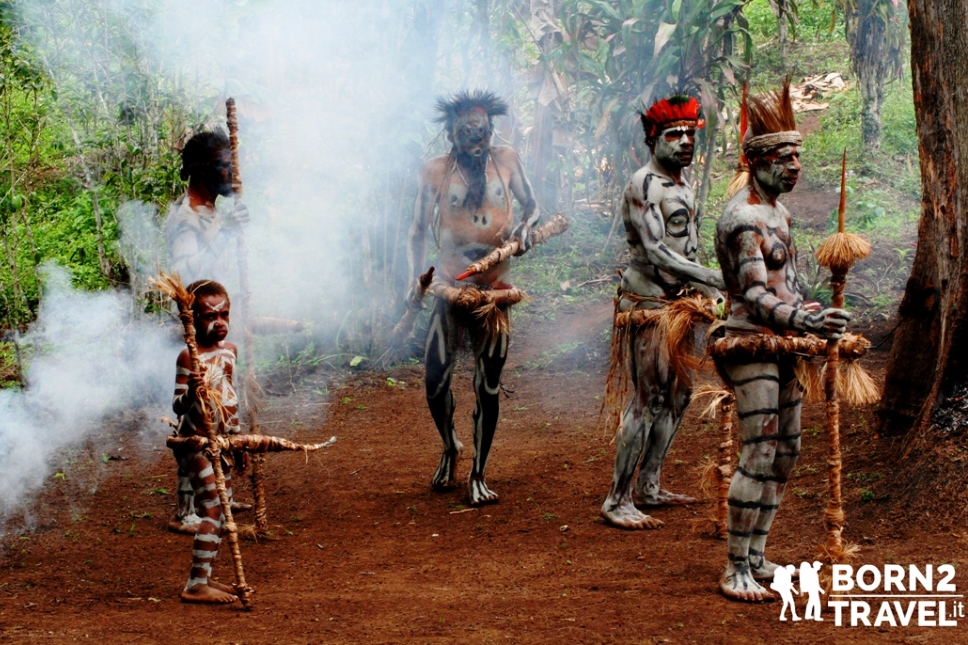
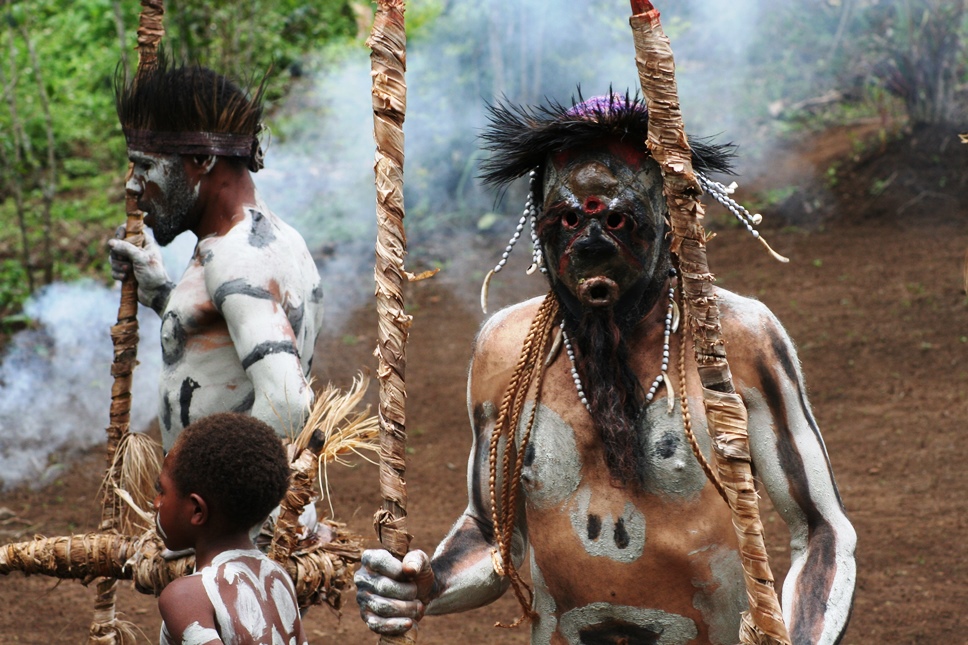
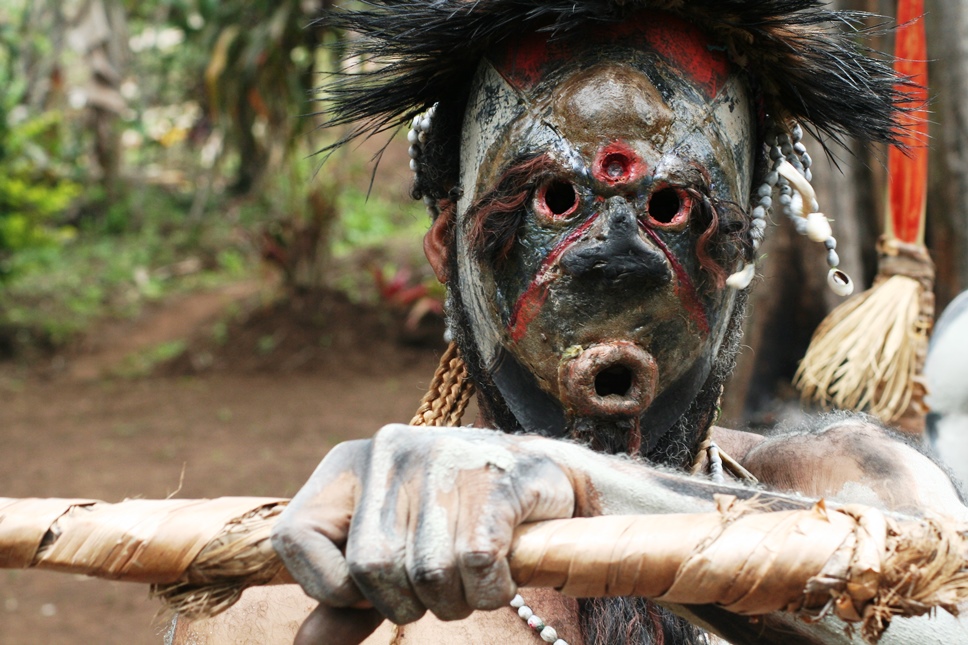
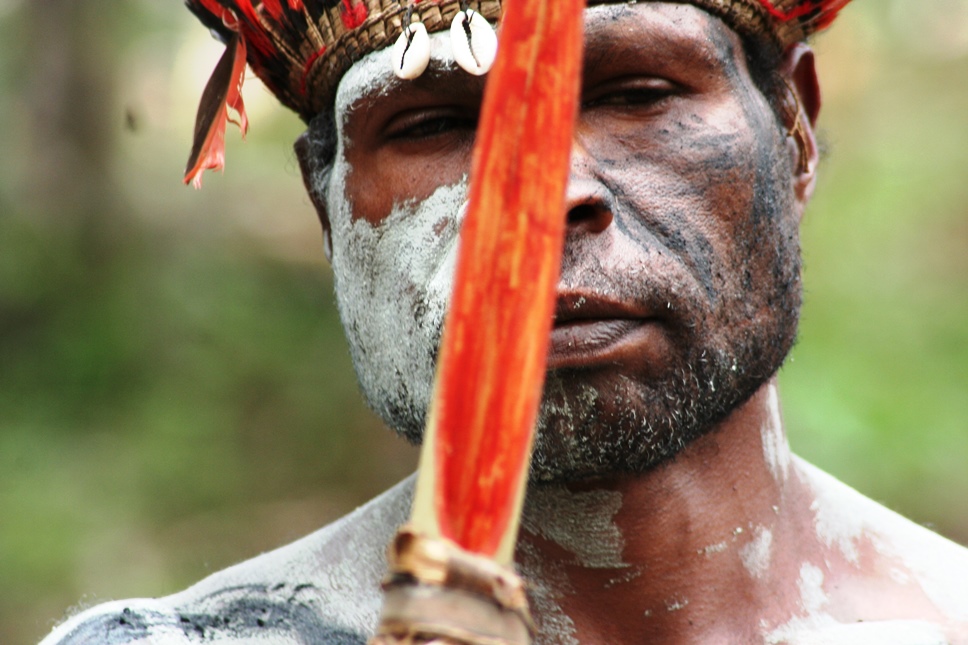
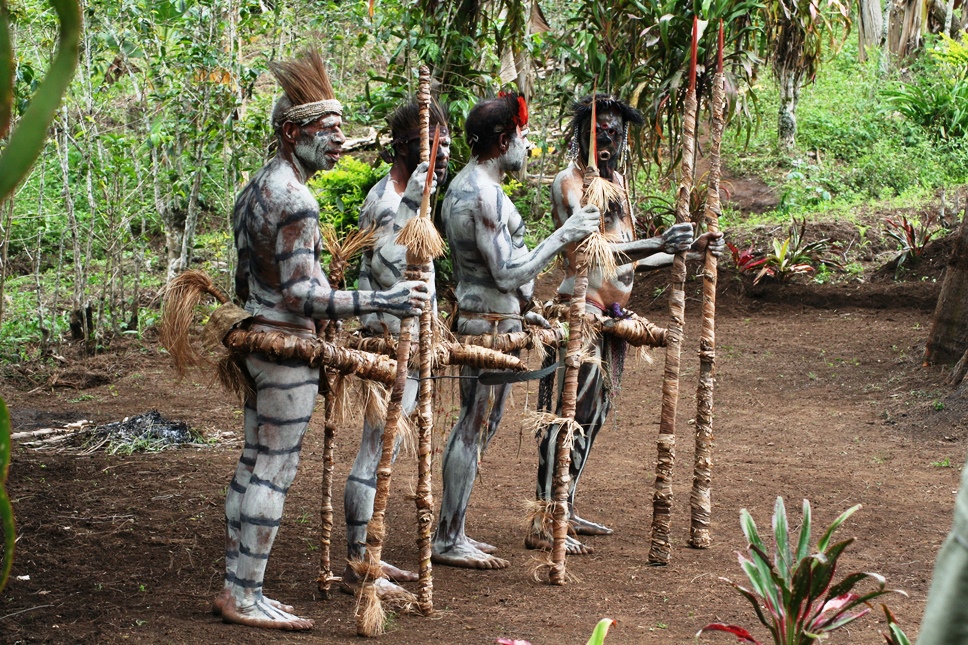
We know the village leader Susan, a beautiful woman, fair and authoritative; tells us that all the earth we see around us is his, he points to an avocado tree and he has a whole bunch of bananas collected for us with an irresistible taste.
She tells us that her husband has been ill for about two weeks, he fell ill because the envy of family members has turned into a curse given that they have a car and a "permanent" house (little more than a hut).
We see him suffering in the distance with a huge swelling on the right side of his neck.
Susan then decides to take her husband to a group of "Warriors of Prayer" and thus received the "Answer": everything was caused by the envy of relatives.
We immediately ask her if she had had a doctor visit him but her answer leaves us astonished: "Many people waste time taking them to the hospital but I don't! I'm not stupid! "
We do not know what to answer before so much conviction, we can only say what we would have done in his place ... but she reassures us: "Tomorrow everything will be resolved, our relatives will come to ask us apologies and he will immediately recover!"
We reach the village of Keiya on the outskirts of Goroka. The landscape is spectacular as always. This nature swallows you by taking your breath away.
We meet Steven and some members of his tribe.
We enter a "secret place" at the edge of the Asaro river, crossing suspension bridges and putting ourselves in paths with very high grass and walking in the mud right along the river bank as it began to rain.
Steven explains that until about 40 years ago the rite of initiation was practiced against adolescents who became "men".
They were locked up for a couple of months in a hut far from the village where the sage of the tribe taught them to become adults! Everything was sealed by a ceremony in which twigs were inserted into the nostrils of the initiate until they bled profusely then, with a small bow and arrow left a series of small cuts on the tongue.
Along the bank of the river, as it starts to rain and a friend of Caspar shelters us with a big banana leaf freshly cut with a machete and we sank into the silt of the ground, Steven and two old men, in traditional clothes, recall this old banished rite from religion decades ago.
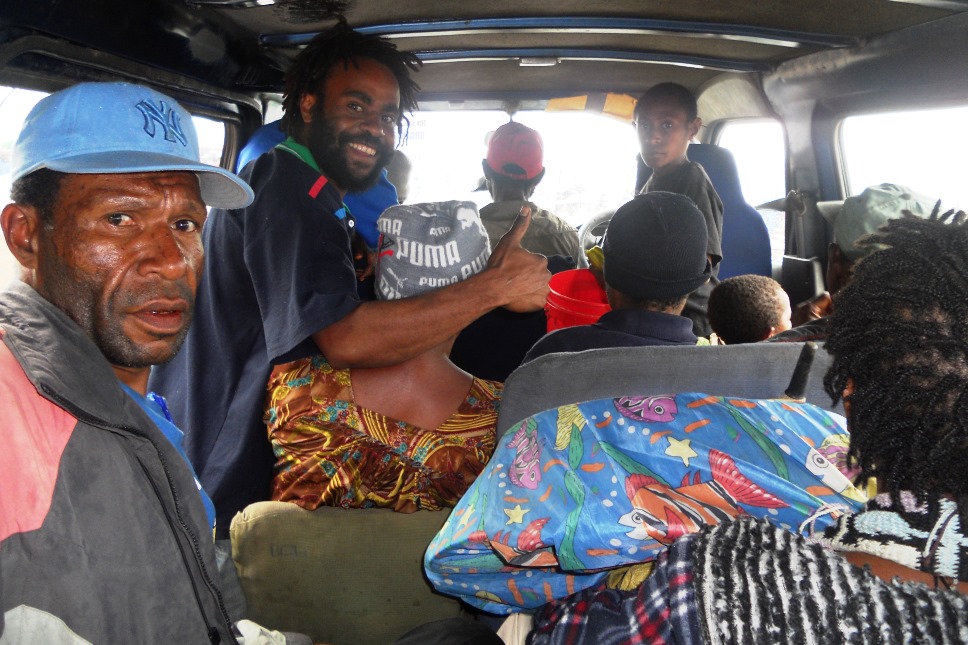
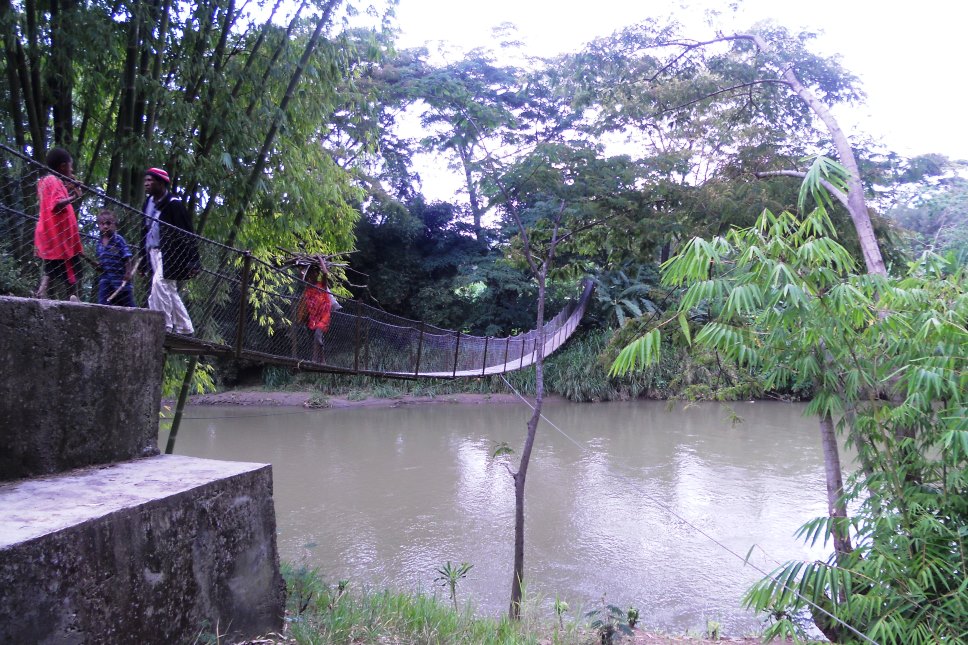
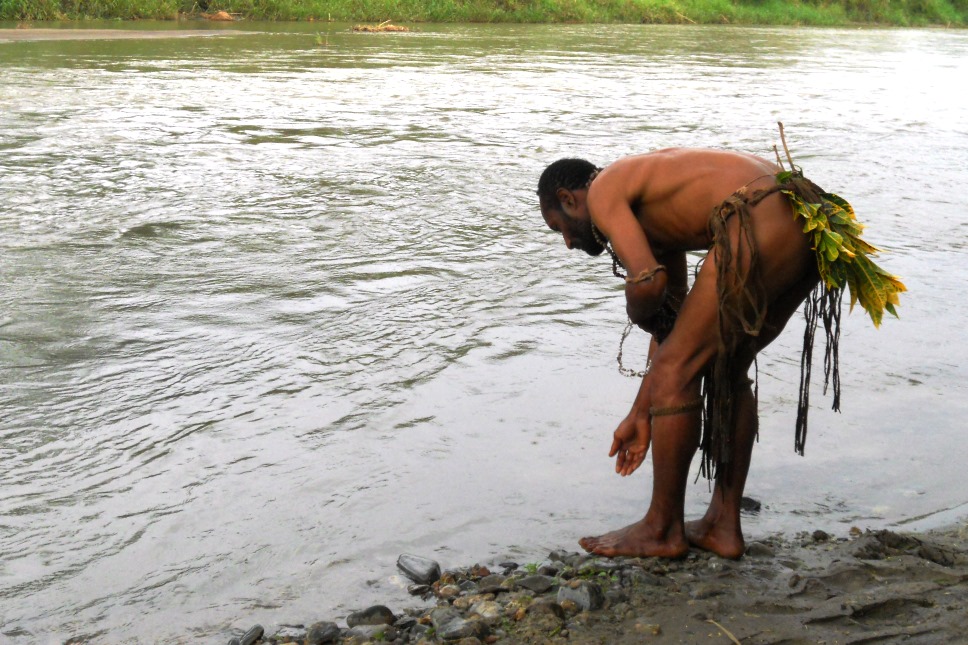
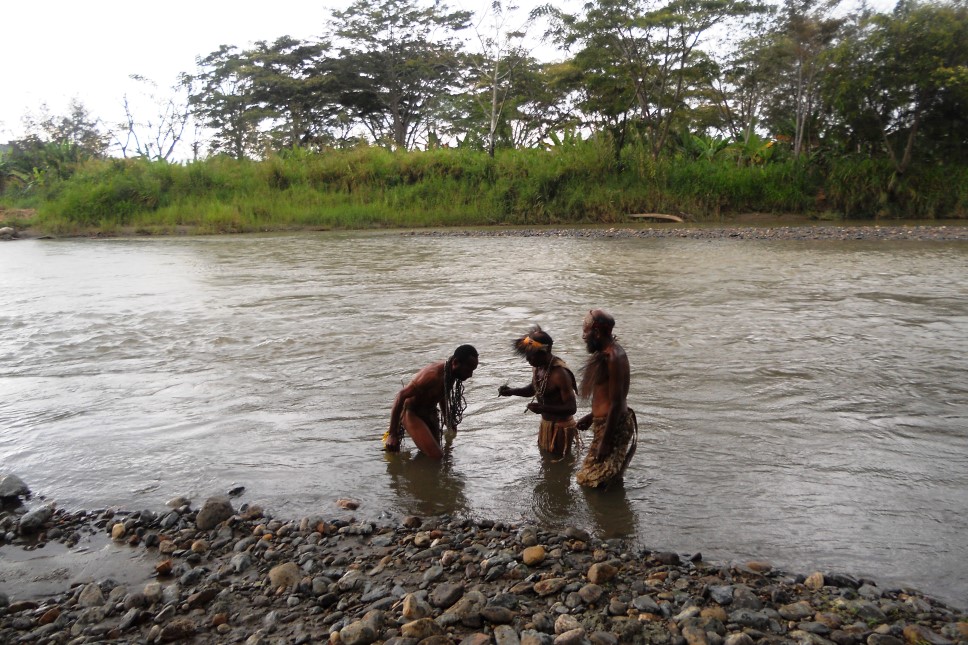
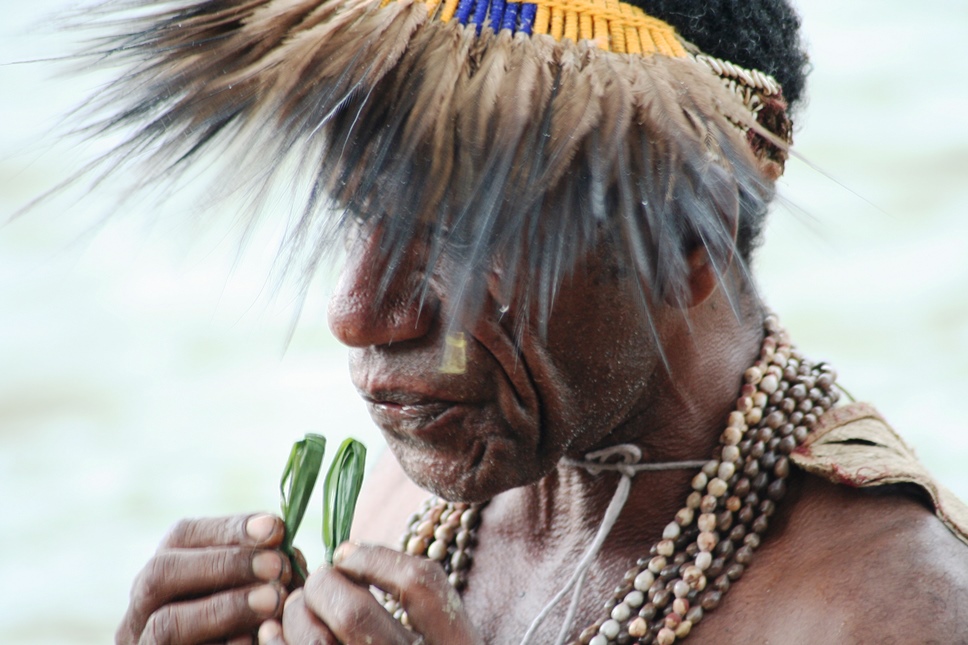
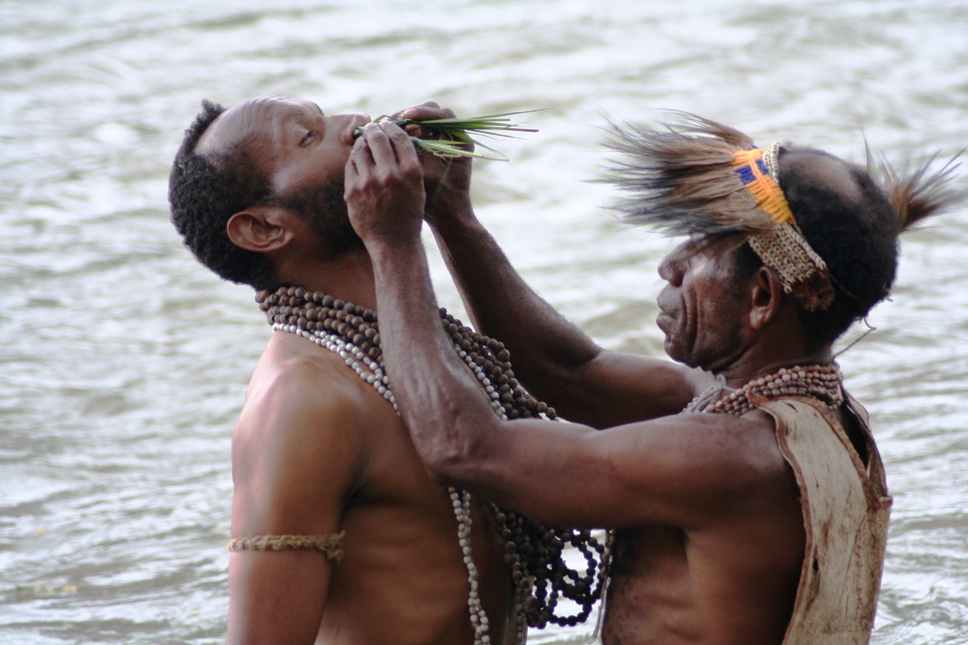
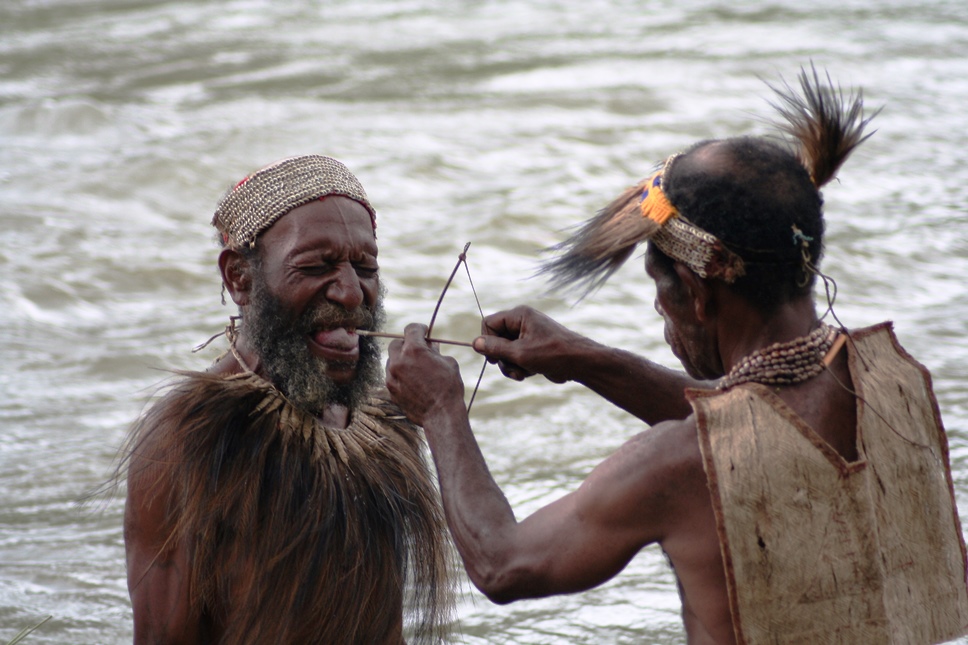
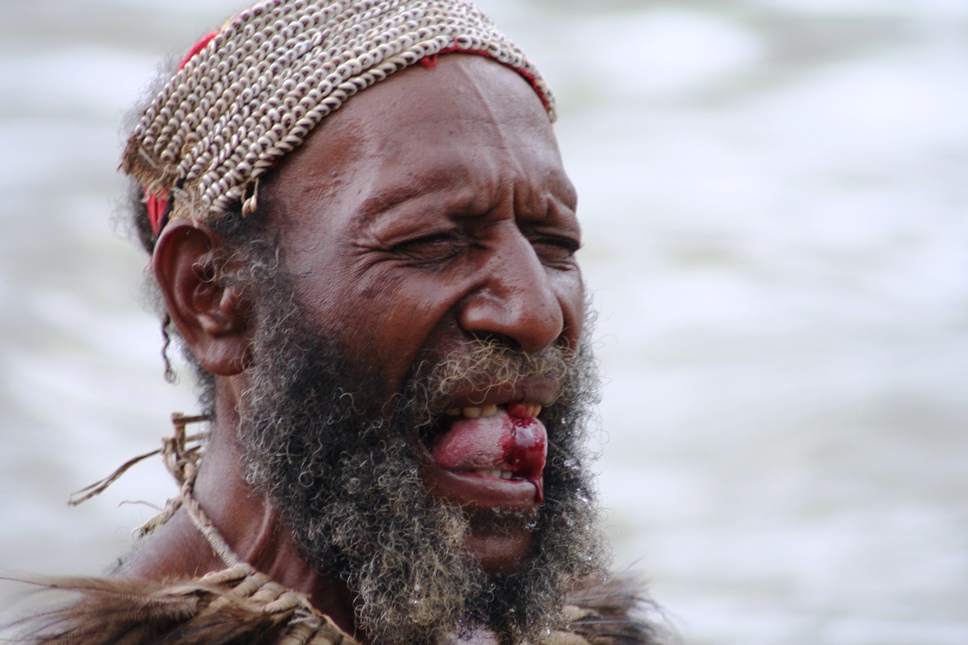
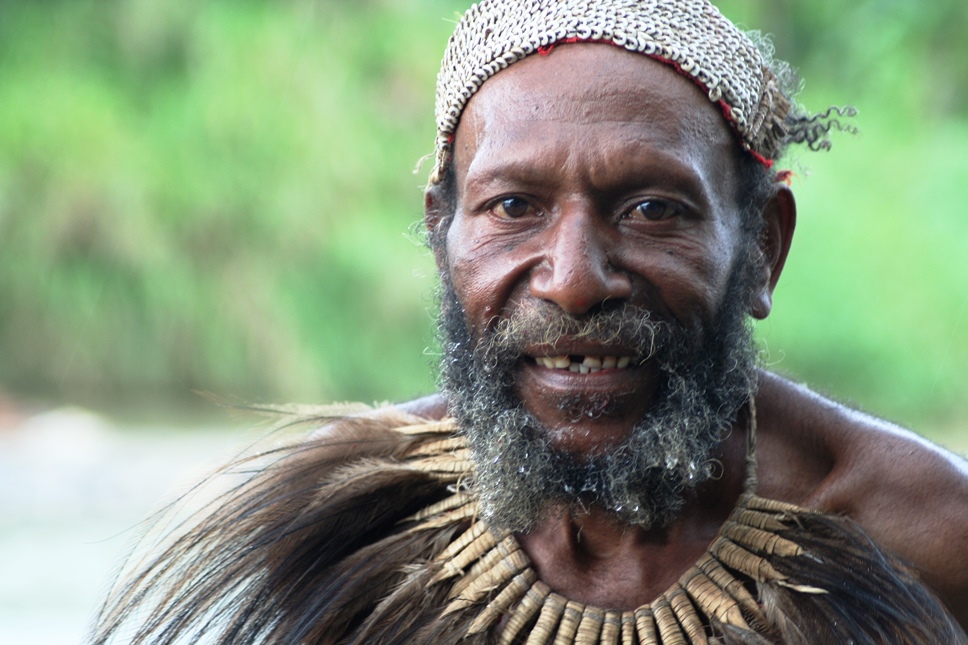
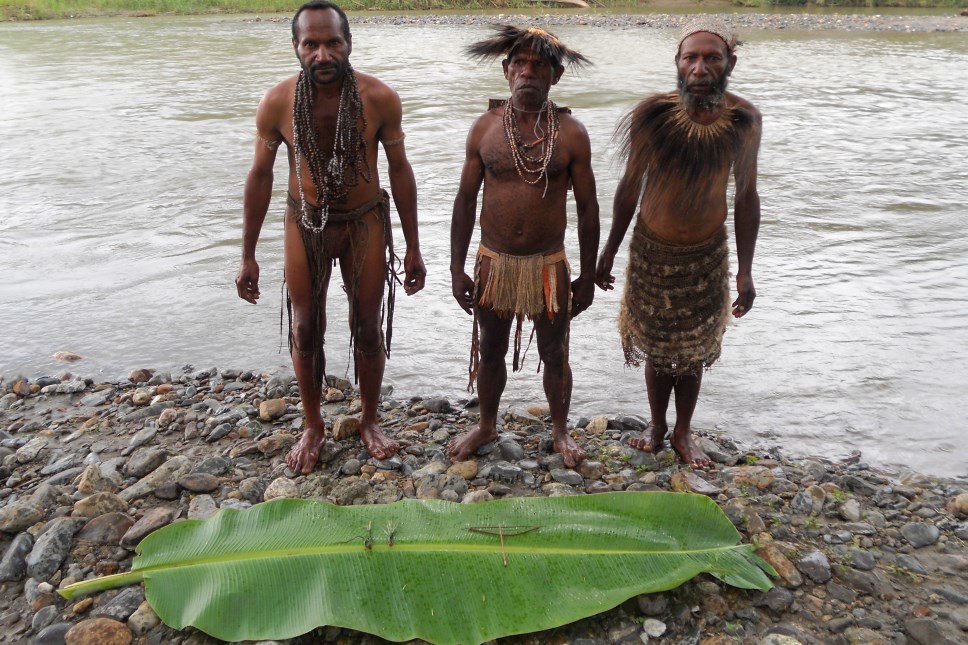
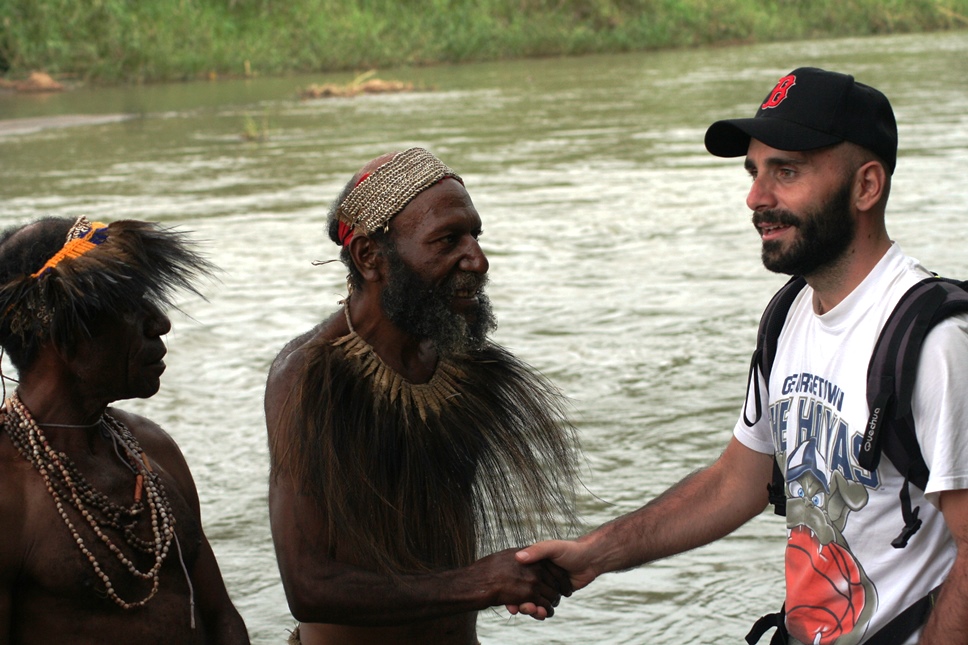
We leave the Highland of Papua New Guinea to the capital in flight with PNG Airlines ... what an adventure!
Check-in takes place in a dirty room with two men writing each passenger's name in pen without even checking documents or luggage ...
Passengers are a show! Someone barefoot, some with a torn t-shirt, all disoriented, some had a chicken or lettuce or a pineapple as hand luggage ... While we wait to board, a lady looks after her daughter's frizzy head, like a monkey, but even approaches fingers to the mouth every time he found something ...
We salute and thank our friend Caspar Dama who led us to the most remote corners of his land with the promise to meet again, because we want to return to this one that we consider the wildest land ever visited!
The flight takes an hour and a half and we are back in the chaos of Port Moresby ... but our attitude is different now, we are no longer as fearful as two weeks ago ... now we come from Highland Papuan and, like Keiya's teenagers who they become men in the Asaro river, now we face the dangerous capital without fear!
Error: No feed found.
Please go to the Instagram Feed settings page to create a feed.
73 Responses
Comments navigation
Questi se non ricordo male,non più di 50 anni fa,sono stati gli ultimi indigeni al mondo a smettere con la “l’allegra” tradizione del…cannibalismo
Non ricordi male!!! 🙂
Sarebbe bello…ma non farei tanta sponsorizzazione….non hanno bisogno di turismo di massa che li distruggerebbe
Sono d’accordo con te ma non credo che la mia sponsorizzazione, se cosi’ si puo’ definire, causerà un turismo di massa 🙂
Siete bravi, le foto sono molto pulite e raccontano molto anche chi non avendo vissuto quei momenti, desidera conoscere la realtà delle persone che non hanno seguito i grandi cambiamenti culturali.
Grazie mille! Cerchiamo di trasmettere semplicemente cio’ che viviamo viaggiando
oltre che essere scatti tecnicamente perfetti ,a me sconvolge l’idea delle circostanze nelle quali ti trovi ………. sappi che te le invidio tutte …….. Buon tutto !!!!
Grazie mille caro Corrado, sono scatti amatoriali di persone molto appassionate
La Papua deve essere eccezzionale, tra le tribù etniche della papua e quelle della valle dell’omo non so proprio cosa scegliere
Purtroppo non siamo ancora stati nell’Omo River, ciò che ti posso assicurare è che le tribù papuane sono davvero un’infinità e ciascuna con le sue tradizioni antichissime
avendo girato il mondo per conto mio e con il cuore tramite documentari, posso dire che le tuo foto vanno oltre e sono straordinarie. Per chi ama il viaggio e la scoperta come me, questo è fantastico
Grazie mille davvero… non c’è cosa più gratificante di condividere questa grande passione con persone che provano lo stesso sentimento
Seguirvi è come leggere un libro con immagini incredibili…grazie!
Grazie di cuore!! Continueremo a postare le nostre avventure allora!
Stupendo questo viaggio questo racconto queste foto
Grazie mille cara Rosa, è stata davvero una grande avventura! Continua a seguirci, presto posteremo altre esperienze vissute in giro per il mondo!
È tutto fantastico da non sembrare vero andare in mezzo a queste tribù con gioia di condividere la loro storia..
Tanta invidia e grazie x farci viaggiare con i vostri occhi…
Grazie cara Angioletta, è stata una grande avventura davvero!!!!
Bel viaggio Caspar Dama come lo hai contattato?I posti per dormire quanto costano?Le danze che vi hanno fatto sono state costose?Grazie.Mi sto informando perché lo voglio fare.
Ciao Daniele, Caspar lo abbiamo contattato via email dopo mille peripezie. Gli alloggi costano moltissimo e sono decadenti, le danze a cui abbiamo assistito non ci sono costate molto. Contatta Caspar direttamente
Comments navigation